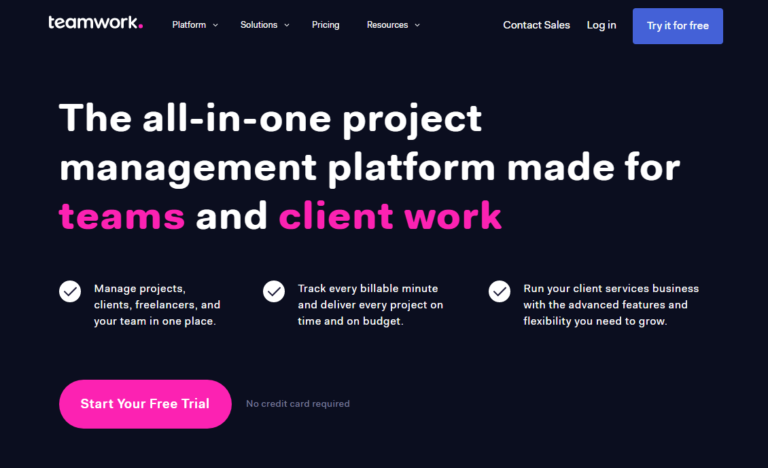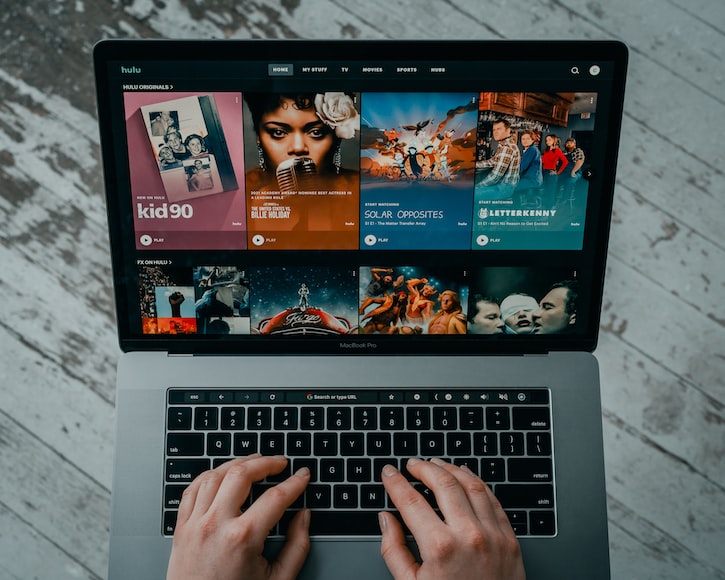Last updated May. 25, 2023 by Favour Chinaza
Interviews are important when filling open jobs in a company or applying for college grants. Applicants who made it through the first step of the hiring process are asked to come in for an interview.
This helps the company choose the most qualified applicants. It’s good to know how to answer basic questions, but it’s even better to know how to answer a wide range of questions you might be asked in an interview.
You won’t want to hurt your chances of getting the job by not being ready for your interviews at this point. You can use Career Builder to make your resume.
An interview is like a serious conversation between two people. One person (interviewer) asks questions, and the other person (interviewee) answers them. It is mostly used to find out more about the person being interviewed.
Before you can answer a question, you need to know why it was asked.
Not only should you read these questions, but you should also try to practice answering them. You shouldn’t be giving your first answer at the interviewer’s table.
Secondly, don’t just try to remember them in your head when you practice.
Read them out loud and say them. You can ask your friends, family, or coworkers to play interviewers while practicing. This is a practice interview. Just make sure you are ready for the interview before you go.
Remember to answer every interview question, whether it is a question about your actions or not. The easiest way to do this is to give an example from your own life and past.
What if you could anticipate the questions a hiring manager would ask you during your next job interview?
Unfortunately, we can’t read minds, but we can give you the next best thing: a list of 100 of the most typical interview questions and suggestions for how to respond to each one.
Even though we don’t advise having a ready-made answer for every interview question (please don’t), we recommend becoming familiar with the types of questions that might be asked.
The above also includes what hiring managers are looking for in your answers and what it takes to prove that you’re the right candidate for the position.
Consider this list to be your study guide for interview questions and answers. (And don’t forget to check out our bonus list at the end with links to resources on various types of interview questions.
Examples are such as those regarding emotional intelligence or diversity and inclusion, as well as interview questions by role, such as those for accountants, project managers, and teachers.)
Why Prepare For Job Interviews?
When applying for college funding or trying to fill open positions with a corporation, interviews are crucial. Candidates who completed the initial round of the employment process are invited for an interview.
This aids the employer in selecting the most qualified candidates. In addition, knowing how to respond to various questions you can be asked in an interview is preferable to simply learning the basics.
By not being prepared for your interviews now, you won’t want to harm your chances of landing the job. Instead, you can create a résumé using Career Builder.
A job interview resembles a thoughtful discussion between two people. Both the interviewer and the interviewee take turns asking and responding to questions. It mostly serves the purpose of learning more about the interviewee.
Understanding the purpose of a question is necessary before responding to it.
You should try to practice answering these questions in addition to reading the questions. Giving your initial response at the interviewer’s desk is inappropriate.
Second, don’t only try to retain them in your thoughts while you practice.
Read them aloud and pronounce them. While rehearsing, you can invite your friends, family, or coworkers to pretend to be interviewers. A practice interview like this one. Just make sure you are prepared before the interview.
Whether or not the interviewer asks you a question concerning your activities, always be prepared to respond. Giving an example from your own life or past is the simplest method.
What is The S-T-A-R Method of Answering Interview Questions
You can also use the S-T-A-R method: talk about a situation or task (S-T), what you did (A), and what happened (R). That makes your answer to the interview stand out and makes it a star!
When you study the top 100 interview questions and answers, you can get rid of your fear and feel more confident about your skills during the interview.
How To Prepare for Your Interview Questions
Preparing for a job interview is critical to increasing your chances of success. Here are some crucial steps for getting ready effectively:
- Investigate the company to learn more about its goals, principles, products, services, culture, and most recent news.
Using this data, you may personalize your reply and demonstrate your interest in the business to them.
- Recognize the job requirements: Examine the job description to ascertain the skills, credentials, and experiences the employer seeks.
This will enable you to compare the position’s requirements with your qualifications and achievements.
- Expect frequent interview inquiries: Be prepared to respond to often requested interview questions like, “Tell me about yourself,” and “Why are you interested in this role?” in addition to “What are your strengths and weaknesses?”
Practice answering these questions succinctly and clearly.
- Highlight accomplishments pertinent to the position using specific examples from your prior experiences to demonstrate your skills and accomplishments. Create brief, captivating stories that showcase your abilities.
- Prepare questions to ask: It takes research to come up with informative questions to ask the interviewer about the role, the corporate culture, the dynamics of the team, or any other relevant topics. This demonstrates your enthusiasm for and involvement in the opportunity.
- Ask a friend or member of your family to conduct a fake interview as you practice. Practice answering questions with clarity and conciseness while maintaining eye contact and acting professionally.
- Get the appropriate attire: Pick business-casual attire that complies with company culture and industry norms. Respect and professionalism are communicated by dressing appropriately.
- Gather necessary documents: Make a packet with copies of your resume, letters of recommendation, and other essential documents. Bring extra copies if there are several interviewers there.
- Plan logistics: Establish the date, time, and kind of interview (in-person, phone, or video). Make a route plan if the interview will take place in person, and if it is conducted virtually, make sure your technology is up and running.
- Take care of yourself: Prior to the interview, get a good night’s sleep, eat a balanced meal, and drink plenty of water. You can focus and perform at your best when you are well-fed and well-rested.
Keep in mind that being well-prepared will make you feel more confident and highlight your qualifications during a job interview.
By following the abovementioned methods, you will be prepared to impress the interviewer and increase your chances of landing the job.
Types of Job Interview Questions
Personal Traditional Interview Questions
Common interview questions center on your value and talents. These questions are typically very detailed.
It lets the interviewer learn more about you and how you will fit into the job’s overall responsibilities.
Almost always, the first questions asked during interviews are personal ones.
They stress your individuality, interpersonal skills, and behavior if you get the job. They are frequently realistic.
Credential Verification Questions
These interview questions are intended to objectively confirm the qualifications provided on your CV or resume by acting as fact-checkers. Take the question, “What is your GPA?” same,
“When did you begin working for your current company?” You must be prepared and competent when asked about the specifics of your school history and/or professional experience.
Experience Verification Questions
Experience verification questions have a similar objective to credential verification questions but differ in that they perform a subjective analysis of your prior experiences.
They ask you about your degree of experience to determine if you are qualified for the position they are presenting.
Common examples include the queries “What did you learn during that course?” and “What were your responsibilities in your last role?”
Opinion Questions
An interviewer may pose an opinion question that confounds the applicant.
Examples of popular questions in this area include “What is your greatest strength?” and “What would you do in situation X?”
Inferring a candidate’s potential responses to various situations is the aim of opinion questions. Even though you might want to please the interviewer by giving the “right” answer, there is never only one acceptable response to these kinds of questions.
Instead, the interviewer would learn more about your decision-making process from your response.
Behavioral Questions
These kinds of questions are a must in today’s job interviews. In addition, you might be asked questions concerning any area of your prior behavior at work or in the classroom.
They might also give you a specific scenario and ask you to respond.
Frequently, a question regarding conduct would start with the phrase, “Tell me about a time when you….” “How do you resolve conflict with coworkers?” is one example. And “Explain how you dealt with challenges at work.”
It’s crucial to objectively assess your past behavior in comparable scenarios to predict how you could act in similar situations.
These questions also show whether the applicant has a history of acting impolitely, such as picking arguments or making bad decisions at work.
Competency Questions
The most frequent interview questions are those that are competency-based.
These are meant to ascertain whether you possess the specific knowledge and expertise required for the position.
Give me an example of your leadership qualities, for example, or “Describe how you looked for a creative solution to a recent problem you were faced with,” are examples of common interview questions.
To prepare for competency questions, carefully read the job description and person specification to learn the competencies necessary for the position.
Choose specific illustrations that demonstrate how you applied these skills in real-world circumstances.
Consider using the STAR (Situation, Task, Actions, Result) method when responding to competency-related questions.
Brain Teaser Questions
Simple questions like “Why are manhole covers round?” or more difficult ones like “What are some complex algorithms?” can serve as brainteasers.
The questions “Why is a tennis ball fuzzy?” and “How would you weigh a commercial airplane without a scale?” are some more instances.
These questions test your creativity, critical thinking, reasoning skills, and your grasp of mathematics. Each of these inquiries has a unique response that provides insight into the subject applicant.
To prepare for brainteaser challenges, practice mental calculations, riddles, and ways to articulate your thoughts to react to these questions.
The interviewer will be interested in learning how you arrived at your answer.
Case Questions
Case questions frequently ask questions that involve problem-solving, such as “Estimate the size of the global online books retail market” and “How many gas stations are there in New York?”
These types of interview questions provide you the chance to demonstrate your problem-solving skills and demonstrate how you would analyze and react to hypothetical case studies.
A case question is successful if it sparks a conversation between the interviewer and the interviewee.
Hypothetical Interview Questions
Employers provide hypothetical questions during interviews to determine how you would behave at work.
These questions test your ability to understand and react to normal office situations.
What would you do, for instance, if you were to collaborate with a difficult coworker? Likewise, “What if I told you you were to stand in for a manager during a particular presentation?”
The hiring manager would gain insight into how you handle obstacles, any preconceived views you might have, the level of curiosity you exhibit when the topic is raised, and any follow-up questions you might ask from your response.
The advantages of hypothetical interview questions include the ability to explain your core values, the opportunity to discuss your teamwork skills, and the opportunity to recount an instance in which you made a conscious decision to overcome hardship.
Outside-the-Box Interview Questions
These kinds of interview questions might seem odd at first, but they are known to generate open communication.
Avoid canned comments to show that you can come up with your own ideas.
There isn’t a definite right or wrong answer because the main goal of nonsense questions is to test your capacity for original ideas and quick, spontaneous reactions.
Think about the scenario “Who would play the lead role in a movie about your life?” as an illustration. Where would you go if you could travel across time?
Good Read: 15 Job Interview Tips for College Students
This will help you ace your job interview and get your dream job. Here are 100 things you might be asked during a job interview:
1. Can you please introduce yourself/Tell me about yourself?
2. What are your capabilities/Strengths?
3. Do you have any flaws/What are your weakness
4. What made you leave your former job
5. Why did you pick this profession?
6. Tell us how you handle criticism?
7. In your years of working, what are your greatest achievements
8. Why should we consider you for the job/Why should we hire you?
9. Do you think you are overqualified for this position?
10. Do you need additional training?
11. What are your worst regrets, and how do you deal with setbacks?
12. What’s your relationship with your co-workers?
13. Do you mind working for someone younger and with less experience?
15. Will you put your interest ahead of the company’s own?
16. You may not qualify for the position because of your lack of experience.
17. Would you lie for the organization?
18. What does leadership mean to you, and what attributes do you look for in a leader?
19. What are your thoughts on this interview?
20. How did you hear about the position?
21. In 14 years, where do you see yourself in this position?
22. What would you say about your most recent job?
23. How do you perform when you’re not being watched?
24. What lengths will you go to in order to complete a task?
25. How did you handle disagreements with your colleagues at your former job?
26. How do you face challenges?
27. What would you say if your supervisor had an impractical idea?
28. What makes a working environment conducive?
29. What are your Personal Career goals?
30. What are your strategies for dealing with work-related stress?
31. Have you previously held a position of leadership?
32. Describe how you handled the most challenging task you’ve ever faced.
33. What have you learned from your former workplace and coworkers?
34. What kind of company would you like to work for if you had your choice?
35. Let assume you can be any animal, what animal would you choose?
37. Money or a job: which is more important?
38. What do you think your skills should be worth?
40. Will you relocate if necessary?
41. Do you have plans to continue your academics?
42. How frequently do you miss work?
43. What did your previous supervisor think of you?
44. Do you know about the vision and objective of this organization?
45. How often do you read books and what book are you reading at the moment?
46. Have any of your previous jobs resulted in you being dismissed?
47. Do you have any criminal records?
48. Do you know anyone in this organization and how would they feel about you?
49. When do you believe you’ll advance in your profession?
50. What do you believe we can do to increase our sales?
51. Can you meet multiple deadlines?
52. Can you work in other departments?
53. How is the Organizational Structure at your former job/How Relevant was your former role?
54. How would you feel should we not hire you?
55. Let us Know something negative you’ve heard about this Company.
56. Why is there a gap in your Resume?
57. If hired, what/where do you see yourself in your first month with us?
58. What actions do you take to solve problems?
59. Describe how and when you and your team came together to overcome a challenge?
60. What action will you take if your senior colleague is mismanaging the company’s resources?
61. Tell me about your salary history?
62. How do you respond when a tasking project you did is criticized?
65. Did you ever fire a worker? If yes, why?
66. Which areas did your former boss ask you to improve on?
67. What are you looking to achieve in your in this career?
68. How do you define success?
69. Your GPA seems low compared to that of other applicants.
70. How do you motivate other workers when you lack motivation?
71. What is the toughest decision you ever took?
72. Do you have any question(s) for me/us?
73. Sell me this pen
74. We want to know if you have got any medical conditions?
75. Do you intend to have a startup or business of your own?
76. Opinion Question: What do you think about abortion?
77. How well do you allow others to give their opinion on subject matters?
78. Rate your public speaking skills on a scale of 1 to 10.
79. Have you ever deal with a difficult client? How?
80. What triggers you and how do you stay calm?
81. Are you willing to work during the weekend and at night?
82. What is/are your biggest fear?
83. Describe yourself in five words.
84. How do you convince others about your ideas?
85. Are you a leader or follower?
86. Tell us about the time you have ever thought outside of the box?
87. If you discover that the company is into an illegitimate business, what would be your reaction?
88. How Adaptable are you to Change?
89. Do you intend to have children?
90. How many jobs did you apply to?
91. If you could work in any organization, where would it be?
92. You have changed jobs frequently in the few years, why?
93. Tell us about any fun job experience you had?
94. If you won an X amount of money, would you still decide to work?
95. Who do you think are our competitors?
96. Have you been forced to resign from any of your previous roles?
97. Riddle or Puzzle Interview question?
98. Do you engage in public speaking frequently?
99. Tell us what was your favorite class or classes in college? And why?
100. What impact or did you make in college?
Common Interview Questions and Guides with Answers
1. Can You Please Introduce Yourself/Tell Me About Yourself?
Tell me about yourself interview question is frequent in interview sessions because it is a personal question intended to break the ice and get you in a comfortable state of mind.
Questions like this are good for interviewees who can brag about themselves, and Interviewers can frame it as, Who are you, Introduce yourself, etc.
It is the most unsuspecting interview question, but interviewees fall short because of the wrong introduction and lose the chance of efficiently letting the interviewer know who they are.
Interviewees respond with unrelated answers like their names and nicknames, family stories, and other unrelated personal information.
✅Tip* By asking this open-ended question, the interviewer needs to assess your fast thinking abilities and how easily communicative you are.
How to Answer the “Tell me about yourself” Interview Question
Quash professionalism in your response, and don’t be pressed to talk about your qualifications and competency that can be assistive to the company in achieving its goals and objectives only because your interviewer already saw this in your Resume/CV.
At this point, it is not needed. What will stand you out is using this question to build soft introductory grounds and personal rapport with your interviewer.
✅Tip* Utilize the past-present-future method. Explain your present career state, and touch on your future goals that will align with the company’s objectives.
Instance 1:
If you applied for the post of sales manager at PLC, your reply would be;
“I am Patrick Sawyer, a creative and innovative sales manager with seven years of experience in managing sales of household utensils at Maay LTD. (Who you are)
I managed the sales of their products beyond these countries’ borders as I helped grow their sales to Ghana, France, and Italy. I have MSc in business administration and marketing, which will aid in my effectively driving sales in your organization. (Competency highlights)
Also, I am multilingual as I understand and can fluently speak Hausa, French, English, Yoruba, Spanish, and Mandarin Chinese, making it easy to communicate fluently with a lot of people.” (Why are you here)
This response has given the interviewer insight into your working experience, communication, and managerial skills.
You can equally touch your interests outside work, like volunteer work, pursuits, and interactive roles.
2. What are Your Capabilities/Strengths?

Everyone is unique, although our uniqueness differs due to our personalities.
Recruiting managers are interested in your capabilities and strengths and whether such abilities align with the needs and objectives of the organization.
Candidates lose job opportunities due to their inability to reply appropriately, for instance, by being too modest in their replies.
Some brag excessively about their strengths, and others talk about skills/abilities that are irrelevant. Respond with more professional traits than personal qualities.
For example, a candidate who applied for a sales manager position and mentioned abilities like dancing, singing, and cooking wouldn’t probably land the role because the skills are irrelevant to the position you are being interviewed for.
How to Answer “What is Your Capabilities or Strengths” Interview Question
Recruiting managers expect your answers to relate to your relevant skills effectively performing the job.
✅Tips* List your traits/skills and mention the five strengths the organization will find helpful. Finally, explain instances of your past application of this skill or strengths.
The recruiter will likely be more interested in you if your skills sound interesting and needed by the organization.
Your response should show confidence in your abilities but don’t brag, as you might sound rude. Instead, in your answers, add powerful words that bother on leadership, passion, the organization buzzwords, etc., that will impress your recruiter.
Instance 1:
If you applied for a managerial position at a Linguist Organization, your response would be;
“I can speak fluently in different languages and am good at-risk management. This organization deals with people from all walks of life. Different people with different backgrounds and differences in language are major communication barriers.” (hard skills)
I can speak almost all major languages in the world, like English, French, Spanish, Hindu, Portuguese, Arabic, and Mandarin. So I have excellent communication skills.
Also, I am an expert in risk management, and I know some risks are worth taking and shouldn’t be attempted. (Transferable traits)
Lastly, I pride myself on my people skills and command respect from people. So, relating with people would not be a challenge for me. All these strengths will assist me in handling the company’s resources efficiently.” (Professional traits)
Another example is, “I take pride in my ability to handle presumably challenging circumstances and provide excellent customer service. With considerable experience in the customer service role, I know how to understand and resolve customer issues effectively.
On a related note, I have excellent communication skills, which enable me to collaborate closely with clients, team members, and directors.
I am well-known for being an effective team player with a gift for public speaking. This reply accentuates a few strengths and demonstrates to the interviewer why those characteristics are critical for employability skills.”
.
3. Do You Have Any Flaws/What are Your Weaknesses?
Imperfection is the difference between God and humans. Although we are all not perfectly created, and we give room for fallibility, there will always be at least a flaw in your personality.
Companies know; hence they ask such questions. Interviewees are expected to be sincere about their Achilles heels or say they do not have a weakness.
Also, note that your weaknesses should not adversely affect the position you are vying for.
It might be difficult to frame your flaws favorably, but when you pair self-awareness with a definite action plan, you can rapidly distinguish yourself from other interviewees.
These are examples of perfect weaknesses to talk about.
- Having the habit of over meticulousness or being obsessive about details. Being detail-oriented is usually a positive thing, and if you spend lots of time on the intricacies of a task, it might be viewed as a flaw.
By admitting that you obsess over details, you demonstrate to the recruiter that you can assist the business in avoiding even tiny errors.
- Having trouble saying “No.” It is expertise to strike a balance between assisting colleagues on initiatives and effectively managing your work responsibilities.
From an employer’s standpoint, an employee that accepts every request appears committed and enthusiastic.
However, he may also be somebody who doesn’t recognize their limitations and wants assistance or extensions of deadlines to complete their task.
If you find it hard to bring yourself to say “no” to new tasks, explain how you’re striving to improve your self-management by arranging your duties and setting more reasonable goals for yourself and others around you.
- Inadequate Experience. Each applicant has areas of competence where they can develop. Perhaps it is something special, such as creating a Pareto chart in Microsoft Excel. On the other hand, it might be a talent like arithmetic, editing, or presentation skills.
In any case, expressing what you’d like to improve demonstrates to the recruiter that you are very self-aware and like challenging yourself. But, be certain you do not respond with a shortcoming necessary to the position.
Among the most prevalent areas in which people require experience are:
- Verbal communication
- written communication,
- team leadership,
- analytics interpretation,
- work delegation,
- insightful criticism, and
- specific programs like Microsoft Excel, Data Analyzation, etc.
- Having a hard time maintaining Work-life Balance. Achieving a work/life balance is essential for staying motivated and productive.
Although it is undoubtedly noble and demonstrates a good work ethic to devote your time and attention to work, it is equally important to prioritize relaxation, holidays, time with family, vacations, and hobbies.
This can assist you in feeling rejuvenated at the workplace, enhance creativity, and encourage a good perspective.
If you want to reveal this issue during your interview, describe how you would have learned to combine life and work effectively.
Also, describe how you have noticed your job improve as a consequence.
You can equally describe why work/life balance is vital to your current position.
Having a Hard time asking for help. Asking for assistance is crucial if you lack knowledge in a particular field, are experiencing stress or burnout, or cannot handle your job.
Understanding when and how to request help demonstrates great awareness of self and assists the company by anticipating potential inefficiencies.
Though a strong work ethic and independence are desirable traits, the company should try to seek assistance.
If you know that asking for help has been hard previously, describe why you believe it is useful, yet you’ve attempted to strengthen this ability.
How to Answer “What are Your Flaws or Weaknesses” Interview Questions
This question only asks about your professional flaw, but unsuspecting candidates talk about their flaws which sometimes affect their chances of getting the job.
Be smart in your response because your words can be used against you, especially if damaging. Talk about real and identifiable weaknesses.
Let your skills and behavior reflect on your response, and talk about attributes you don’t possess but will be needed by the role.
Speak about the efforts you made to overcome
the flaws and how they helped you with acing new tasks in the past.
✅Tips* The hiring manager is interested in knowing that you have used your weaknesses to conquer and learn new challenges
For example, for a medical-related position, you can say;
“I get nervous when speaking in public, so I stammer. I communicate well with a few people and colleagues. However, large crowds do not always make me comfortable. So I started improving myself by joining a public speaking class, reading books on public speaking, and practicing it constantly. Now I do better at communication both in large and small crowds.”
Note that this weakness of public speaking is unrelated to medical work. Another example is engineering positions and talking about sales weaknesses.
Whatever your response is, smartly tell the interviewer that you are aware of your weaknesses and can prevent them from interfering with your work.
4. What Made You Leave Your Former Job?
The organization must understand why you are no longer working or quitting your job
Recruiting Managers can approach this interview question in various ways, such as “Why are you looking for a new opportunity?” or “What made you leave your current job?”
This question is necessary because hiring managers do not want to hire a criminal or someone who would harm the organization’s reputation.
Don’t be caught sounding like a gold digger by hopping from one organization to another based only on what the firm has to offer.
As perplexing as the question may appear, you must use caution in your response. The recruiter is attempting to determine your job retention.
Also, whether you are knowledgeable when confronted with difficult questions and whether your personality corresponds with that of other corporate employees.
Prepare for this question beforehand, and let your response reflect your honesty.
You can be sincere and authentic, but avoid fumbling when answering questions. Instead, prepare a brief yet honest response while avoiding sensitive details about yourself.
How to Answer the “Why are You Leaving Your Current Job’ Interview Question
Respond honestly and openly if your job was terminated due to poor performance.
This is because certain companies do background checks on applicants applying for high-level positions, and inaccurate information will result in disqualification.
Another argument you could offer is that you were laid off due to the organization’s business restructuring.
If you fired yourself from your previous job, your justifications should be as follows:
“I love and want new challenges as I have gained enough experience and need to move to the next level. I just relocated to a new area, and my former workplace is too far from my residence.”
Ensure your response is positive and portrays someone as sure of where he is going. Also, steer the discussion away from your past reasons to your future career needs prompting your look for a new opportunity.
Another example:
” I work at Maay LTD as a sales manager. My role was the management of all sales, and I handled sales of our products beyond the borders of South Africa, and we became a household name in Africa. In addition, I developed ideas to extend our market beyond this continent to other continents. Still, the top management did not buy the idea of selling products outside Africa, so I left the company because I was no longer being challenged at work, and the work environment fueled lethargy. I wish to work in a more challenging role that will bring out the best of my skills.”
Note: Avoid every form of negativity. Don’t say anything negative about your bosses, co-workers, or the organization.
However, you can converse extensively about your corporate goals or express dissatisfaction with the company’s current position.
Don’t make your response too personal. For example, you may criticize a co-worker only to discover that the interviewer knows them.
5. Why Did You Pick This Profession?
This common interview question could seem irrelevant and throw you off the balance if you didn’t prepare for it.
Passion is the biggest motivator; we tend to wholeheartedly put more effort into tasks we love.
Some didn’t choose their desired profession due to grades or university-specific requirements.
Other reasons include circumstances beyond their control that made them settle for their present career.
Also, the country of choice of study or the lucrativeness of a profession could be a reason.
Note that some reasons for choosing a career path may make you feel less passionate about a job.
✅Tip* The interviewer simply wants to know your passion for what you do.
This question is open-ended because some people do not have one profession.
Some people possess two unrelated degree courses; some did their MSc and Ph.D. in different courses.
So, while answering this question, ensure your answers are related to the specific profession that aligns with the job.
How to Answer the “Why Did You Pick This Profession” Interview Question
This question is meant to throw you off balance. The interviewer has gone through your different academic qualifications.
The interviewer should see the passion in your response and that you willingly picked the career path that aligns with the role you are applying for. Let the answer come from your heart.
Tell the interviewer why you picked the career and other things that interest you about the job.
For example, for people who traveled outside their country and had to take on a different career path, ensure your response is tailored to the role you are applying for.
You can say;
“My first degree is in Civil Engineering. However, on coming here, I had to switch to computer programming because I noticed that though I studied Engineering, I have always been passionate about programming. Besides, looking at my academic requirements, I am best suited to study, work and excel as an IT expert”.
Tip* Do not confuse your different professional qualifications
If your academic qualifications read different professions, tailor your responses to the career that fits your job description.
For instance, a secretary who is also a writer will not be talking about his passion for a secretarial role if the job he is applying for is the role of a Copywriter.
6. Tell us How You Handle Criticism?

Always plan for this interview question so you don’t get uncomfortable. Prepare your answers in advance.
Criticism is usual in all business settings, and your work ethic can’t be acceptable to everybody.
Surely, those not satisfied with your service will criticize you. So the interviewer wants to know how you react to critics.
The hiring manager is particularly interested in your sensitivity and acceptance of criticism from co-workers.
✅Tip* The interviewer, through this question, is looking for “loopholes” and possible reasons not to hire you.
They are looking for qualities that would make you a poor candidate for the position or give other interviewees an edge over you so you can easily be eliminated to reduce competition.
You should demonstrate to the interviewer that you are not afraid to be open about criticisms you have received.
How to answer the “Tell us how you handle Criticism” Interview Question
It is impossible to satisfy everyone because our perspectives and opinions on various issues differ. What you consider improper may be the exact opposite for others.
Because a professional worker is expected to support criticism, you must take constructive feedback. It is a good idea to include critiques that are irrelevant to the job position. You’re being cautious here.
Best response:
“I would accept constructive criticism because it is an opportunity to gain more knowledge and experience. If the critic’s opinion seems unrealistic, I will still accept critics because everyone is entitled to their opinion. Explaining my point of view to those criticizing me will make it easy for us to understand each other’s points. Criticism helps in correcting mistakes.”
You can also discuss a past job’s shortcoming that is now a strength.
For example, discuss how others have criticized your late reports due to a comprehensive assessment of a work that takes your time.
Allow your responses to demonstrate that you are willing to accept criticism and work on your weaknesses.
This is an excellent opportunity to use comedy to your advantage. Make it apparent that you are not always criticized or perfect.
Allow your response to demonstrate how your criticisms aided your personal and professional progress.
Never be defensive when answering this question; it will raise a red flag.
7. In Your Years of Working, What are Your Greatest Accomplishments?

Because experienced professionals are expected to have accomplished something in their previous positions, the interviewer is curious to learn what the candidates accomplished.
Even if you lack experience, your academic background should come in handy.
Some candidates confuse career accomplishments with personal accomplishments, believing that the interviewer is looking for material accomplishments such as getting married, purchasing a car, building a house, etc.
These answers are incorrect since they are unrelated to your career.
Concentrate on your achievements. Have you ever won a marathon or a volleyball game? This is impressive and displays your hard work and dedication.
However, you may respond if the interviewer specifically asks about your largest triumph not tied to your business or your best individual achievement.
✅Tip* adding an accomplishment that is not career-based is not bad if the interviewer asks for it as a follow-up question.
How to Answer “What are Your Greatest Accomplishments” Interview Question
Begin to answer this question by telling a story to the interviewer. Explain an obstacle you faced, your strategy for solving it, and the success you achieved.
While answering this question, ensure to fill in the blanks. Use the opportunity to connect your accomplishments to the role you are being interviewed for and let it highlight your skills.
Make it simple for the interviewer to see the dots you are connecting and how your previous accomplishments could benefit their organization.
Be honest about your answers, do not stretch the truth or claim an achievement that is not yours.
Talk about the following:
- your duties and responsibilities in your former jobs
- most significant achievement ( what the achievement is, how you achieved it, reactions from all parties involved),
- mentioning other accomplishments that may increase your chance of getting the job.
- Ensure your achievements are not obsolete.
Best Response:
“I served as a sales manager for Maay LTD between 2015 to 2020. When I was appointed sales manager, our sales were limited to our local area alone, and we made little profit. So I called an emergency meeting with other sales executives, and we laid out strategies to increase sales by expanding our product market beyond our local area. Our strategies worked, and we were able to expand sales from Kenya to every nation in Africa. I have received national awards in different business summits for my brilliance.”
Another Response:
“In my previous role as an operations manager, I pinpointed numerous cost-cutting indicators that rescued the organization a lot of money each year without sacrificing vital services. For example, I suspect the staff did not observe when we changed to a less expensive office furniture package. However, it made a significant difference in our Company expenditure.
8. Why Should We Consider You for The Job/Why Should We Hire You?
This common interview question appears easy, but finding a proper response is challenging.
It can also come in the form of “Why do you think you are fit for the position” or “Why should we hire you.”
Some candidates feel so entitled because they have the highest academic qualification or look handsome and smart.
They may also feel their experiences make them more deserving of the role.
As a result, these candidates believe they are more deserving of the position than others.
Your answer to this question should be a summarized sales pitch of what you can offer the organization.
You should prove to the recruiter that you can do the following:
- efficiently perform the job description
- perfectly fit into the position
- add value to the organization and
- you have the skills that give you an edge over others.
How to Answer “Why Should We Consider You For the Job/Why Should We Hire You” Interview Question
You must tell the interviewer why you are the best candidate for the job.
Discuss your competency and how it can help the organization achieve its goals and visions.
They know that everyone in the interview met the academic requirements. That is why they were invited for an interview.
Hence, you must tell them what sets you apart from the other candidates and do so humbly; you may lose points should you brag.
✅Tip* Choose 3 to 6 of your abilities or skills intimately related to the job description/requisites and use them as the foundation for your reply about what makes you stand out as an applicant.
When rendering your pitch, you aim to outline why you are better than others.
Interviewers ask why you are qualified for the job to determine how well you meet the criteria for the employment and fit in with the organization.
You need to prepare ahead for this question. First, list and align your qualifications with the job qualifications and description. Then blend the job qualifications into summarized bullet points.
For example, if You are applying for the position of general manager at Maay PLC, your response should be:
“I have 14 years of experience as a general manager in Total plc and adequate knowledge of how business works and how to handle risk and challenges properly. I am fully conscious that the organization is interested in developing its business beyond this country. I am the best for the role due to my experience developing businesses to operate at a higher level. Due to my experience developing businesses to run at a higher level, I am the best man for the job.”
To the interviewer, this reply shows you understand the importance of the position you applied for and how you can use your skills and experience to assist the company in achieving its objectives.
This is also an opportunity to pitch what you know about the company through the job description. But, again, it is better to show than to tell.
For instance, you stated on the career website that you are searching for a special tutor who is good with kids, patient, and compassionate.
“For the past three years, I’ve worked as a tutor at a community High school for visually impaired children. As a result, I’ve honed my skill to be polite and understanding while still accomplishing significant academic progress with my students. In addition, my experience instructing algebra to kids ages 6 to 17 has educated me on the special strategies for coping with kids of different ages and challenging skillsets while maintaining a pleasant demeanor.”
Make sure not to read out from your head. That is answering memorized words.
Also, please do not make the answer about you; it is about the company.
9. Do You Think You’re Overqualified For This Position?
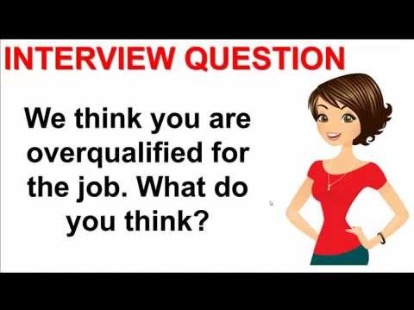
This common interview question may seem strange, but it is frequently asked during interviews because the interviewer may think you are overqualified for the job.
Some applicants may possess all the required qualifications, so the interviewer may ask this question to understand the candidate’s motive for applying.
When a Ph.D. holder applies for a position as a primary school teacher, for example.
The interviewer will be concerned because the candidate is automatically overqualified.
They want to be sure that you will stick to this position and not hop on to the next job that suits your skills and experience.
They do not want to assume you only want to work for a limited period or use the role you are applying for as a side hustle.
How to Answer the “Do You Think You Are Overqualified for This Job” Question
Since your qualification exceeds the specified standards, you must therefore take the following steps if you want to be considered:
- First, agree with the interviewer that your educational qualifications or work experience are more than enough for the position,
- Secondly, endeavor to convince the interviewer why you want the job. For instance, say you are trying out a new career related to your discipline, etc. Finally, talk about how your expertise can benefit the organization.
Best Response:
“For example, thank you for noticing my skills and education. There’s no need to be worried about my certifications because I’m excited about this opportunity. I’ve always wanted to share my experience and knowledge with people around me. I have gained much experience from my previous job, and I’ll be happy to share my knowledge with my work colleagues to help this company reach its goals.”
The answer can also relate to salary expectations. In that instance, let your interviewers know that salary is not your priority, and you can equally take instructions from people younger than you.
Let them know that since you have worked at a higher position, this is exactly the job you need for a career balance.
Assure them that you won’t hop on another job by saying you are willing to sign a 6-monthly contract.
If the company is a startup, let them know that you appreciate steady growth and wish to grow with them while using your experience to their advantage.
Another example:
“Organization downsizing has created generational gaps, inexperience in the workforce, and requisite knowledge and skills are not always carried on to the next generation. I could serve as a connector or mentor to the younger team while remaining calm, stable, and dependable daily. For my previous employer, I relayed the details of a failed software release to a new business manager, who avoided repeating the same mistakes.”
10. Do You Need Additional Training?
When answering this type of interview question, you have to be mindful because the question can be tricky.
The question aims to test your confidence level in your qualifications and skills and assess your skills for the job.
If you say NO, you’ll come out arrogant, and your overconfidence might affect your reputation if you can’t deliver as promised.
If you say YES, the recruiter may assume you’re unsure of your abilities.
How to Answer the “Do You Need Additional Training” Interview Question
Because the style of operations or the organizational setting may differ from your previous job, it is best to respond yes.
You’ll need the training to help you fit into your job more readily and identify your weaknesses so that the training can focus on them.
If your response is a ‘yes, you will say that extra assistance from an expert would be ideal for me because it would make it easier for me to blend into the company’s culture.
Your answer should reflect your skills and your weaknesses. You are expected to talk about parts of the role you can ace perfectly and those you are good at but not perfect.
Let the interviewer know that you are always open to acquiring new knowledge and skills or improving on the ones you have, and acquiring more knowledge and skills from training will help you be of better value to the company.
If your response is No, your answer will be:
“I do not think I need extra training to start working here. With years of experience, I know how to perform my task without extra guidance. Moreover, extra training will incur more costs for the organization, so there is no need to waste company resources. However, if the company wishes to train me, I would not say no since this will further boost my skills to serve the company and achieve her goals.”
Only say NO when you’re confident you can fit perfectly without help.
Example 2:
“Because of the skills I acquired during my internship workshops, I have some experience creating structures, working with instruments, and adhering to safety protocols. Therefore, succeeding in this position will not be hard with a little extra training on the specific types of equipment I will be working with and some industry-specific practice to assist me in improving my workload.”
11. What are Your Worst Regrets, and How Do You Deal With Setbacks?
This common interview question is used to evaluate how well applicants accept responsibility for their mistakes and how they react to them.
The interviewer wants to know how you feel about your mistake and failure because everyone makes mistakes at some point, which can lead to costly errors.
Most applicants lie and deny having any regrets or failures, but interviewers are much more interested in candidates who have had poor experiences and learned from them.
Note that you should focus on something minor that may not relate directly to the role you are applying for.
Also, your answer should not be one that led to a huge disaster in your former organization.
How to Answer “what are Your Worst Regrets and How do you Deal With Setbacks” Interview Questions
You don’t need to get personal and start talking about regretful moments in your family or with your friends.
Rather, you should be professional and only talk about regretful moments related to your position or career.
The interviewer is looking for your honesty. Therefore, be honest about your past failures but do not present them in a way that poses a risk to the role you are being interviewed for.
You must describe how you felt when you realized your error and have been striving to prevent it from happening again.
My response, for example, would be that:
“my most regrettable incident occurred at my previous employer. The company held a training session on how to utilize new technical equipment for communication; we learned how to use Google Translate to connect with people of various languages.”
Another Example:
“My attention was diverted, and I reasoned that I could always hire an interpreter to assist me in communicating with people who spoke a different language. Then, just a few months later, I traveled to India for business. On the day I was supposed to sign a multimillion financing deal, my interpreter became ill, and I had to hire another interpreter instead of doing it myself. I almost lost the contract, but thankfully, I didn’t.”
“I was embarrassed by my conduct, so I hired a professional trainee to teach and guide me on how to utilize smartphone apps to connect with people who speak different languages, so I don’t repeat the same mistakes anymore.”
Take a look at how this answer turned negative to positive. The question explains how he learned from his failures.
You do not want to come off as a failure; rather, you are an expert at turning a negative situation into a positive one.
Always have your specific stories handy and prepare your responses ahead of time.
While responding with stories, do not give too many details, avoid blaming others for your mistakes, and show your proactivity by not giving excuses for why things went wrong.
12. What’s Your Relationship with Your Co-workers?
This question can also come in the form of “How do you work well with other people” which is designed to evaluate your interpersonal relationships. For example, whether you prefer to work alone or in a group.
The common interview question also aims to determine how much you tolerate people around you, pretty unpleasant co-workers.
You must respond to this question nicely and professionally and avoid lame answers.
This question is tricky because interviewers have complained that interviewees do a bad job of answering this question.
How to Answer “What is Your Relationship With Co-workers” Interview Questions
Do not rush to say, “I work well with other people” This is always the cliched response.
You should ensure your answer highlights the interpersonal qualities that make you fit for the job.
This is the time to show your people skills and how you are good at communication.
Interviewers do not want to hire difficult people though they may have solid skills. Even if your role in the company does not require constant communication, do not just stop at “I am a good team player.”
Ensure your response shows you develop a comfortable rapport with co-workers, clients, and subordinates and can handle workplace conflicts.
Avoid negativity because it will be seen as being difficult and quarrelsome too.
An organization is made up of people with various personalities and characteristics.
To maintain a calm and pleasant working environment, it is vital to treat everyone with respect.
Answer with specific examples but try to keep your responses to work and do not be involved in the personal lives of your co-workers.
For example,
“I relate respectfully and professionally with my colleagues, I am nice to them and try my best to assist them in difficult times, I avoid getting involved in people’s matters to avoid trouble, I show my support for colleagues’ ideas if they benefit the company, and finally, due to my listening and understanding skills, I can assist them in difficult situations. I handle disagreements among my co-workers using my judgment and problem-solving skills to maintain harmony and serenity in our workplace”. Or
“My ability to interact with others has been crucial to my progress as a supervisor. For example, my receptiveness to my staff members has assisted me in motivating them and improving their work performance. When I noticed that the quality of one of my junior workers began to deteriorate, I met with him to discuss the problem. I empathetically listened to his fears about the daily tasks and discussed how we could solve his problems while enhancing his productivity. I firmly believe in communicating effectively with and listening carefully to employees to enhance productivity.”
13. Do You Mind Working for Someone Younger And With Less Experience?
This common interview question is intended to determine how the candidate thinks about receiving instructions from a younger person with less expertise in the profession.
You must respond to this question cleverly because if you say yes, the interviewer may perceive you as bossy and dismissive.
The interviewer will likely ask this question if a superior is younger than you.
Your response will reveal much about your personality, including your personal qualities that do not concern age.
✅Tip* the interviewer wants to fully understand how flexible you are and your ability to be humble and work just with anyone and in any circumstances.
How to Answer the “Do you Mind Working For Someone Younger and With Less Experience” Interview question
Because this can be a very uncomfortable question, especially if your interviewer looks younger than you, the most effective approach is to stay optimistic.
At the very least, this will demonstrate your capacity to stay focused in bizarre circumstances.
Have it at the back of your that you will most likely be reporting to someone younger and with more experience than you.
You should be receptive to any work situation and willing to take orders from a younger, less experienced person, no matter the circumstance.
Although it is preferable to answer no, the interviewer sees you as modest and eager to accept and obey orders from anyone.
It is better not to talk about how your experience will help your boss learn more about the area because it will appear like you’re there to teach your boss his job.
You can also highlight your willingness to learn new things. However, do not let your answers come off as closed-minded.
Your interviewer will use this opportunity to assess your ability to follow directions.
Even if your manager is older than you, it will help the interviewer to know that you are willing to take orders in any unusual situation.
For example, you can say;
” No, I don’t mind working with someone who has less experience; I see it as an opportunity to learn more because my boss is also more experienced in some areas than I am, and being young is an advantage because the team will be more energetic, and I will be happy to share my skills when my boss requests it.”
Another example:
“The main reason this firm employed everyone is to assist them in achieving their objectives and aspirations. Everyone in the organization has unique skills that will benefit the organization. Thus I’d be honored to work with anyone because I can learn and grow from them. Furthermore, no one understands everything, and the purpose is to meet the company’s objectives.”
Do not be impolite, rude, or negative while answering your questions.
✅Tips* Never make exceptions with your answer, like saying you will be willing to take others if your juniours are professional and more experienced.
This will show that you are close-minded. So start searching for job opportunities now.
14. What Motivates You?

This common interview question can also be framed as “What drives you to work harder?” The interviewer wants to understand what motivates you to work harder.
You should answer this question honestly because your response will reveal your hunger for success.
No one will hire someone who isn’t passionate about something or works for the sake of working.
Your response will also disclose more about your personality. You must be truthful about your answers here because it is an open-ended question.
When discussing what motivates you, summarize it with examples from your previous work experience and studies.
Your answers must be relevant to the skills required for the job you are applying for.
Tip* The Interviewer wants to know what makes you tick, what drives you to succeed, if you will ace the job role, whether you enjoy doing what you are passionate about, and how well you will fit into the organization’s team.
How to Answer “What Motivates You/What Drives You to Work Harder” Interview Question
Your motivation can be in the form of:
- learning new things
- teamwork
- mentoring co-workers
- beating deadlines
- being ingenuine and creative,
- thinking out of the box,
- being a good team player,
- problem-solving,
- error spotting, or
- analyzing complex data.
Remember to always come up with many examples of what motivates you.
You can say that
“What motivates me is beating project deadlines. I feel this sense of accomplishment when I look back at my work and feel happy. Visible results also motivate me, especially when I see many people using the app I developed and leaving beautiful reviews.”
The wrong answer you shouldn’t say is:
“I want to work so I can travel out of this place,” or “I want to work so I can purchase a car.” Your response should be relevant to the position. This statement makes it sound like your sole aim for applying for the job is for selfish reasons. Try to reflect on one of your positive attributes that motivates you to work in your response to pique the interviewer’s attention.”
For example, if you’re applying for a position as a lawyer in a chamber, You should say,
“I am saddened by the prevalence of injustice and unfairness in our country.” However, my desire to see justice served for those wrongfully accused motivates me to work harder, and I am ecstatic when justice is served.”
✅Tip* Do not answer this question by stating your motivation for applying for the job or your career goals and aspirations. The interviewer did not ask you that.
Another example: if you want to be a manager for a corporation, You should say,
“I enjoy assisting people in achieving their positive dreams. I know the company’s aims and vision and am eager to assist her in accomplishing them; I would like to help realize the organization’s success and be a part of her success story.”
15. Will You Put Your Interest Ahead of the Company’s Own?
This challenging interview question may also be, “Are you willing to put the company’s interest above your own.”
It may seem like the interviewer wants you to lie. However, the corporation is attempting to determine which is more important to you: the company or your interests.
They’re looking to see if you’re willing to put your personal desires aside for the firm’s sake.
Most people would lie because they are desperate for a job, but interviewers can detect lies since no one would risk their interest for another man’s business.
Many people are not ready to give up their personal values, convictions, and value for a job and should not be put in such a difficult position to succeed in their careers.
However, when answering this question, note that it is mostly about work ethics. The interviewer wants to know how loyal and honest you are. Therefore, your response should be detailed and conscious.
How to Answer “Will You Put Your Interest Ahead of the Company’s” Interview Question
Your response should show that you would put the company’s interests ahead of your own without saying yes because this can be tricky.
Don’t just say, “Yes, the company’s interests will be ahead of mine,” because you may be lying.
You don’t want to hurt your chances of landing the job. First, however, you should research the company’s aspirations and goals and see whether they align with yours.
Make sure your answers relate to your experiences and the job description.
✅Tip* Avoid a yes or no answer. Instead, research the company beforehand and use specific solutions in your response.
If they’re the same, you can agree and provide job-related examples for the interviewer to consider. For example, if you apply for a job at a law chamber, my response will be:
“Seeing as the interests of this firm aligns with mine, which is to obtain justice and equality for all. There will be no conflict of interest because I support justice for all. In my previous work experience, I learned the importance of justice and uprightness, and I believe I will apply them to the growth of this firm since we want the same thing. Therefore, I am ready to put the interest of this chamber ahead of my interest as both align.”
16. You May Not Qualify for the position Because of Your Lack of Experience.
This common interview question is mostly thrown to College or fresh university grads to gauge their confidence in their abilities.
An interviewer can tell you you’re not qualified for the job due to little experience. However, you don’t have to panic much, as this is just to demotivate you.
Most applicants will get discouraged, be thrown off balance, give up at that point, or show signs of desperation.
You need to maintain your composure and act professionally so you don’t stall your chances of getting the job. However, you may land the job if you can answer the question smartly, confidently, and cleverly.
How to Answer the “You May Not Be Qualified For This Job For Lact of Experience” Interview question
Recruiters also throw in this question when they have too many qualified applicants.
At that point, they want to choose the best interviewee by elimination. Hence, questions like this will shed light on who should go despite their experiences.
First, you should agree with the recruiter that you don’t have the required experience and then try to point out the qualities and skills you possess that will help the company’s growth.
You need to sound so convincing so the recruiter can be more interested in you, which tells more about your persuasiveness.
For example, if you’re applying for the post of French teacher at a secondary school, your response should be,
“I am aware I don’t have the required working experience for this job, but I possess qualities to need for the job as I have stayed in France for 15 years and I have MSC in French, which makes French easy for me, although I have no official teaching experience. Moreover, I conduct a French tutorial class for my coursemate during my university days, and everyone easily understands. Therefore, I can easily gain experience teaching pupils quickly.”
Another example is:
“I know I am not well experienced enough for this position, but my academic qualities and competency can perform this job effectively. Also, I am a fast learner and can grasp everything easily.”
This is an opportunity to bring up experiences not directly related to the job but shows your inner resolve to take on new tasks and willingness to outperform should you be given a chance.
17. Would You Lie For The Organization?
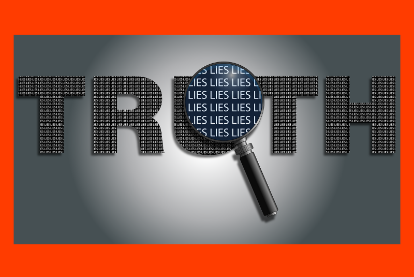
This is a behavioral question that the interviewer uses to assess your personality.
This common interview question is similar to the one before but different. Yet it is meant to throw you off balance and let the interviewer assess your honesty and ethos in any situation.
This question is needed to evaluate what matters so much to you between loyalty and integrity.
Sometimes firms may ask employees to lie about something, such as profits or product or service quality.
Some employees are willing to lie to keep their jobs, while others value personal integrity above all else.
They will not lie for the company and are willing to be fired or resign if necessary.
How to Answer the “Would You Lie For the Organisation” Interview Question
Some companies deal with the confidentiality of trade secrets, and they will rely on their employers to keep their mouths shut or won’t sell them short.
They also want to know if you appreciate doing business legally or resort to fraudulent practices should the need arises.
This is a tricky question because if you answer yes, it implies that you aren’t honest and that integrity means nothing to you.
Also, if you say no, you risk losing your job, so you must carefully consider your response. If pressed, speak confidently and show your truthfulness.
Do not compromise your integrity or agree to lie for the company, which will cast you in a bad light.
If you reply yes, do not just stop at yes. Your response should clarify that you realize that every organization has its standards and code of conduct.
Also, you will follow the firm’s code of conduct. Therefore, your answer should be professional but not detailed.
However, if you respond with a NO, You must be clever in your response so as not to hurt the interviewer or company with your choice of words.
Example 1 (My response)
“I am aware that all employees are subject to rules and regulations, and I am willing to follow all rules established by the organization as I am sure the company values align with my integrity.”
The above response indicates that you consented to lie for the organization but not directly with your answer.
Instead, it is phrased more professionally so that the interviewee does not come as someone who lacks personal integrity but kowtowing to the company’s rules and regulations, whatever it is.
The second part of the response indicates that the interviewee highly values their integrity.
Hence, stating it courteously so that the interviewer will consider how his personality will impact the organization, either positively or adversely but will do his best to protect the organization’s interest.
18. What Does Leadership Mean to You, and What Attributes Do You Look For in a Leader?

Leadership skills are one of the most wanted skills in an organization because even the last subordinate in a company is a leader to the company’s clients.
After all, leadership skills are needed for effective teamwork. The interviewer asks this question to learn how you will inspire co-workers even if you are not interviewing for a leadership role.
You must prepare for this question by reviewing the job description to understand the interviewer’s wants.
Please list all the leadership skills and narrow them down to the ones needed for the job. For example, if you are a fresh graduate, you can mention the leadership skills you acquired during school, academic club, volunteer work, etc.
How to Answer “What does leadership mean to you, and what attributes do you look for in a leader” Interview Question
The best way to answer this question is through anecdotes and the STAR method.
(S) Situation: Describe the context of the situation. What did you do?
(T) Work. What was the specific task you needed to accomplish? If you were addressing a particular issue, explain what it was.
(A) Action: How did you accomplish the assignment or address the problem (or what skills did you employ)?
(R) Outcome: How did the situation turn out? Did you do a good job on the task? Did you find a solution to the situation?
For example,
“My previous job was as a Purchasing Officer for a global firm. Our company’s total procurement was low from the previous quarter but with higher expenditure. Hence, our Managing Director required all procurement staff to recommend ways to increase purchases while saving costs. I came up with an idea during the presentation to solve the problem. I devised a method that involved adjustments in our procurement strategies. The director was pleased with my idea and handed me the role of implementing the strategy. I spearheaded a 5-man team to develop and implement this new procurement strategy.”
“We had a tremendous improvement in our procurement strategy while saving funds for the company by 25%. Of a surety, I believe my clear communication with both the management and my team helped us achieve this feat.”
✅Tip* Practice your answer using the STAR method, focus on the company’s goals, and ensure you ooze confidence and enthusiasm in your tone.
Your voice, body language, eye contact, and posture should reflect your leadership traits.
Do not slouch on your seat, be shifty with your eyes, keep a low tone, or display a lack of enthusiasm. Instead, let your tone reflect that of a leader.
Your dressing should show that you can take charge of your appearance and, importantly, always give credit to other teammates.
You are a leader, not a dictator, so the former recognizes the efforts others made to help him achieve his results.
19. What are Your Thoughts on This Interview?
This is a common interview question at the end of an interview. The question appears simple, but it is a little more complicated.
This is because if you respond incorrectly, you may reduce your chances, even though your previous responses are correct.
Your response is generally determined by how you felt about the interview. The interviewer also wants to know what you think of them and if you have any questions.
How to Answer “What are your Thoughts About This Interview” Interview Question
Even if the interview is stressful, dull, or embarrassing, you must not express this.
You must be polite, professional, and engaging in all responses. Don’t make it seem like the question is too simple or too difficult for you.
When asked to rate yourself, don’t use numerical ratings like 0 to 10 unless the interviewer forces you to, in which case, try not to grade yourself below 8.
For example, if the interview is a structured question interview,
“I enjoyed the interviewer, particularly how professional you handled it and how the questions were designed.” If the interview is unstructured interview questions whereby the interviewer is free to ask any question, you can say, “The interview is interesting, and I truly enjoyed our conversation.” Although we discussed various topics, the debate was professional and constructive.”
This is also an opportunity to ask questions to clarify further any vague thoughts you have about the recruiter.
20. How Did You Hear About the Position?
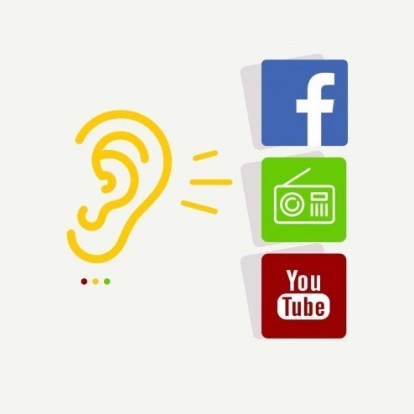
Companies utilize a variety of methods to raise awareness about job opportunities.
Some businesses can post it on social media sites like Facebook or Twitter, while others use media such as television, newspaper, billboard, radio, etc.
Tell the interviewer how you knew about the job, regardless of the medium used (chit-chat). The interviewer genuinely wants to see where the interviewee got his info.
Finding the right person for the job is as hard as getting a good job.
Hence, interviewers want to know which of their mediums the advert was better at landing them good employers and which medium had the most publicity.
Another reason employers ask this question is to make sure you are deliberate about the job you applied for.
Also, you did not just stumble on the job out of the million jobs you applied for and decided to use it for or “try your luck.”
They want an interviewee genuinely interested in the company and passionate about the job and the role he is about to take on.
How to Answer “How Did You Hear About This Position” Interview Question
Mention your source to the interviewer but keep it short, and explain additional inquiries you made about the firm and position.
You can say the following :
- you saw the job on LinkedIn,
- an online newspaper,
- a career website,
- or careers page of the company website while searching for something unrelated.
- you were told by a friend or colleague who suggested you apply but who didn’t know about the company,
- a recruiter contacted you about the opening etc.
For example, if you are applying for a position as a social media handler at Maay Plc, you can say that:
“I learned about the job vacancy on Twitter and read a sponsored ad announcing you’re searching for a social media handler. I checked your official Twitter page to confirm the information and see the requirements. I applied for the position because I meet the specified requirements and qualities.”
Note that while answering this question, do not say you cannot remember or are unsure. This will give off the vibe that you are not put together.
Be truthful about your answer, and do not mention a place the recruiter didn’t place their advert.
Another mistake to avoid is looking desperate, letting your interviewer know that you are applying for any available and can want to be hired by just anyone. Ensure that you don’t go into details.
Some companies recruit fresh grads straight from convocation. Using this type of recruitment method as an example, You can say:
“I am the best-graduating student in my class, and the company’s managing director was there at my convocation. So I got the invite for this interview through the connection.”
21. In 10 Years, Where Do You See Yourself in This Position?
Some interviewees do not know about their next year, but the interviewer wants to know how your future goals align with the company’s.
As deceptive as this question can be, make sure your answer is tailored according to the company’s aspirations.
You need to prepare beforehand for this question. The world is rapidly evolving, and new methods are being introduced for various tasks.
For instance, ChatGPT’s artificial intelligence is making some jobs obsolete while increasing demand for other jobs, particularly in technology-related fields.
Therefore, you must think carefully before answering this question. Aside from this, you should not discuss goals that do not align with the job role.
How to Answer “Where Do You See Yourself in This Position” Interview Question
It is critical to have a solid response. Giving a shoddy reply or being imprecise in your answer may give recruiters the impression that you are uninterested in your profession.
It may also come off as not just a perfect match candidate or hiding something.
Here are some tips on giving information about the next career ladder while expressing your interest in the position.
✅*Tip Know that the recruiter wants to know two things: how long you intend to work for the organization and how ambitious and progressive you think you are.
If you’re staying for a short time, don’t make your intention known when answering the question, like saying, “I am just interested in the job for a short time, so I can’t predict the future.”
This response will automatically dismiss you.
Therefore, you need to be as smart and open as possible and ensure your response follows the company’s vision.
For example, if you’re applying for a job as a drone engineer at a tech firm, you should say,
“The world population is rapidly increasing, and this increase is affecting our mobility; people have difficulty moving easily from one place to another due to traffic; several methods have been used, like making portable cars, light rails, etc., to ease transportation stress.”
Another option being considered for human transportation now is drones. Drones are used to deliver goods and other supplies at the moment.
In the next 14 years, human transportation through drones will be realistic, and there will be great demand for drone engineers.
Furthermore, before going for the interview, you must adequately prepare for this question so you won’t fumble in your answers and thoroughly research a career path related to the position you are applying for.
How much time would you typically spend on that employment? What necessary steps do the job require within a 5-year duration?
The career section of some employers’ websites will explain the career paths required for each role.
To get a true depiction, reach out to professionals and experts in the field through former students, relatives, buddies, or professional groups.
For instance, a software engineer applying for an engineering role at an ICT firm to move up the ladder will eventually research the company to see if and how the engineers working typically find their way to managerial positions.
You can start by searching the website’s career section and searching it up. Your response can be
“As a department representative, I’m motivated to keep honing my engineering skills. It has come to my notice that many ICT firms progress from staff engineer to ICT manager, which I’m interested in as part of my long-term career plan.”
22. What Would You Say About Your Most Recent Job?
Another way interviewer frames this common interview question is “Why are you leaving your current job” When an interviewer asks this question, he’s trying to figure out how you explain people or places you no longer relate with.
Candidates dissatisfied with their previous job tend to say negative things about it.
This shows they are unprofessional and unfit to work in the organization. Therefore, job candidates need to be smart when replying to this question.
How to Answer “What would you say about your most recent job” Interview question
Even if you disliked your previous job, speak positively about it. Don’t disparage the working environment or compensation.
Also, do not exaggerate the position; otherwise, the interviewer would wonder why you left if it was so fantastic.
Explain that you are leaving or you left your recent job for several reasons, such as caring for a loved one or needing a change.
Your response can be, “I am quite doing well in my former job, but I am looking for more challenging roles to push me to greater heights.”
✅Tip* While answering this question, ensure you are not giving too much negative information
If you are leaving or you left because you were burned out, your response can be
“I am looking for a great role where I can apply my knowledge and skills and, at the same time, achieve a work-life balance. The interviewer will be impressed that you are not just a hard worker, but a smart one, besides, emphasis on the type of work environment that makes you thrive.”
Furthermore, your response should be relevant to the position.
Don’t waste time detailing how you and your co-workers interacted in your previous job, such as:
- how you and your co-workers socialize after work,
- how attractive your female co-workers are, etc
You can discuss how the company’s resources helped you advance your career and how you want to move on to something better.
For example, you could say,
“I enjoyed working at Maay LTD because they are interested in developing their employees.” Workers are given development training regularly, and top management consults every department in the organization before making major decisions, ensuring everyone is involved in the company’s growth.”
23. How Do You Perform When You’re Not Being Watched?

Some employees may struggle to perform efficiently without supervision due to a lack of expertise, so most firms prefer hiring someone with extensive experience.
The interviewer wants to know how experienced you are in the role, if you work well on your own, or if you can’t take a step if you are not directed to do so.
The interviewer wants to gauge how much you think out of the box. Be careful in answering this question because it will show your leadership and team skills
How to Answer “How do you Perform When you’re not Being Watched?‘ Interview Question
You should try to give an example of a situation where you performed exceptionally well without supervision.
Your example should include the following:
- why were you given the task alone,
- how you felt when the task was assigned to you,
- how you handled the task,
- what you learned after completing the task, and
- how your boss felt about the task.
✅Tip* Do not go into much detail. Your response should show you can take the initiative when needed and not be boxed in a corner.
For example, if you are an auditor at your previous company and now going for another auditor job role, you can say,
“In my previous job, I help the chief auditor audit corporate bank accounts. My supervisor was in China and needed to audit an account urgently; he assigned me this duty, and I was ecstatic since I could finally show off what I had learned. I audited the account and detected certain inconsistencies, which I reported to the corporation, and they were quickly resolved. I completed the auditing accurately and neatly. My supervisor was impressed because he thought I would make some mistakes, but I proved him wrong. I also discovered a new way to do account auditing faster and more accurately, which I taught my boss”.
Another example:
“Commercial planes require at least two pilots to fly. My senior co-pilot and I were to fly a plane from Nigeria to Australia one day. My co-pilot had a mild headache before the flight but didn’t report it to the management. However, the headache became severe while in the air, and he could not assist further. I let him rest while I handled the trip issues. Initially, he hesitated because he believed I was still inexperienced enough to travel alone. He eventually agreed when the headache was getting stronger and went to sleep, leaving me alone to handle the flight from Nigeria to Australia. I was able to complete our journey without a hitch.”
24. What Lengths Will You Go To Complete a Task?
This common interview question is intended to determine how much you enjoy your work.
Work may be demanding and challenging. However, many employees will often not work above their typical working hours to complete a task, which can hurt the organization.
Companies prefer to hire employees willing to do practically anything lawful to complete a task, even if it means working overtime or utilizing personal resources.
How to Answer “What Lengths Have You Gone To Complete a Task” Interview Question
You must show the interviewer how much you enjoy the job and what you will give up(time) to keep it.
If you have ever gone above and beyond the call of duty, you can use that as an example to show the interviewer how dedicated you are.
Don’t use instances that aren’t relevant to the work, and don’t mislead or exaggerate the event to the interviewer because HR professionals are trained in psychology and can detect deception.
For example, my response would be,
“I love my job so much that I would go to any legal length to complete a task,” I recall in my previous job when I was in charge of sales,
On December 27, a client placed an order for several goods worth $2 million through our post office mailbox. However, we didn’t collect mail from the post office again, so we didn’t receive the mail. On January 2, I went to the post office to send a personal package to a friend, so I decided to check the mailbox, although I wasn’t expecting to see any mail. Fortunately, I found the mail and immediately called the number on it; fortunately for us, the order is still valid and closes on January 3, which was the next day all workers were off duty, so I immediately went to the company to get the clothes. I immediately traveled to a different state to deliver and secure the deal, even though the day was my off day.
25. How Did You Handle Disagreements With Your Colleagues At Your Former Job?

This is one of the behavioral interview questions employers ask you. In addition, some will ask you to give a specific instance of the conflict and how you handled it.
You can’t be comfortable with everyone’s behavior because one might please you, and others may irritate you.
Interviewers are well aware of this, so they ask this behavioral question to see how frequently you clash with colleagues.
However, they want to know how calm and professional you can be during conflicts.
How to Answer “How Did You Handle Disagreements With Your Former Job” Interview Questions
Your interviewer would not want to hire an employer that is difficult to work with, hot-headed, and someone that will escalate small issues into bigger ones.
The interviewer wants to see you communicate properly.
They are interested in seeing an employee who leaves his ego behind and is willing to compromise and work with others to keep the company running smoothly.
When you are thrown this question, know that your interviewer is evaluating your skills in:
- communication and listening,
- your perseverance,
- capability to understand other people’s points of view or perspectives,
- finding a solution or concession that’s in the employer’s best interest as much as it isn’t something you want.
✅Tip* While picking a story, make sure it aligns with a negative instance that led to a positive outcome, a didactic experience you will share with the interviewer, and one that didn’t cost the company a lot of time or money.
If you have ever disagreed with any worker, explain what prompted the dispute, how you managed and ended the conflict, and how you reacted to the conflict.
This gives the impression that you have better conflict-resolution skills.
Don’t include any cases in which you had to resort to violence to resolve a disagreement, and don’t create the idea that you’re still on bad terms with your co-worker.
For instance,
“in my previous employment as a sales manager, I had a dispute with a co-worker over how he unpleasantly behaved to a customer; he argued that the customer deserved the harsh comments, whereas I calmly let him know that he was wrong and that his behavior was unprofessional. I revisited him later, when he was calmer, and carefully explained to him that it is inappropriate to utter bad words at customers as they’re the ones who indirectly fund our salaries; he quickly realized his mistake and apologized to both the customer and me, and everything went back to normal.”
26. How Do You Face Challenges?

The interviewer knows that every profession has at least one difficult period. Nothing is easy, and those who do not handle this difficult moment properly generally lose their promising future.
The interviewer wants to know what you do when confronted with a major problem: flee? Become despondent? Or do you face and overcome your difficulties?
How to Answer “How do you Face Challenges” Interview Question
A good employee is always willing to face challenges. Therefore, when answering this question, you should project a confident demeanor since the interviewer wants to see that you are determined to overcome struggle.
When attempting to overcome problems, there are several phases to take:
- First, to identify the challenge,
- examine how it impacts your productivity or work,
- consider various solutions to solve the problem,
- analyze (advantages and disadvantages) of these solutions,
- choose the best option and
- put in extra effort to solve the challenge.
Example (as a sales manager):
“When faced with a difficult situation, I maintain my composure; panicking would only cause me to make poor decisions, compounding my dilemma. I’ll confer with my team to get their thoughts on how we should approach the problem, and I’ll choose the best solution. My branch at my previous job was responsible for boosting our revenues from #1 million to #5 million in six months; it was nearly impossible and difficult. After much discussion and critical analysis of our options, like increasing price, adverts, etc., I met with my team and discussed various options to achieve our goal. We decided on the best solution, which was to increase our advertising. As a result of increased advertising, we surpassed our target and turned a profit of #7 million.”
27. What Would You Say if Your Supervisor Had an Impractical Idea?
The interviewer can frame this question like “What to do when you are sure your boss is wrong” Because this is a behavioral question meant to trap you, you must exercise extreme caution because the interviewer could use your response against you.
Your interviewer wants to see if you have difficulty working with managers and how you perceive your relationships with your superiors.
Relationships with superiors are typically formal, especially in bureaucratic organizations with hierarchical power structures. Therefore, correcting your boss is a challenging task.
How to Answer “What Would You Say if Your Supervisor Had an Impractical Idea” Interview Question
You have to be very tactical when answering this question.
When your boss makes a decision that may have a major influence on the company, your response should be that you will gather enough evidence to prove their decision is factually inaccurate. But, again, be polite and calm while answering this.
When you have enough evidence, meet with him to discuss the idea. Tell him what parts of the idea are realistic and unrealistic and how they can be improved.
✅Tip* Never say such a situation did not happen, as that will give an impression that you are lying because this is unrealistic.
Always give an example; in specific words, tell your interviewer how you explained the situation to your boss.
Let your interviewer know how positive the result of the situation was. However, do not speak ill of your former supervisor.
For example, you can say,
“I have spoken to a former manager about a specific mistake seldomly in the past. However, my supervisor recently gave my team a project. I realized our information was outdated, and we could rely on available recent data. We must proceed with the project using recent data if we are sure of being successful with it. I approached my boss privately and told him about the error while letting him know about the up-to-date information about the data. He expressed his gratitude and immediately updated the data right away. The project turned out a huge success for us.”
28. What Makes a Working Environment Conducive?

This common interview question can also come in the form of “What type of work environment do you prefer.“
Interviewers ask this to find out how they feel about your working environment.
Interviewers ask this question to determine if you will fit very well in the company and its culture. It equally assists them in deciding which work environment they are most productive in.
In less conducive environments, people are less productive.
Suppose your description of a favorable working environment fits well with their work settings. In that case, you find their organization conducive, but if their work environment isn’t up to par with your definition, it means they’re not up to par with you.
The recruiter wants to know if you love a traditional, more formal work environment or an informal office structure.
Would you prefer a squad approach, or do you like working individually? An interviewer will be very interested in knowing where you feel most comfortable.
Employees can only be their most productive selves when they are at ease and have a sense of belonging.
How to Answer “What makes a working environment conducive” Interview Question
Your response should be in line with the organization’s structure. Be honest about answering this question.
If there are work environments you do not like, let your interviewer know, but let such environment not be related to the job role after you must have researched the company.
Before attending the interview, do extensive research on the company. If you are unfamiliar with the organization’s work environments, you can still depict one appropriate for your career.
Even though your ideal work environment should be compatible with the job, a bank candidate should not yearn for a swimming pool.
✅Tip* Let the Interview know you can be flexible with your work environment.
For example, say
“I’ve worked in various settings and have loved learning new skills in every one of them. There is no particular environment that will be too difficult to fit in. Still, I enjoy a work environment where people are enthusiastic about what they do and are dedicated to rapid growth and getting things done.”
This shows that you can fit into any work environment.
If it concerns the physical environment, mention that a good working environment must-have characteristics such as good ventilation, a well-structured building, and well-organized offices where everyone can work comfortably.
29. What are Your Personal Career Goals?
The interviewer wants to assess your confidence level and investment in your pursuits.
They want to know if your personal goals align with the company’s. Ensure you understand your goals and how to achieve them before answering the question.
Goal-setters are more organized and motivated than those who don’t. So, this inquiry aims to see how well-organized you are.
The goals will give the interviewer an insight into your personality.
How to Answer “What is your Personal Career Goals” Interview Question
Your goals should be relevant to your profession; do not discuss your ambitions with the interviewer.
Give reasons for setting goals and, if possible, include a list of some of your accomplishments.
Let the interviewer know that your personal goals align with your career goals and that you are passionate about them.
Demonstrate to the interviewer that you are enthusiastic about your field.
Demonstrate that you enjoy working in the real world and are driven to succeed. You can demonstrate your commitment by drawing on previous experiences.
Indicate your desire to establish a mutually beneficial professional relationship with the company.
You must describe how developing your personal goals will help the company’s goals. This question necessitates ingenuity from you.
Demonstrate your ability to blend with the organization and how your personal goals, in the long run, can be beneficial to your organization.
Also, show your ability to work well with others.
For example, you can say;
“Yes, I set career goals; I have long-term and short-term targets, for example. My ambition to accomplish my goals and objectives drives me to work harder and keeps me organized.”
30. What are Your Strategies For Dealing With Work-related Stress?
All humans are designed to be exhausted. Thus stress is unavoidable. People react to stress in a variety of ways.
Some become enraged, some become irritable, and so on. Because interviewers know this, they inquire about the candidate’s stress management techniques.
People who don’t know how to cope with stress are more likely to become enraged, negatively impacting workplace relationships.
The interviewer wants to know how you handle pressure and how composed you can be in the face of stress. They will also watch the manner you answer this question.
The employer also wants to know if personal stress affects your work.
How to Answer “What are your strategies for dealing with work-related stress” Interview Question
Prepare for this question before you answer it. Discuss what makes you stressed.
People get stressed for a myriad of purposes, including a lack of interest in their work, fatigue, pressure, and so on.
Discuss how you react to others when stressed because individuals become irritable, moody, unwell, etc.
Provide specific examples of when you handled stress positively and show the interviewer how stress can be your strong motivator.
✅Tip* Never tell the interviewer that you don’t get stressed because everyone does.
Discuss how you deal with stress, such as taking breaks, resting, or seeing a therapist.
For instance, you can say,
“I understand that stress is unavoidable at times.” When I’m stressed, I unwind by taking a cold bath after work to relieve weariness. In my previous job, each employee was given 30 days of paid vacation per year. Do not mention that you are the cause of the stress.”
Another example is
“I place a high value on Good pressure, like having a lot of tasks or having a deadline due soon. This helps me stay efficient and engaged. I know that stress is sometimes a by-product of too much pressure. Nevertheless, I’m quite good at juggling various tasks and timely completing them, keeping me from extreme stress. For instance, there was a time I was dealing with three mega projects that had almost the same deadlines, which put me under a great deal of stress. But because I made a timeline outlining how I would collapse each project into smaller tasks, I was able to finish all three projects earlier than expected and prevented avoidable stress.”
31. Have you Previously Held a Position of Leadership?

Another way employers ask this common interview question: “Describe your leadership experience.”
This question is meant to see if you’ve ever held leadership positions at a previous job.
People applying for high-level positions in the organization should have leadership experience to have a greater chance of being hired.
The interviewer may hear your leadership experience to assess your capacity to maintain or steer a team of employees.
Interviews are aware that team members who have good leadership qualities will last longer on the job and display loyalty.
They are also more eligible for the promotion.
How to Answer “Have you Previously held a Position of Leadership” Interview Question
You are expected to show in your response that you can comfortably delegate tasks too.
If you were in a senior position at your previous job, you could say YES and discuss your leadership style.
Go ahead to say its influence in your previous job, how you interact efficiently with team members, and your accomplishments as a leader.
Also, use the STAR method to outline the steps you took to achieve your leadership goals in your previous work.
In your response, you should demonstrate that you possess the requisite skills and qualities to aid the organization in reaching its objectives.
Best Response,
“At my last employment, I was the general manager for 5 years and accomplished many excellent things, such as expanding sales outside the continent’s borders and receiving national and international business awards for my leadership qualities. I aim to set a positive example for my followers by doing my best at work and sharing my expertise and experience.”
If you haven’t held a leadership position before, you can say No but describe the qualities and talents that make you a good leader.
Carefully pick a leadership experience from a previous role or a significant leadership experience from college years.
Another example,
“I am aware of what leadership entails. I was helping at my local homeless shelter for four years during college. The management attempted to boost the adoption rate when I arrived as a helper. I searched three homeless shelters and rescued them to see ”what they were doing to improve their likelihood of succeeding. During this study, I discovéred that all three were organizing events on their premises, which boosted the adoption rate.
I told the charity supervisor about my results, and she agreed to let me arrange a family vacation celebration for homeless families. I collaborated with the employees and other volunteers to arrange programs and food for the event. I also created posters and distributed information concerning the event via the shelter’s social networks were used to publicize the event. Over 100 individuals attended the event, resulting in 50 new adoptions.”
32. Describe how you handled the most challenging task you’ve ever faced.
This interview question is tricky and designed to assess a candidate’s problem-solving abilities.
Interviewees must be able to resolve issues without the assistance of others.
On a different note, there are numerous approaches to a problem.
A particular organization may favor a staff member that employs a calculated, systematic, and defined approach. At the same time, another corporation may want employees that jump in and do everything possible to tackle the need without considering the broader perspective.
How to Answer “how you Handled the Most Challenging Task You’ve Ever Faced” Interview Question
Tell your Interviewer a major challenge you experienced but ensure it is a positive one or one that led to a positive outcome.
Be explanatory in your response to this question. Don’t just show what you did. Instead, say how you did it and the results you achieved.
✅Tip* When answering this question, never blame anybody and always remember the bigger picture.
Companies would want to recruit people who can transform obstacles into possibilities.
Consider highlighting the method you used to change the most difficult situation in your response.
We know it is not feasible to wave a wand magically and turn all adversity into a spectacular breakthrough.
However, you can always learn from your difficulties and use what you have learned for future issues that will arise.
Always ensure to express your learnings and how trials have assisted your growth.
Consider all of the issues you’ve faced since you’ve begun working. Discuss the most important one and how you handled it. For example (as a software developer),
“My biggest problem was When we had an issue with developing the company software, and I spearheaded the group that was able to bring the situation under control. My team properly troubleshot and addressed the difficulties quickly, and the crew was not entirely exhausted. I achieved this feat by inspiring the executive engineering department to devise a technically novel and unique approach that will answer the clients’ problems while requiring fewer development hours on our part.”
33. What Have you Learned from Your Former Workplace and Co-workers?

Candidates almost certainly learned something from their previous job or coworkers.
Interviewers use this interview question to determine how teachable a candidate is.
Some applicants are eager to learn and are taught many important aspects of the job by coworkers, while others with bad character are not given any professional advice.
Being aware of what you did in past positions can assist The hiring manager in comprehending what you can provide to the current firm.
As a result, it’s not uncommon for your interviewer to ask you, “What have you learned from past roles or co-workers?”
Understanding that the interviewer is not asking you about your previous employment is crucial.
Rather, the question is about the abilities you gained, what you discovered about yourself, and your discoveries about the industry from previous positions.
If you have mastered important skills and abilities, it will give you an edge and showcase your desirability for the job interview.
This will equally make you stand out among other interviewees.
How to Answer “What Have You Learned From Your Former Workplace and Co-workers” Interview Question
Discussing career-related lessons learned on the job rather than life lessons or hacks is preferable.
✅Tip* Don’t say you did not learn anything. Make sure what you learned is positive. Don’t speak ill of your former coworkers or workplaces.
Align your answers to qualities and skills you learned which will be useful for the job.
Ensure you don’t give irrelevant lessons like how you learned to make a delicacy, your bitter experience with colleagues, etc.
Instead, talk about the positive things you learned relevant to the job.
Give specific examples of when the lessons were beneficial to you. For example (as a sales manager),
“I learned a lot from my junior colleagues. As a traditional man, I thought the best way to advertise was through radio, billboards, television, and social media networks, so I concentrated our resources on those alone. However, we did not see the expected results, so my colleagues came to me and explained how we could reach a wider audience by advertising through Google ads. We tested Google Advertising and saw a significant rise in sales because our ads are practically everywhere, including applications and websites.”
“Speaking a local language is another thing I’ve learned. Before the debut of our products in China, I struggled with the Mandarin Chinese language, and as sales manager, I must say a few things during the launch program and meet with some business dignitaries. One of my coworkers agreed to teach me the language, and I learned everything there is to know about Mandarin Chinese in just 27 days. Everyone was taken aback by my fluency while giving my speech on the launch day. I have learned a lot more through my business.”
34. What kind of Company Would you Like to Work for If you Had Your Choice?

The common interview question can come in the form of “what is your ideal company” The interviewer wants to know your ideal workplace.
Employers want to find out if their company is one you want to work in or if you want to work anywhere without focus. This question requires critical thinking.
The interviewer wants you to:
- visualize how a workplace should be,
- the types of people who should work there,
- the kind of boss you wish you had,
- the organizational setting, and
- infrastructure amenities, among other things.
Although this question appears simple, it is quite difficult to answer accurately.
When we imagine something, we tend to think strangely, and visualizing how a workplace should be is no exception.
How to Answer the “What kind of Company Would You Like to Work For If You Had Your Choice” Interview Question
Your response should be that the industry is one in which you are interested in working.
Your comment should reflect that you enjoy the company’s job activities.
This shows the interviewer that you care about the company’s interests as well as the interests of other employees.
Tell the interviewer that you’ve wanted to work for their company for a long time.
For example, if it’s an FCMG company, tell them you’ve always wanted to work in an FCMG environment like theirs.
Investigate the firm website’s ‘about us’ and ‘what we do’ sections and customize your responses to them. Be truthful in your response.
For example (as a sales manager),
“My ideal firm should have the goal of…, appropriate ventilation systems and a workforce where everyone can contribute to the company’s success, whether directly or indirectly. A place where I can completely demonstrate my talents and abilities and combine them with those of other employees to help the company achieve its goals and advance my career.”
35. Let’s Assume You Can Be Any Animal; What Animal Would You Choose?
This common interview question is a behavioral one. The question may appear strange or amusing because why would an interviewer inquire about the animal you adore the most?
The major objective for asking this question is to figure out what kind of personality you have.
The things we care about reveal more about our personalities. Each animal has its characteristics; choosing that animal indicates that you share those attributes.
The following are some examples of animal characteristics:
- Dogs: Dogs are known for being devoted, friendly, and protective. If you choose a dog, it signifies you will always be faithful and ready to defend the firm.
- Butterfly: From caterpillar to gorgeous butterfly, butterflies are constantly evolving. Candidates who prefer butterflies are continually growing and seeking to improve on their previous selves.
- Owls are famed for their capacity to see things no matter the time of day. Therefore, candidates who pick owls are more likely to see things in a larger context, regardless of the scenario; they are broad thinkers.
- Dove: Doves, particularly white doves, represent peace. A candidate who chooses a dove is peaceful and laid-back.
- Tortoises: they are noted for their slowness, laziness, and cunning. Because of their sedentary lifestyle and dishonesty, a candidate with Tortoise characteristics is negative for the firm.
- Ants: they are hardworking and always ready to work; applicants with ant characteristics understand the importance of teamwork and are dedicated workers.
- Goats: Because goats are notorious for being stubborn and greedy, applicants with goat characteristics will undoubtedly clash with others and mismanage the company’s funds.
- Lions: Lions rule the jungle and are unafraid of any other animal, regardless of size or height. Lions also travel in packs and will always come to the aid of other pack members when they are in distress. Candidates who choose lions are superior leaders; they command respect from all and are always willing to assist their team, no matter the issue.
- Dolphins are compassionate and selfless, always willing to assist people in need. So if you choose a dolphin, it signifies you’re kind and kind, and you’d go to great lengths to aid those in need.
How to Answer the “Which Animal Would you Choose To Be” Interview Question
Now that we know about animals and their characteristics, choose the one that best represents you. However, avoid cunning and greedy creatures like goats, snakes, tortoises, foxes, etc.
For example, you can say, “Lion,”
“since I always stand strong in any scenario and am never afraid to face my difficulties. My team matters greatly to me, and I’ll do whatever I can to keep it safe.”
36. Rate Your Qualifications?
The interviewer may ask you to appraise your interview performance and academic qualifications.
This question is meant to know if only your certificates are what you have to offer.
It is important to demonstrate to the prospective employer that you don’t only possess the qualifications but you can efficiently apply them to good use.
Move beyond just reminding the recruiter of your relevant certificates or perhaps important positions, but how much you’ve prepared yourself for the position.
Make up your mind to prove to the interviewer why you are better than those with more qualifications.
How to Answer “Rate your Qualifications” Interview Questions
If you estimate yourself as higher than your qualifications, the answer to this question can be tough.
The interviewer interprets this as arrogance and lying about your score. You lack self-confidence and low self-esteem if you rank yourself lower than your qualifications.
To provide a complete response to this question, Your academic credentials and skills will be graded separately.
If you graduate with honors, you can give your academic qualification a tenth-grade rating. However, if you didn’t, you can give it a seven- to nine-point rating based on your grades.
Communication, leadership, and other skills are examples of your abilities. Remember that with all of your ratings, you must be truthful.
For example,
“I give my academic qualifications an 8 out of 10 because my academic grade is second class upper; I give my communication abilities a 10 because I am proficient in all required languages and have no difficulty communicating with anyone or speaking in front of large groups. I give myself a 9 out of 10 for leadership and a 7 out of 10 for computer skills because I am still learning to use Microsoft Excel and Word perfectly. My general rating is 9 out of 10.”
Show your qualifications and certifications for the position while explaining to the interviewer, even if they did not directly ask for it.
Let us say the job you’re applying for needs exceptional editing abilities. Provide a sample or show your editing work portfolio.
If you are showcasing a sample from a former employer, redact confidential and sensitive parts of it.
A different approach to illustrate your credentials is to let your interviewer know what you intend to achieve within thirty to sixty days from the date of your employment.
Communicating your potential achievements might give the recruiter perspective into the sort of job you’re proficient at.
37. Money Or a Job: Which is More Important?

The interview question can be framed as “Do you care about the pay or the job.”
Everyone desires to have their needs met and to live a pleasant life.
Without working, we won’t be able to obtain everything we dream of because money rewards hard work.
The interviewer wants to know which is more important to you. Your job or money though they prefer employees that care about the job more.
Recruiters are interested in learning what inspires job applicants to excel. By asking such questions, hiring managers can determine whether your goal is professional advancement or monetary benefit.
The proper response might demonstrate to them that your interests show you are an outstanding candidate for the position.
Many employees labor just for the money and have little interest in satisfying their customers or clients.
This is especially true of civil servants, who usually display little excitement for their jobs.
How to Answer “Money Or a Job: Which is More Important” Interview Question
This is a tricky question, so be mindful that picking money over a job or a job over money is a bad idea.
You have to find a middle ground. Do not answer ‘yes’ or; no’ and leave it at that. Be diplomatic with your response.
If you accept the position, the interviewer may want to put your honesty to the test by asking you to take a wage cut.
Also, if you prioritize money over the job, the interviewer may view you as greedy and apathetic about the position.
Instead, emphasize the value of money and a job in pushing employees to work more.
For example, say,
“both money and a job are necessary; the job ensures a steady supply of money, while the money motivates you to do a better job. I firmly believe in progress and achievement, and I enjoy my personal development and watching others advance and thrive at work. To ensure my personal development, I do all my obligations as an employee to the best of my ability. Still, for the firm to constantly get the best out of me and other employees, We need to be adequately compensated for our contributions to the company’s growth.
38. What Do You Think Your Skills Should Be Worth?

Another way Interviewers frame this common interview question: “What salary are you expecting?”
When asked to determine your pay, you may be tempted to say a thousand dollars because you need to pay bills.
It would be best to be careful when answering this question because though you want the highest salary, you still don’t want to kill your chances of getting the job.
In a 2020 survey of one thousand full-time and part-time employees in the U.S., 73% of candidates said salary is the most important factor for determining a job offer.
58% of respondents said they rejected an invitation due to low remuneration.
What was the most common reason workers started their most recent job search? As you may have predicted, job seekers want bigger pay (40 percent).
How to Answer the “What Do You Think Your Skills Should be Worth” Interview Question
If you can, defer this question to the last. Respond diplomatically and smartly to this question, as it reveals a lot about how you regard your abilities and qualifications (know your worth).
When you ask for a wage significantly higher than your qualification, you may appear greedy, so don’t aim too high.
If you ask for compensation that is far lower than your competency, the interviewer may believe you have little value, so don’t shoot too low
By asking them about the salary range, you can use this opportunity to make your response revolve around your interviewer.
Letting you first know their range will give you more leverage during negotiations of what you want.
Research how much others in your field make, the company’s ability to pay you consistently, the company’s or state’s minimum salary, and so on.
For example, you may say,
“With my professional skill in risk management and 7 years of working experience, I deserved to be properly compensated for my qualifications and expertise. An amount between $180,000 and $200,000 per month should be sufficient to begin.”
Another example:
“I believe I am entitled to be paid $200,000 per month, to begin with, based on the knowledge required for the job and my level of qualifications; the amount can be adjusted subsequently based on the company’s ability and the country’s minimum wage.”
39. What Factors can Cause You to Earn Less, and How Well Would You be Willing to Work When You Are Underpaid?

No one wants to be paid a meager salary, especially for positions that entail physical exertion and stress.
For two key reasons, this question is posed. First, the interviewer wants you to point out your flaws.
This is a self-pity trap, and unwary candidates may fall for it. Second, they want to know if you will continue to give your all for the company even if there is a loss and a wage cut is necessary.
How to Answer “What Factors can Cause you to Earn Less, and How well Would you be Willing to Work When you are Underpaid.”
Do not fall into the self-pity trap of disclosing your weaknesses to the interviewer.
Instead, focus on your positive qualities and avoid giving the impression that you have any characteristics that could cause you to be underpaid.
This demonstrates that you are confident in your abilities.
Second, inform the interviewer of your loyalty and commitment to your workplace regardless of the situation.
For example, say,
“I meet all of the requirements for my job,” and “Given my work experience, talents, and academic qualifications, I believe I should be adequately compensated for my efforts.” Also, I enjoy being a part of success stories, and while all stories have their ups and downs, I am always willing to give it my all.”
40. Will you Relocate If Necessary?
This popular interview question might be phrased as “are you willing to relocate.”
The interviewer wants to know whether the candidate is willing to transfer branches if necessary.
Large organizations with multiple divisions will ask this question during an interview.
It is not always the greatest decision to relocate. Even if this job opportunity is normally what you’re looking for, relocating does not excite many people.
Most companies will question your desire to relocate to assess your passion for employment.
This question may substantially impact whether or not you are hired.
This is where truth comes into play. When you are not real in your responses, it can harm everyone involved.
The recruiter understands how natural it is to be anxious about relocating.
How to Answer the “Will You Relocate if Necessary” Interview Question
Moving from one place to another is tough for applicants, especially if they have tasks in their current location or other branches are less flexible.
Before applying, You must research an organization, such as its branches.
Conduct additional research on the corporate branch, the locality’s standard of living, how accessible they are, how secure the place is, and available social facilities, among other factors.
You can say YES if you’re comfortable with everything.
“Yes, I am willing to migrate to another branch if the employer requests it; I regard it as a chance to take on new challenges while gaining more experience and contributing my skills to the development of the branch and the company.”
However, if you do not want to relocate, you can say NO and explain why.
For example,
“I would have delighted to be transferred to another branch if the firm required it, but I have health difficulties that necessitate me to visit my doctor regularly. Moving to a different area may put me further away from my doctor, which could impact my health.”
In your response, conveying this in the best position possible is critical. Your answer can be,
“This is a fantastic opportunity and a role for which I feel I am indeed a perfect match.” I like being employed in this field; however, I would explore migrating depending on the circumstances.”
41. Do You Have Plans to Get More Academics Qualifications?

The interviewer asks this common interview question to know your academic plans and how long you intend to stay with the company if employed.
Fresh graduates typically use their first job to gain experience and earn more money to further their education.
However, their resignation can have a negative impact on the company’s development because they must begin looking for new capable candidates to fill the vacant position.
This increases costs as an advertisement for the position and training new employees are both costly.
Companies try to avoid this by hiring people who are committed to staying for the long term.
How to Answer the “Do you Have Plans to Continue Your Academics” Interview Question
Points to note while answering this question.
- If you do not want to pursue further or higher degrees, tell the recruiter that you want to attend just workshops, in-company training, and seminars that will keep you current in your area.
- If you want further education, explain how you intend to help the firm by obtaining a degree that will be utilized for the job.
- Discuss your career objectives. Let them know you wish to keep yourself updated with relevant publications and new technology that may help you achieve your goals.
- Let the Interviewer know your desire for continual learning but not at the organization’s cost. It will be a smart method if you are answering this type of question by concentrating on your efforts at constantly seeking to improve yourself
For instance, If you are satisfied with your academic qualifications and do not wish to further your education, tell the interviewers directly, which will remove any doubts they may have; you could say,
“I have no intention of furthering my education because I am satisfied with my academic success,” but “I will take some refresher programs and training from time to time so that I can gain a better understanding of the latest developments in my profession so that I can be more effective and quality.”
However, if you plan to continue your education, You can frame your answer information smarter. For example, you can say,
“I see myself working here for a long time if hired,” even though you have plans to further your education. “I am applying for a distance learning class to combine my education and job easily.”
42. How Frequently Do You Miss Work?
The behavioral question can be framed as “Are you a punctual worker?” Punctuality is critical for the growth of any organization.
Some employees take their job lightly and frequently miss work while receiving monthly compensation from their employers.
It is more prevalent among government employees. The interviewer knows what you will probably say but wants insight into your thoughts about punctuality.
How to Answer the “How Frequently do you Miss Work” Interview Question
No one wants to hire a sloppy worker.
You can tell the interviewer about your timeliness, how often you have skipped work, why you skipped work, and so on.
Do not dwell on personal issues that made you skip work. Your issues should be a major one.
Let the interviewer know that you informed the company on time and gave reasons for coming late or skipping work.
Don’t lie and say you have never skipped work in your life. This is not real, and you will give your interviewer the impression that you are not sincere.
For instance, you could say,
“Discipline is really important to me,” and “It is wrong to make money without working.” I don’t miss any workdays; I start to work as early as 7 a.m. and consider leaving at 6 p.m. I understand that all hands must be on deck for the company to continue to develop and be able to pay everyone’s compensation.”
Another example:
“I rarely miss work; I have only missed two days in the last five years. Unfortunately, I had a fever and could not go to work; I immediately called my employer, who gave me two weeks off; on the third day, I felt better and started work immediately, despite my boss’s wishes that I rest.”
43. What Do Your Previous Supervisor Think of You?

This typical interview question is intended to determine how well you get along with your bosses.
A survey found that 76% of job seekers had nothing positive to say about their employers. Do not fall into this category, even if your old boss was the worst employer.
Telling your interviewer about your supervisor, whether they were a favorite or a thorn in your flesh, requires tact. Some employers see your criticism as a refusal to accept responsibility for your actions.
Most supervisors have favorites among their entire workforce. They are typically the employees who have a positive mindset.
They are well-liked by their superiors, and the supervisor is likelier to favor that employee.
People with a bad attitude, on the other hand, are constantly in trouble with their boss, and only negative comments are made about them.
Employers do not want employees who will depart and smear the company’s brand or reputation in the mud.
How to Answer the “What did Your Previous Supervisor Think of you” Interview Question
When recruiters ask a question, they need to know the answer.
How well do you manage being put in a box if you play well with others, and how do you desire employers to handle you?
Prepare for this question in advance to prevent saying something you won’t be proud of.
Whatever your feelings are toward your former boss, say something positive about them.
Highlight the positive aspects of your boss’s organizational structure and the lessons you learned from working with them.
Maintain your focus on the skills and experience you bring to the role.
Allow your abilities to shine through in your response, and redirect the interview to the important topic.
You have an advantage if you are your boss’s favorite since you can emphasize your relationship.
You must, however, stay professional in your response and explain how that fact has helped you obtain better abilities for the current work.
Discuss your work attitudes and provide examples of times when your management has appreciated your work.
Your example will paint a picture for the interviewer of your relationship with your boss and how they perceive you.
For example, you could say that,
“ I had a good relationship with my former boss because he always complimented me on my leadership skills and calmness. I believe my boss would describe me as a result-oriented person because I like things to be done perfectly with no delays or mistakes, and he would also describe me as a hard worker because he always compliments me on my timeliness and accuracy in completing tasks. I FEEL AT EASE working with him because he is always willing to offer his knowledge.”
44. Do You Know the Vision and Objective of This Organization?
Many people apply for a job because they see or notice a job opening.
They mostly research the salaries and the company’s address and don’t do any additional research on the company or role.
This is incorrect because a serious candidate must do extensive research on the company, the role they’re applying for, organization culture, visions and objectives, and remuneration.
Researching well about the company will help you in answering this question.
✅Tip* Research also about the hiring manager of the company. Knowing details about the likely person to interview you will give you an edge.
You can approach some people you know who work for the organization to help.
However, an organization with a good online presence and website will have the information you need on their website to answer this question.
Knowing all of this ahead of time will help you assess if you are qualified for the job and
respond to any company-related questions.
How to Answer “Do you Know About the Vision and Objective of this Organization” Interview Question
By asking this question, the recruiting manager wants to know if you are also interested in the job opportunity.
It is competitive out there in job seeking, and employers want job seekers who are passionate about the organization they work for and what they do.
If you show the interviewer that you have researched well about the company, they will be assured that you will put the same research skills and attention to detail in whatever task you are assigned.
Furthermore, You may connect the company’s vision to your objectives and aspirations.
This will give the interviewer the impression that you are a natural fit for the company and have researched its goals and ideals.
For example (as an anti-poacher)
“I am aware of the organization’s objectives and goals. The long-term goal is to ensure the survival of all endangered animal species in West Africa. Rhinos are currently the most endangered animals in Africa, as poachers hunt for their horns. From what I understand, the current objective of the organization is to stop rhino poaching and prosecute those involved in criminal activities. My aim and goal are to guarantee the long-term viability of wildlife for future generations, and I completely support all efforts to protect all endangered species.”
45. How Often do you Read Books, and What Book are you Reading at the Moment?
This common interview question may appear unusual to candidates because it is not a job-related inquiry.
However, it signifies a lot to interviewers. People who read books frequently are more intelligent than people who do not read at all.
Reading broadens one’s knowledge, and the types of books one reads significantly impact one’s behavior.
For example, people who enjoy business books are likelier to think like entrepreneurs and see business opportunities in everything. In contrast, people who enjoy political books are more interested in leading or manipulating others.
How to Answer “How often do you Read Books, and What Book are you Reading at the Moment” Interview Question
If you read books, mention books you’ve read that are relevant to the role you applied for.
Also, explain what you’ve learned from the book, and mention other books you plan to read.
Reading shows that you are curious and eager to learn new things. Therefore, ensure you tailor your response to the interview and do not deviate.
For example,
“At the moment, I am on ‘The Power of Now’ by Eckhart Tolle. This is, without a doubt, a very profound work from my observation. It has transformed the perspective I perceive society and my view of it. Furthermore, I learned, and have previously tried, that being present and productive in the workplace is still the most anyone should do in their place of work, for their client and themselves. This is because your performance automatically improves when you offer an undivided focus on the presence and your present task. You will no longer regard work as a means to a goal, for instance, your paycheck to be received monthly or quarterly. This has practically made me see things from an entirely different perspective.”
Don’t say you read books constantly; you will come off as boring.
You can also say you have read many books, including autobiographies, business books, political books, leadership books, motivational books, and fiction.
If you are not reading any book at the moment, you can say,
“Sincerely, I am not currently reading any books. In the last thirty days, my focus has been on my job hunt, attempting to prep for my interviews, and reading information on jobs and Interview websites. However, I receive daily emails and newsletters from some websites that focus on (mention the job role you are interviewing for or your profession) to keep me updated on current trends and get more knowledge on things generally.”
46. Have Any of Your Previous Jobs Resulted in You Being Dismissed?

This question can come as “Why were you fired.”
In addition to other things, the intent is to take you by surprise and let you think the interviewer knew you were fired whether he knew or not.
Before hiring someone, it’s critical to know practically everything there is to know about them.
Should you ever have been fired, you must be prepared to explain what happened to your previous job and why you were sacked to prospective employers.
You should be honest in your response. Answering this question may be difficult, but you should demonstrate expertise and sincerity.
Considering several sorts of replies will assist you in preparing the answer that is most suited to your scenario.
Interviewers will almost certainly inquire if you have ever been dismissed and why?
You will likely be employed unless there is a history of high misconduct or bad performance.
They want to know what led to your dismissal and if that event reflects on your personality and character.
How to Answer “Have any of your Previous Jobs Resulted in you Being Dismissed” Interview Question
You can give the following reasons for dismissal:
- restructuring of the company,
- attendance issues,
- co-worker conflicts, or
- that your skillset didn’t match the company’s requirements.
Be honest in your response. Some employers run background checks on employees’ CVs and other data.
If errors are discovered, your appointment may be terminated for providing false information.
For instance, you could say,
“No, I’ve never been dismissed from my job.” I had to leave my previous employment due to health concerns. I used to work as a labor supervisor at a stone quarry, and while I did a good job, the stone dust was harming my health, and being an asthmatic, I had no choice but to resign.”
Remember that if you were dismissed, employers want to know if the event led to your improvement.
Let your prospective employer know that the dismissal led to your personal growth.
If you were fired from your previous job or have ever been fired for circumstances beyond your control, you can also respond carefully to this question.
For example,
“our management had a disagreement with our biggest investor, and we lost the investor; the company was having difficulty paying everyone’s salary; the management was concerned about their capacity to pay our salaries consistently, so they asked us to take a pay cut; some employees left as a result of the decision; those of us who stayed worked harder to ensure the company’s continued existence. Unfortunately, we couldn’t keep it going for long since the firm was struck badly by the recession, and they had to liquidate, so I and the rest of the workers had to leave.”
47. Do You Have any Criminal Records?

This question can come as “Have you ever been convicted of any crime?”
Because most people don’t want to be linked with a criminal, hiring an ex-convict, especially one who served jail time for a serious offense, could damage a company’s reputation.
This is a question that interviewers ask to see if their potential employee has committed any laws.
Recruiters ask this question to assess your sincerity, regret, and progress in the face of adversity.
However, if you are questioned, you must summarize the details. Deciding on your phrasing ahead of time might assist in soothing tensions and help you to portray yourself properly.
Companies learn previous criminal history by doing background checks. Hence, be sincere. Let them know what happened, and not go into too much detail.
Accept the blame for your conduct, but steer the conversation to work immediately. Let your response be tailored to what you can accomplish for the firm.
How to Answer the “Do You Have any Criminal Records” Interview Question
It would be best if you were honest white answering this interview question.
Obtaining an employee’s or applicant’s criminal record is simple, as they may check with the jail office or a law enforcement agency. Also, lying automatically disqualifies you.
If you don’t have a criminal past, tell the interviewer up front and underline how you follow all rules and regulations in every situation.
For instance, you can say, “I have no criminal record.
”I understand that for a community to grow and be peaceful, the rules and regulations of the land must be properly enforced. As a result, I respect the laws and regulations of wherever I find myself.”
If you were convicted of a less serious crime, you could also answer by describing the offense you committed, how you felt when you were caught, and the lessons you learned.
For example, you can say,
“I was arrested by the police once for violating the covid 19 law; I left home in a hurry thinking I had my nose mask in my pocket, but I had left it at home, and when a police officer asked for it, I was unable to provide it immediately; I was arraigned in a mobile court, and I was found guilty of violating the covid 19 law. I was given a one-day jail sentence. That day was the saddest of my life since I felt bad about my terrible error, and I swore to use my nose mask from home and follow all protocols from then on.”
Let the interviewer know your progress if you were convicted of a more serious crime.
48. Do you Know Anyone in this Organization, and How Would they Feel About You?
Before a candidate may be recommended to a company, they must possess qualities or skills that will be of immediate benefit to the company.
Companies are more comfortable hiring applicants who top executives have suggested.
How to Answer “Do you Know Anyone in this Organization and How Would they Feel About You” Interview Question
Mention everyone you know in the organization, how they would feel having you around, and your relationship.
For instance, you may say,
“Yes, I know someone in this organization, Mr. Ernest Blake, he is my neighbor, and he discussed the current issues the organization is facing, and as a business administration specialist, he urged me to apply.”
“He’ll probably think of me as a problem solver and a perfectionist. I am constantly attempting to find solutions to issues. I analyze my answer’s positive and bad aspects while thinking about the problems I’m experiencing. Then I use the one that I believe is the greatest. Mr. Obi Cubana would be delighted to have me take over as business manager.
If you don’t know anyone in the organization, there’s no need to say anything. Simply state NO. I don’t know anyone in this organization.
49. When Do You Believe You’ll Advance in Your Profession?
Recruiters can ask this question: “When do you expect your next promotion.”
Promotion is very important in a job. This is because the two major factors motivate people to put more effort into their careers: salary and promotion.
Most job interview questions have a certain objective or aim in mind. Maybe they are putting your allegiance to the test or observing how you respond to a challenging question.
Occasionally they anticipate you to come clean, and other times they want to see how effectively you pretend.
Nevertheless, in rare circumstances, you would be presented with a question with no “wrong” response.
Rather, the recruiter is just interested in your views to note whether you have an intriguing response.
Workers put forth their best effort in their jobs to advance to the next level.
When a worker is promoted to the next level, they receive a raise in salary as well as other bonuses or allowances, together with increased respect and responsibility.
The interviewer wants to learn how you think their promotion system works and what you can do to advance to the next step.
How to Answer “When do You Believe You’ll Advance in your Profession” Interview Question
Discussing your goal for progress with your interviewer during an interview is okay because hard work merits a reward.
Furthermore, demonstrating a knowledge of the financial and career advancement implications of a promotion in the firm makes a positive perception on the recruiter.
However, Employers are wary of applicants who make unreasonable requests for progress.
So, it will be wise not to state the precise period when you intend to be promoted.
In as much as asking questions about potential promotions during an interview is fair, indicating that you are automatically guaranteed that when you have not proven your mettle might hurt your chances of landing the role.
Before being promoted to the next stage, you must show your productivity, dedication, and hard work.
Explain how you intend to earn your promotion and how you intend to gain more experience and learn from people at a higher level.
Instance 1
“I know that I need to improve my abilities and experience before getting promoted to the next level. I am willing to put in the time and effort required to finish all my projects and gain more work insights from others to increase my skill and knowledge. I am eligible to be promoted when I think, and the firm believes, that I have gained the necessary skills and experience for the next step.”
Another example:
“The company’s policy stipulates that employees with good conduct are promoted every two years. I am ready to put in more effort and maintain a high work ethic to be promoted when the time comes”. Or
“I think that promotions are earned by working hard and having a positive mindset and productive zest, and I’ve never anticipated one at any of my previous jobs. I believe individuals must demonstrate their worth to the company before contemplating any promotion. I want to advance in the organization, but I also understand that I must work for it to achieve this.”
50. What Do you Believe We Can do to Increase Our Sales?
This is a very technical question, so you must consider it carefully. In addition, you don’t know how the organization operates, so answering it could be difficult.
Because you’ve already stated that you can solve problems, the interviewer will want to see you do so before he makes a statement.
Competent salespeople dedicate significant time discussing services and products with new consumers while not neglecting existing clients who may require more items or longer customer care.
When questioned about how you may increase sales, emphasize tactics you’ve used in past sales roles or highlight effective sector marketing possibilities.
Prevent using textbook responses so your comments don’t come out as manufactured, too simple, or scripted.
How to Answer “What do You Believe We Can do to Increase our Sales” Interview Question
You must maintain your composure and reflect on what you have learned about the business, especially how it is administered.
You will have to improvise if the interviewer does not provide further information on the company’s sales operations.
Consider how you will increase sales if you own a firm.
For example, (a smartphone production company)
“I’ll do a few things to boost sales, for example:
Increase advertising: Advertising is vital for businesses, particularly new enterprises; however, if the best medium outlet is not used or the advertisement is not directed to the appropriate target, money, and other resources are wasted. This company has spent money on radio commercials for its products, but sales have not increased significantly. This is due to using the wrong medium in promoting the mobile phone; customers need to see how the phone looks visually, not through voice. Thus advertising on TV and social media networks such as Facebook, Telegram, Instagram, Twitter, and others would help.
Some businesses may even send complimentary things to influencers and celebrities so that they can use them and promote them to their friends and followers. Celebrities have adoring fans who will do everything they say; hire them as ambassadors to update their admirers on new items and public events.
“When it comes to raising sales, branding, and packaging play a significant role. People prefer to buy items with a sleek design because they feel it appears more current and unique than those with a shabby appearance. Improving the design and packaging of mobile phones will encourage people to buy the product.”
51. Can You Meet Multiple Deadlines?
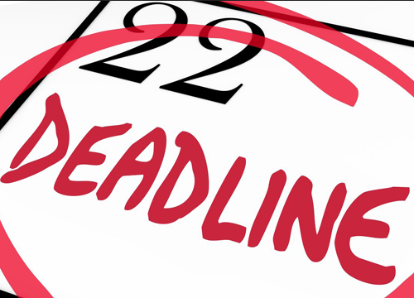
Managing time is essential to any position you are applying for, irrespective of business.
Your ability to manage and control your time influences your level of productivity and shows how well you utilize your work resources.
This time-based question will assist the interviewer in truly assessing how effectively you organize your work and manage your time.
Some tasks require urgent attention, and failure to complete the task before the deadline can affect the organization.
Companies prefer to hire people who can complete multiple tasks at the same time and complete them on time.
How To Answer “Can You Meet Multiple Deadlines” Interview Question
It would be best if you told the hiring manager how important you have the time and your plan to perform tasks accurately without making mistakes.
This answer gives the impression that you are a hard worker and more organized than before.
Instance 1:
Your response can be,
“I am certain that some jobs need immediate attention. Regardless of how onerous the burden of working for the company’s growth is, I will explore the best approach to make an urgent request to It. It may be jeopardized if the work is not done within the specified time frame. I do not hesitate to call my competent colleagues to assist me in completing the task more quickly. I don’t whine about having too many tasks or use it as an excuse for not doing it on time since it makes others believe I’m a slacker.”
Instance 2:
“I value meeting up with my work deadlines; therefore, I employ project planning software to keep abreast of all my projects and their timeframes. With each news task that arises, I attach them to my program list and note the due date, and this aids my prioritizing task that must be finished first on the schedule list. I often divide huge projects into manageable, tinnier, and more achievable tasks, this helps me in finishing them quickly in the minutes or days before the due date, but when it becomes extremely much for me, I request my supervisor to extend the deadline so I can sort it out one after the other. I believe I will be done in time if given the requested tools needed to perform the task”.
52. Can You Work in Different Departments?
The hiring manager wants to know versatile and flexible the applicant is.
Many employees find it hard to switch fast, easily, and comfortably into new departs from a receptionist to a customer care representative.
Sometimes organizations transfer workers to other departments or replace someone’s role.
Versatile workers are an advantage to the organization because they can fit in anywhere with minimum or no training required to become an expert.
To successfully address these questions, you must be able to define your top multi-tasking qualities.
Let the interviewer know that aside from what is written in your resume, you can equally perform better in other fields or departments they move you to, and you know what you’ll bring to the game.
You may have strengths such as a unique group of talents or expertise obtained in a different sector or role.
Describe a specific aspect of your experience, then go through a few key takeaways from that role.
How to Answer the “Can You Work in Other Departments” Interview Question
If you are multiskilled, don’t be afraid to tell the interviewer explicitly that you can adapt to another department.
You can do this by discussing your credentials and abilities, naming the department you can perfectly integrate into, and how useful you will be in certain areas.
First, explain how flexible and multi-tasking you are. Also, give an example of previous work or experience related to the job role you are applying for.
Other examples include when you needed to switch departments or helped take over a co-worker’s tasks because he was laid off or unavoidably absent.
Go ahead to explain how you integrated easily. Then, please talk about the results and the positive remark your supervisor or boss had to say about it.
Conclude by telling the recruiter that you can equally exhibit your versatility and flexibility in the current position you are applying for.
For example, for someone who studied finance and business administration, you can say,
“I can fit well into different departments like the Administration, Finance, and Sales departments because I have MSC in marketing and served as a sales manager in my previous role.”
You can still respond to someone less versatile and unable to cope in other departments, but it is necessary to show your willingness to assist in other departments if needed.
For example, you can say,
“I’m yet to work in other departments as my experience and expertise are limited to my job position, but if the need arises for me to work in another department, I can easily learn about the department and position within a specific period.”
53. How is the Organizational Structure at Your Former Job/How Relevant Was Your Former Role?

An Interviewer always asks this common interview question to know more about the relevancy of your position in your previous work.
Interviewers are more interested in people who are top of the hierarchy because they have the experience and better skills than people at the bottom of the chain.
How to Answer How is the Organisational Structure at your former job/How Relevant was your former role” Interview Question
Explain the organizational structure of the organization you last worked in, your position in the hierarchy, senior and junior colleagues, and your job responsibilities and functions.
Instance 1: your response should be,
“At my last work, I was the director of the sales department. The general manager, also the chief executive officer, has the greatest responsibility in the company; his powers are assigned to three departments: personnel management, accounting, and sales and production. A manager leads each department, and I manage the sales and production departments. I am responsible for the production and sales of all company products, and I have two subgroups reporting to me: sales representatives and labor workers. I layout plans and strategies for sales representatives to follow to increase our sales, and I plan for labor workers so that we can increase production at a lower cost.”
54. How Would you Feel Should We Not Hire You?
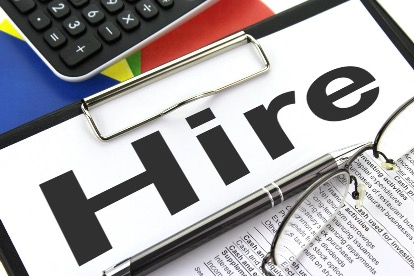
A lot of people don’t do well with rejection. However, this attitude will seep in if the recruiter finally hires you. Hence, they want to know how you deal with rejection.
This common interview question can also be framed more positively as “Why shouldn’t we hire You” No one likes to be rejected, even if they meet the qualifications for the post or job.
While in an interview, companies ask various questions to evaluate whether you’re a good match for the firm or will be effective and productive in the job.
Also, how much you can impact their long- and short-term organizational objectives.
Recruiters may ask this inquiry to discover various facts about you generally. The first one sets you apart from other applicants they may be considering.
What do they stand to gain by employing you over another applicant?
They may also pose this tough question to assess how you deal with challenging circumstances since it can derail applicants.
It might be tough to describe why you are the ideal candidate for a position, and some applicants suddenly start feeling bad.
Some individuals become upset and nasty when they don’t get what they want.
If you start disrespecting the interviewer, you will be instantly dismissed. Therefore you should be professional or at least act like one.
How to Answer “How Will You Feel If We Don’t Employ You” Interview Question
Turn this negative question into a positive one. Don’t brag like you deserve the job even if you are well qualified for it.
You need to give a calm response, and you should sound like you are still encouraged that you will get the job.
This tough interview question enables you to sell yourself and prove you will be a valuable asset to the firm, turning every seemingly negative situation into a positive one.
Responding to it successfully will enhance your prospects of progressing in the recruiting process.
Deviate from the question and focus on selling yourself. Do not just say, “I won’t feel bad.”
Employers truly want to understand your sense of “cultural fit,” which recruiting managers may unknowingly use to exclude and discriminate against prospective applicants who do not behave, think, or look like extent employees.
Alternatively, you can talk about “culture improvement” or your capacity to contribute new and valuable ideas and input to the team; hence, they should hire you.
Culture adds to the company’s strength by broadening its workforce’s experiences and viewpoints.
Instance 1: you can say,
“I would feel sad if I wasn’t employed because I am sure I meet all the requirements. I know that even if I do not look, act or behave like other existing employees, I still believe that I can come up with new ideas or different ways of doing things by being part of the organization. I won’t be discouraged because rejection is normal, and it is part of the challenges all humans have to face. Should I not be what the company wants, I would want to know the reasons I wasn’t hired”
Just use every opportunity in the interview to sell yourself.
Instance 2:
“I surely can establish good communication ties with a variety of clientele, and I should be hired for this role. I am enthusiastic about helping needy individuals in my community, which sustains my motivation and thrill about performing excellently. I realize you require a professional who can constantly be present for occasions in your clients’ lives. I have a perfect attendance record for weekly mentoring sessions and client meetings. Additionally, I have relevant experience, as I have taught over fifteen recruits to become acquainted with daily operations and feel relaxed in the new positions equally.”
55. Let us Know Any Negative News You’ve Heard About This Company.
Every Company has something negative about them, no matter how small.
The negative aspect could filter from former employees or anyone who knows the organization’s employees.
They want to know the latest gossip about the organization.
For instance, People spread rumors on Twitter and gossip that can damage the company’s reputation.
Asking applicants what they have heard about the company is also a way to get the general public’s review and find out where confidential pieces of information leak from.
This is your opportunity to say the positive things you know about the company and what the company is up to.
If you don’t know much about them, the assumption will be that you aren’t interested in the job.
Because, if you were interested, you would know enough about the company to answer this question well.
How to Answer the “Let Us Know Something Negative You’ve Heard About This Company” Interview Question
The employer also wants to determine if you like dwelling on the negative rather than looking at the brighter side.
Because you are not required to say yes to this as a professional, saying yes may imply that you are involved in gossip.
This is quite disrespectful to an employee, and your remarks might be used against you if you reveal confidential information because they will not hesitate to find out where it came from.
Please state that you are unaware of any bad comments about the recruiting company or its competitors.
Please do your research on the company, from their website and newspaper publications.
Check the Company website for information such as “About Us,” “Vision,” “Product lines (or Operations),” “People,” and so on.
Look up the company’s name on Google to see what comes up. Customers? Competition? Raves? Blasts?
Search the Company on social media and their LinkedIn Company Profile and look at other workers of the company profiles with whom you may share the link.
If the organization is a publicly listed firm, it must release annual reports and notice of general meetings.
These documents will have a plethora of information on revenue, locations, managers, important executives, and much more.
Be current with what the company says about global trends, the business world, and politics.
Use snippets of the information you gathered during the research to answer the question.
For example, you can say,
“I don’t engage in unhealthy discussion because it pollutes my mind, so I distance myself away from gossip, and I don’t spread rumors but have heard about how this company support and motivates workers to realize their potential and help all parties in achieving her goals and objective and the latest…”
56. Why is There a Gap in Your Resume?

Know that you are not alone before answering this common interview question.
Many job candidates have a gap in their employment history.
Job seekers who have been out of work for some time, perhaps a year or more, are frequently asked this question, and responding to it can be difficult.
The interviewer will be intrigued about why and what you did during that period you took time off.
A hiatus in employment or gaps in your CV will not necessarily prevent you from progressing in the recruitment process.
Hiring managers, on the other hand, will seek a reason and explanation for this.
Make sure you prepare for this question ahead of time and determine how you will handle this employment gap calmly and constructively.
How to Answer the “Why is There a Gap in Your Resume” Interview Question
Explain to the interviewer why you were out of work and were fired or resigned.
Tell them what happened, like why you resigned or got fired.
Ensure you don’t sound like you’ve been doing nothing during your break. However, try to display the skills you’ve learned and how you’re keeping up to date with recent professional developments.
You need to focus on being honest without giving up too many details. You can basically say:
“I [ what caused your unemployment].” Throughout that period, [what you did you do in the interim] Getting back to work was a major goal, and I’m eager and prepared to do so now.
Instance 1:
“I resigned because I needed to further my studies in business administration to gain more knowledge on how to run a successful business. I’m now a business administration Ph.D. holder, ready to use my newly acquired knowledge and skill. Don’t try to give the impression that you take breaks frequently and you’ll still go on break again when employed, as this shows that your stay with the company is for a short term.”
Instance 2:
DO NOT SAY
“I resigned from my last job because I felt the need to further my education, I have completed my BSc program, and there are still plans to further my studies to MSC and Ph.D. I needed a job to raise more money to attain an MSC degree. This response will disqualify you instantly because it shows you are not truly interested in the organization.”
57. If Hired, What/Where Do You See Yourself in Your First Month With Us?

This common interview question won’t be tough for any quick, proactive, smart applicant.
Hiring managers want to know your expectations and use your knowledge and experience to predict the future.
People who lied about their working experience or did research about the job position or organization would be unable to answer the question.
This is why going for a job interview without adequate preparation or researching the company is a recipe for failure.
The best part is that you can be truthful and, at the same time, tell people whatever they want to hear.
If you have reasonable goals for the role? If you are a goal-oriented person?
Does this particular employment match with what you have in mind?
Consider where this role may reasonably lead you and how that matches with some laid down larger career ambitions for the company.
How to Answer “If Hired, What/Where Do You See Yourself in Your First Month With Us” Interview Question
You must extensively study the organization’s structure, vision, and culture. This can assist you in visualizing where and how you fit in.
Inquire about the employment opportunity, including what it includes and the required talents.
It would be ideal if you could meet someone who has or works in a comparable job so that you can better anticipate the future.
After receiving this information, you can answer with where or what you see yourself doing in the next 30 days; your response must demonstrate excitement for the position.
Instance 1: Your response can be,
“Within the first month of my job as a Procurement and Supply Chain Manager, I would get to know everyone in my department and become acquainted with everyone so that we could relate as a team and work together to achieve great things for this firm. In the first three weeks, I would have analyzed our manufacturing and sales processes and immediately begun setting plans and strategies to boost sales and minimize production costs. Don’t exaggerate, and if you’re not confident in your abilities, be realistic so the hiring manager believes you’re not lying to get the job.”
58. What Actions Do You Take to Solve Problems?
This common interview question is frequently classified as problem-solving and has no definite correct or incorrect format.
Employers appreciate imaginative, solution-oriented, and proactive employees while filling various tasks.
So they’re more interested in the strategy you’d use to solve a problem than you giving any “appropriate” response.
Recruiters attempt to foresee how you would address a future work challenge for the firm based on your previous problem-solving technique or how you respond during the interview session.
Problem-solving questions like this are also used to assess how well you understand a critical industry-specific technology, procedure, or approach.
A smooth sail does not produce a strong sailor.
Those who face and conquer challenges are well-seasoned and mature when confronted with a challenge.
The recruiting manager asks this question to identify how stressed you feel when pushed and whether you remain disorganized or relaxed.
They also try to find solutions to the problem.
How to Answer “What Actions Do You Take to Solve Problems” Interview Question
You are calm anytime you face challenges because you already have a strategy that will help proffer a solution to any issue that may arise during the discharge of your duties.
Use the STAR method and explain in summary your problem-solving approach.
- As this is the initial stop, figure out what’s wrong. You can’t fight something you don’t understand. Therefore I constantly attempt to figure out the problem and how it affects me while performing my work.
- The source of the problem: The next step is to look into the source of the problem and try to figure out what measures were taken that resulted in the problem.
- Conduct research: Now that I know what the problem is and what caused it, the next step is to conduct more research on the issue, such as contacting individuals who have had similar problems and how they addressed it, as well as the side effects of their remedies and other pertinent information.
- Solution: Now that I know everything there is to know about the problem, the next step is to write out possible solutions. The next step is brainstorming potential solutions to the problem and selecting the best one.
- The solution’s outcome: I check to see if the solution helped resolve the problem after applying it.
Example 1:
“I had an experience a few months ago when the Organisation I was working with was preparing to launch a new brand. My group discovered about a week before the launch that a key product component would delay the release. I quickly sought to negotiate with a different supplier, but as I found one, they couldn’t guarantee that they would meet our deadline. Nonetheless, I maintained as much poise as practicable throughout the circumstance, informing managers and our various heads of departments of the problem. Thankfully, the product experts swiftly modified the component, allowing the company to utilize another component we could immediately access. The new part ended up being 30% less than the original component! As a result, we completed our task on time and minimized costs.”
59. Describe how and When You and Your Team Came Together to Overcome a Challenge?

This interview question is asked to gauge how you collaborate with a group to overcome a challenge.
You can’t work in an organization without collaborating with other employees. All departments and workers need to coordinate well so the company can witness growth.
This question is being asked because they want to know how you perform in a team, as most people stay idle and let other team members do the task.
How to Answer “Describe How and When You and Your Team Came Together to Overcome a Challenge”
Don’t just place your focus on your effort and skills to get the task done like the previous question above this.
The question is based on the team members, so you must give everyone credit.
Talk about your role in the team and how you and the other members harnessed individual skills together to do the task.
Your response can be,
“I worked with a variety of teams to complete various projects, and we were always successful; I’d like to discuss how t, “I have worked with multiple teams to complete various projects, and we have always been successful; I have an experience where the firm’s greatest challenge was addressed by myself and my team members.” The company had experienced a huge loss the previous year, so management called everyone together and separated us into three teams (smith, sharp, and Smart). Each team researched prospective new enterprises that the corporation may pursue with limited resources. For example, I was assigned to the Smith team, which had six members. The first step was to conduct an extensive study on this lucrative industry. We initially explored producing airplanes, but the company’s production and investment costs were unacceptably high.”
“Finally, we discussed road transportation, and everyone agreed that more research should be done because it is less expensive and more affordable, and we are financially capable of doing so. Due to our car experience, three of us were assigned to research the best vehicle to use on the roads
“In contrast, due to their bargaining ability, another member was assigned to research the cost and where to obtain it. We did the essential road transportation research and presented it to business management, who were very pleased with our idea. Real estate was Team Sharp’s idea. After channeling all of the company’s resources into the two sectors, the transport department produced 45% more profit than the agriculture department at the end of the fiscal year.”
Summarize your response as much as possible. The example here is to serve as a guide and give you an insight.
60. What Action Will You Take if Your Senior Colleague is Mismanaging the Company’s Resources?

Behavioral questions are meant to get you to discuss a previous event and offer the interviewer a real glimpse of how you handled a difficult issue.
This instance is a disagreement with your employer. Previous performance is the perfect predictor of future success.
By discussing how you managed a previous disagreement, you provide the recruiter with an understanding of how you might manage a future occurrence
You also display your level of maturity, interpersonal skills, and readiness to stand out against those in authority.
Your response to this question will reveal much about your honesty and interpersonal relationship skills.
When a senior staff member, especially your boss, is mismanaging the company’s funds. You actually shouldn’t find it tough to report this kind of event.
You should be very cautious about it because you could lose your job if your employer pulls his strings, and the establishment is bound to crash if the mismanagement continues.
How to Answer “What Action Will You Take if Your Senior Colleague is Mismanaging the Company’s Resources” Interview Question
You surely don’t want to be involved in office politics because it can be difficult and tricky. So, you should be professional and show some empathy in your response.
For example,
“I would first try to meet him or her first and ask why he is mismanaging resources, and I want to see from his point of view why he involves himself in the mismanagement of company funds even though I don’t support his view.”
Then try to point out the likely result of his present actions and those who will be affected.
“Mismanaging the company’s limited resources will cause more damage than he thinks. The company won’t be able to pay its employees again, and if it continues, we might liquidate, and everyone will be laid off. Will he feel happy if he is responsible for the discharge of hundreds of workers? In addition, he can be sent to jail for fraud, which would tarnish his reputation and ruin his career”.
“If, after speaking with him and he does not refrain from mismanaging, I’m gathering enough evidence to prove he is mismanaging the company’s resources and then report to the top management to take the necessary disciplinary process. But, again, I will do this diplomatically.”
61. Tell Me About Your Salary History?

This is a tricky interview question because the corporation wants to know your wage history to determine how much you should be paid.
Most employers pay less than 10% above your salary range. So someone earning $100,000 to $120,000 would not be paid more than $110,000 to $130,000.
As a result, while answering this typical interview question, be careful not to overstate the figures.
When applying for a new job, it is common for firms to enquire about the interviewee’s salary history during the interview.
Employers are interested in knowing the following:
- what is the interviewee’s basic salary is
- if they get compensation,
- the average amount for a bonus, and
- extra remuneration or benefits,
- stock options, such as 200k matching,
- paid time off,
- stock grants, and
- how much they are expected to contribute to medical insurance.
If you expect further compensation, such as an initial sign-on bonus, transfer assistance, or green-card financing as part of your decision to change jobs, notify the company immediately.
The pay history slip examples show how to create a salary history slip.
The concerns that applicants bring to salary conversations are typically the consequence of a fear that they would price themselves too low and hence miss out on a significant increase over their present compensation.
Alternatively, they are terrified of charging too much and having the corporation responds, “We can’t afford you.”
How to Answer “Tell Me About Your Salary History ” Interview Question
You will surely be tempted to lie about it and increase the range to something much higher than the value of your position. No need to lie or give the exact salary amount, just respond smartly.
We advise you to do thorough research. For example, browse different remuneration ranges of the company you applied for and companies like it to learn more about what the market is willing to pay for your talents and experience.
You should do your research to see if you can access any salary data for the firm you’re interviewing.
Another and most crucially, be truthful. Do not make the mistake of making up numbers. Instead, let your current salary representation be precise, such that it can be checked and verified.
If your concern is that your salary is too low compared to the prevalent range, express your concerns.
“I am now earning $XYZ, but I believe it is poor compared to people with similar qualifications and experience. So henceforth, I will seek yearly pay in the $123 range.”
Should you be concerned that your remuneration is excessive, you can inform the recruiter that the job and experience you bring are just as essential to you as what you are being paid.
Your response can be,
“I presently am paid $$$; however, I can adjust my remuneration requirements based on the job role and the possibility for my professional advancement,”
This response shows the company that you will not be “tied in” to a specific salary.
Let your interviewer know if you are not open to answering the question for one reason or another. For Instance, your answer can be,
“I’d love to tell you about my salary history, but I signed contracts in my previous employment not to disclose any sensitive information to third parties; a staff salary is part of the secret list, and only the staff and company should be aware of it.” I’m sorry, but I can’t break the contract agreement since it’s unprofessional and might result in legal action. You may, however, research how much others in my position earn.”
62. How do you Respond When a Tasking Project You Did is Criticized?
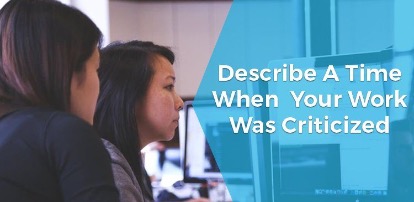
Everyone has faced criticism and rejection at some time, but not everyone can regulate it well. For example, some people feel disorganized when they give their all to work, but no one supports them.
The interviewer wants to know how well you work, how professional you are, and how you react when you are chastised and given a different approach or instruction to complete a task.
Are you conceited when you’re redirected? Or are you humble and willing to learn from others?
Do not dodge the question when asked to recollect when your project was reviewed. Instead, react with an honest evaluation of your project that a boss, supervisor, or management provided.
It is another matter entirely whether the critique is valid, constructive, or unfounded.
The Recruiter wishes to evaluate your ability to deal with criticism. The interview is not the place to voice your frustrations about being wrongfully indicted or being blamed for the mistakes of others.
Do you feel furious or use obscenities toward the person criticizing you?
Or do you own your error and design a strategy to improve your performance to avoid future criticism?
How to Answer “How do You Respond When a Tasking Project You Did is Criticized” Interview Question
You could begin by emphasizing good performance reports and accolades for your skills.
Now, describe how you feel when your work is critiqued. Explain it in such a manner that you perceive it as a training class in which you receive suggestions on how to improve your performance.
Discuss how you handled criticism of your work, what you learned, and how you worked on it.
In your response, let your example be a real one.
Describe an instance in which you received genuine feedback from your employer.
Give pertinent facts and statistics to paint a true depiction of the scenario. Demonstrate that you are coachable. Do not come across as aggressive or that you are still outraged.
Instead, use this chance to demonstrate your willingness to learn and grow.
Try to provide an instance with a favorable conclusion. For example, if your narrative begins with a boss criticizing you, it should conclude positively.
Show how this feedback helped you boost your self-confidence. Demonstrate how you transformed a negative event into a positive learning experience.
For example(sales manager), you can say;
“My boss was always satisfied with my work because I put in so much effort in doing my job faster and accurately, but sometimes when working with my team members, they might see things from another perspective from mine, leading to a difference in our opinion. What I do in this situation is to understand what I am doing wrong and ask for their opinion on how to correct my mistake.”
“In my previous role, there was a decline in sales that year, so I mapped out a solution to solve this problem. So, I decided to increase our advert campaigns by signing celebrities as our brand ambassadors. Other managers criticized the decision because I didn’t consult them before making it, and the organization was not financially buoyant to run these deals. So we came together and worked as a team to find ways to improve sales, and then we provided a solution to the constant drop in sales. I learned my lesson to consult others before making a vital decision as I can share their experience and knowledge.”
63. What are Your Hobbies?

Having hobbies outside of work helps you find your interests and become a more well-rounded person.
Aside from asking you to elaborate on your job history, experience, and education as indicated on your CV, the recruiter may also want to know what hobbies you prefer doing for fun or how you spend your weekends.
Apart from work, we all have something we enjoy doing. When we are free or off duty, we engage in activities that we find interesting, and the interviewer is curious about what we do and how it may affect our employment.
How to Answer the “What Are Your Hobbies” Interview Question
Juxtapose the job description’s requirements with your list of hobbies and interests.
This phase helps you draw obvious parallels between your talents and those the recruiter will likely bring up during the interview.
Always be brief with your hobbies description. For example, don’t get carried away talking about your passion for gardening. Instead, relate your hobbies to the skill required for the job.
Though you have various interests and hobbies besides your work, it is best to focus on those directly related to the new role you are applying for.
Some examples of frequent extracurricular activities to discuss during an interview are:
- Volunteering, charitable or community service, as well as travel,
- Sports such as team or small league competitions,
- cycling,
- Painting,
- Sports or other forms of exercise,
- Hiking,
- Writing,
- Singing,
- Arts, crafts, etc
- Gardening or cooking.
First, identify your relevant hobbies of yours related to the job role.
You could be a work maniac or not, so you can’t say you engage in another job task when free as working doesn’t seem to be a hobby.
Let the interviewer know your outside interest. Do not say your hobby is work. Do not try to impress the interviewer by claiming you wake and sleep on top of work
For example, you can say,
“I have much outside interest apart from working. Also, I like reading books and magazines, dancing, and listening to reggae music. However, my Best hobby is traveling and going on adventures. This influences my decision to be a travel agent or tour guide, so I can assist people in choosing the best travel destination. Here, you have been able to mention hobbies related to your job.”
64. Who Are Your Role Models?

They want to know who inspires you. Everyone has someone they wish to emulate part or all of their lifestyle.
The people we use as role models say a lot about our personality.
Discovering a fellow person who exemplifies who you aspire to be isn’t supposed to be simple. But that is why it is an excellent question.
Be intentional in your choice as you respond to this question. Consider the qualities you desire and the goals you aspire to attain.
Determine whether the stereotyped Superman or woman is your Superman or woman.
The capacity to identify and convey the qualities that are important to you to your interviewer demonstrates a certain amount of maturity. And besides, the interviewer is not without flaws.
You and your role model could share a personal, professional journey and challenges, such as a handicap or a familial circumstance.
Maybe you share a social barrier, such as gender, ethnicity, background, or region. That doesn’t matter
How to Answer the “Have You Got a Role Model” Interview Question
Don’t tell the employer that you inspire yourself so you look like you don’t have any role models, and this might sound odd to the employer.
So, just talk about someone who is a leader or famous for their good deeds. It is advisable to pick someone whose work relates to your line of work.
A recruiter asking about your role model is a different way of inquiring about what characteristics are essential to you or what traits you aim to imbibe.
For example,
“Jayden, my previous supervisor, is my role model. They are my role model because of their outstanding management leadership and advocacy talents. They taught me how to communicate successfully with my workers and top management and recommend changes to upper management to benefit my staff and their work environment. As a result, I’ve been able to maintain an open communication line with my staff, which is based on trust and respect. While there is always more to learn when managing various teams, I believe I can learn and adapt across management teams and roles.”
Example 2:
“Catherine Jonas, a coworker, is my role model. They are my role model because of their bold resolve to attempt new approaches, whether they are successful or not. They can learn from tactics that don’t work the first time and experiment with other ways to make them more beneficial to our business. They taught me how to analyze a project’s progress, receive feedback, and modify projects in my current role as a marketing assistant, which I can use for projects in future positions.”
Example 3:
“Jeff Thomas, a computer software engineer with Oracle, is my role model. They are my role models because of their great work ethic and ongoing desire to learn new things to remain relevant in their field. I base my professional growth strategies on their suggestions to remain relevant in a subject that is always evolving. Therefore, I search for chances relevant to my position, those that assist me in improving soft skills, and those that can help me achieve my professional and personal goals.”
65. Did You Ever Fire a Worker? If Yes, Why?
This tests your sense of judgment and how human you are when people commit mistakes.
Also, if you fire people too often for little error, that abuses office and power. Firing people is not easy, but we have to do it for the greater good and growth of the company.
Every firm must let an employee go, and recruiting executives want to understand how you would handle such a circumstance.
This type of interview question helps applicants demonstrate how they prioritize the company’s requirements over the demands of individual employees.
A recruiter may also ask this question to check if your private sentiments interfere with the organization’s growth.
When asked, “If you have ever dismissed someone, and how you felt about it?” applicants should emphasize how the dismissal was essential for the firm’s well-being.
Nevertheless, you must say this plainly and truthfully if you have never fired someone.
How to Answer “Did you Ever Fire a Worker? If yes, why” Interview Question
If you’ve fired a worker, you can say yes and explain why you fired the worker.
You should only fire a worker for professional misconduct, not due to a personal grievance with you.
Firing someone for matters unrelated to the job would paint a really negative picture of you.
For example,
“Yes, have fired a worker before. In my former managerial role, I hired a young woman to run our sales in another part of the state. She never acted professionally with customers, always getting into conflict with them. I talked to her regarding her behavior and how it can affect the company’s image, but she was not willing to change. I was left with no choice but to decide between letting her go. Although I felt bad about it, and I still do, the organization’s success is more important.”
Another example,
“I have had to let some workers go in the past. Then, a few years ago, the company warehouse caught fire, destroying property worth millions of dollars. These affected the company’s financial strength, and paying all employees’ salaries for a few months would be impossible. So the management held meetings, and It was decided that I should be responsible for discharging workers whose positions were less significant to the company. This was tough, but I had no choice but to do it.”
66. Which Areas Did Your Former Employer Ask You to Improve On?
With this interview question, the interviewer wants to find your weak spot.
Interviewers use different trap questions to make job candidates mistakenly say more about their weaknesses.
It would be best if you were very cautious, and you might talk about weak spots that will likely affect your chance of getting the role.
You can list anything that isn’t directly linked to your job but that you’re curious to educate yourself on.
For instance, if you’re an economist but want to be a Team Member later, you’ll want an opportunity to advance your leadership skills.
You may offer that you would want to lead a conference or program, to begin with, merely to broaden your set of skills in the long run.
How to Answer “Which Areas Did Your Former Employer Ask You to Improve on.” Interview Question
Be mindful of your words so you don’t fall for the wrong answer.
Talk about your skills and mention some areas your boss always wants you to improve.
For example, you can say,
“My last boss always commends me for my effectiveness and expertise, but he wants me to improve on three aspects.”
Executing tasks faster:
“Whenever we are assigned tasks, I’m always the last person to submit because I take lots of time to go through my work to be perfect and improve on areas that need correction. Even though I have never missed a deadline, my boss wants me to complete my job faster. He was always satisfied with my job.
Language:
“I’m fluent in English, Spanish, French, Yoruba, and Mandarin. But when I was transferred to another branch in France, I had a problem communicating with clients who didn’t speak English, so I had to use an interpreter whenever I had a meeting with a client. Although, I had no problem communicating with my coworkers because it is mandatory to be fluent in English before you can be employed
Public speaking:
“I get nervous when asked to give public speeches, so I stammer most times. This was my biggest big weak point as a sales representative. It affected my work a lot. I enrolled in a public speaking class to overcome this challenge and improved greatly.
Another Answer
“Throughout my previous work, I dealt with many consumers over the phone and excelled at it. But, because a few other individuals in my department were in charge of most of the emails related to customer support, I noticed I was a little shaky in this aspect. Nevertheless, email communication is critical in customer care since one or two wrong words might result in the content being misinterpreted. Hence, I’ve been researching and brushing up on a few finest ways to ensure client satisfaction through email communications.”
67. What are you Looking to Achieve in Your Career?

In this common interview question, the interviewer asks for two primary reasons. First, they want to know what drives you to succeed and how confident you are in reaching your full potential.
This entails learning as much as possible about the firm and the career paths available before the job interview.
How you respond will decide how far you progress in the application process. Next, look into what you can learn about other employees at the organization.
Respond sincerely if you want to illustrate why you are a good fit for the organization.
Recruiters can tell when an answer is false, so always respond honestly.
Concentrate on honest comments indicating your capacity to complete the task successfully.
Avoid making money and benefits the primary element of your response. Responding in this manner emphasizes your desires rather than the firm’s.
How to Answer “What Are You Looking to Achieve in Your Career” Interview Question
Tell them how you set your goals, such as short-term and long-term, why, and how you achieve them.
Mention the goals you set, the ones you’ve met, and those you’re still working on.
They may also consider whether you will be a good long-term fit for the company.
If you’re looking for a way to progress within a company, will your ambitions take you somewhere else soon?
For example, if you’re a Medical Doctor applying for a position at a health institution that needs Medical Managers but doesn’t employ many Medical Practitioners, tell the hiring manager that you intend to use the professional development program to return to university for your Medical Manager MBA course won’t go well.
Do their LinkedIn accounts say anything about their professional paths? What exactly are they?
What are your skills and goals? Consider how you fit into the company culture and how your prior experience has prepared you to succeed.
Examine the firm’s narrative on its website and social media profiles, LinkedIn profile, and current news about the organization.
For example,
“Priorities are important to me because they help me keep organized and focus on finishing the job or goal before moving on to the next. I am a goal-oriented person, and I prioritize it. I have set short and long-term objectives. My initial short-term professional aim was to advance my education from master’s certificate holder to doctoral degree holder, which I accomplished. My long-term goal is to go to a management position and help develop the organization so that it can surpass other comparable companies on a worldwide scale. This company has a lot of potentials to do better than it is now; it can expand beyond this continent (Africa) to other continents and compete with other top companies in the industry if properly managed by a capable hand.
68. How Do You Define Success?
Success means getting the desired result from an input. But the hiring manager wants you to define success based on your view.
They want to know your work ethic, your measurement system, and how you plan to achieve it.
Irrespective of the role you’re looking for or the sector in which you operate, you may expect certain standard questions from the prospective employer during a job interview.
An example of such a question is how you define success. Hiring managers frequently like to know how you define individual, team, and company success to assess your eligibility as a recruit for the firm.
Companies and recruiters frequently ask about your measure of success because your response to this question reveals vital information about your objectives, personal life philosophy, and professional aspirations.
How to Answer “How do you Define Success” Interview Question
First, define success according to how you view it, try to explain what you understand about success, and explain how you were successful in a particular role or task.
Consider your professional accomplishments. Consider your previous roles’ achievements.
List and consider what made the accomplishment seem like a success. Aside from your thoughts, note any praise or acknowledgment from coworkers or superiors.
Analyze how you reached your previous accomplishments. After you’ve compiled a list of accomplishments, consider what contributed to your success.
Include milestones, visits, chats, or other signs that you were on the right track.
Discover what the firm believes to be a success. Know how the firm defines success if at all possible. Then, you can use part of that phrasing in your answer.
While explaining success, you don’t have to relate it to business only. Talk about anything so far it correlates with your definition of success.
Check the company’s mission statement and values on their company website to get a sense of what success means to them.
Compose your response ahead of me. Then, create a potential answer using the info you obtained.
Start by clearly defining success, drawing on your prior experiences and the industry’s advice.
Next, give an example of success from either a prior role or from a forecast depending on the position for which you’re applying.
For example,
“I Consider both minor and huge milestones toward a goal to be successful. I see success as a process in which challenges push me to look at things from new angles and create creative solutions to problems. Taking on those difficulties allows me to grow personally while progressing toward company goals. I may leave work feeling accomplished if I have made some progress toward addressing a problem or accomplishing a goal, even if I have not completed all my personal goals for the day.”
Another Response:
“Success, to me, is when you achieve more than you imagined. When you outperform expectations, you are successful. My final year thesis as an agriculture student was to research why birds create soft eggshells and devise a method to fix this problem; I had the necessary resources to complete the assignment. I split my experiment bird into different cages and fed them other foods. I decided to combine broken eggshells with one of their feeds and soon realized that the bird not only has the strongest shell but also the strongest bone and seems healthier than other birds.
“My supervisor praised my efforts and informed the faculty about my study; everyone was impressed, and two feeding manufacturing companies approached me to educate them about my methods; I was also given a job, which I refused due to personal reasons. The objective was for me to finish my project course, but I not only finished it but also introduced new nutrients and was generally welcomed.”
69. Your GPA Seems Low Compared to That of Other Applicants.

Academic qualification matters a lot in some organizations, and they use GPA in determining people who are eligible to be called for screening or interview.
When a candidate has a lower grade than others, you are already at a disadvantage, so the candidate needs to be clever with the response.
With the appropriate viewpoint, you can easily justify a low CGPA
GPAs are simply a measure of the amount of time and effort you invest into education. Unfortunately, many students look further than this and focus on other things like part-time or weekend jobs to make extra money.
For others, it’s sports, associations, and other side projects/business pursuits; for others, it’s clubbing, partying, videogames, or further distracting escapism.
You must be honest with yourself and your response, and also assess how you spent your school days and what you did prioritize
How to Answer “Your CGPA Seems Low to That of Other Applicants” Interview Question
Give a reasonable explanation for why your GPA is low, but be cautious in your response. So you’re not going to make an absurd explanation.
Regardless of how you spin it, most recruiters will be disappointed if you tell them your GPA is low because you spent too much time messing around in class.
From a different perspective, SOME interviewers may be delighted if you spend all of your time fooling around while maintaining a high GPA and having the necessary abilities and experience for the job.
One great and common scenario reason is that your homework does not inspire you.
You will struggle to succeed if you are not enthusiastic or driven about anything.
This is very reasonable. Everyone is unique, but we are all evaluated similarly under the CGPA norm.
As a result, if this is the case, you might want to talk about what you ARE passionate about or what inspires you. You should be able to sell yourself better than the other contenders.
A high GP is not required to get a decent job. However, you must be skilled at what you do.
Example 1
“When I finally got admission into a university due to recurrent health and family issues, I skipped classes and attended night parties, I missed a few first-year exams, so I failed them and decided not to retake them due to stress, and I focused on building my GPA the following year.”
This response shows that you are reckless and will surely be disqualified.
Give a responsible and reasonable reply that will convince the hiring manager to take a keen interest in you.
Example 2,
“I understand if my GPA is the lowest among all candidates, I had to combine my part-time job with my part-time classes when others focused on their education. I focused on catering for myself, my siblings and furthering my education. I was so busy and had a tight schedule and a little reading time. I am proud to graduate with the second-class upper.”
Example 3
“Yes, I believe my GPA accurately predicts my college and grad school performance. I treated my studies very seriously and worked hard to achieve the marks I did. I am pleased with my accomplishments. But, in addition to academic accomplishment, I’d want to highlight my social activities, where I exhibited leadership, time management, and interpersonal skills.”
70. How Do You Motivate Other Workers When You Lack Motivation?

The interviewer asks this behavioral question to assess your internal drive and how much you influence others even when you are not feeling like it.
Sometimes we need a little push to realize our full potential. The interviewer is curious and is interested to see if you are the type of individual that gives other people the little motivation they need to realize their potential.
While working together as a team, someone might be discouraged and feel less like a leader or co-worker.
How do you motivate them, and what action do you take? This is also a test of your team skills.
How to Answer “How do you Motivate Other Workers When you Lack Motivation” Interview Questions
In your response, explain to the interviewer what you say or do to someone you see is depressed or less motivated.
Best Answer,
“If I discover that a coworker or team member suffers from low self-esteem and is less motivated to work, I will call the worker aside and discuss with them. I will ask for the cause of the problem to identify the issue at hand, and the next step is to advise and support the worker in believing in themselves. I recall seeing in my previous job that our sub-editor seemed hesitant to work.
“So I approached him to inquire what was going on and how I could assist, and he stated no one ever praised him for his hard work. I informed him that he is an essential part of the firm and that we all appreciate his hard work and accomplishments. Because he craves attention, I constantly compliment him whenever he works. I was nominated for the most diligent worker at our annual dinner and award night, which I ultimately lost to the sub-editor.”
In answering this question, the Individual approach is the key.
71. What is The Toughest Decision You Ever Took?

This is another common interview question meant to expose your weakness as a worker or manager.
This is the point where you are forced to make a decision, and the hiring manager wants to know which decisions gave you a tough time and why?
Your prior actions in tough situations might reveal your principles and ethics.
Recruiters prefer applicants that follow their industry’s transparency and ethical conduct requirements.
This question can reveal how an applicant follows business rules and answers ethical quandaries, demonstrating their dependability and willingness to help their team.
Employers may wish to assess your decisiveness, confidence in your decisions, and capacity to justify your conduct.
How you explain a difficult choice in the past may reveal the mindset and approach you’d bring to their firm.
How to Answer the ‘What is the Toughest Decision You Ever Took” Interview Question
Think of a tough decision, and when you were left with no choice but to take one, the outcome.
Pick a good previous choice that is relevant to your previous work experiences.
Addressing decisions related to your chosen profession demonstrates how you would perform in a comparable capacity to the employer.
Where you don’t have professional experience, consider actions you’ve taken in your life or school that may suggest the desired attitude for recruiters in your sector.
Discuss what variables influenced your choices and how you weighed the benefits and drawbacks of each option.
Discuss your mental process when attempting to utilize the best option. Explain how your decision affected both you and the company.
This demonstrates that you accept responsibility for your decisions’ results and are accountable.
Example 1:
“I don’t make difficult judgments until I have all of my facts straight; I first consider how it will affect the individuals involved and possible methods to make it easier.
For example, in my previous job as a manager, I received a complaint from a customer about the rudeness of one of our employees; I apologized on behalf of the employee and called him to my office so I could tell him about his mistakes; a few days later, another customer reported him again, and I called him and gave him one last warning because I hate to fire workers, and I thought he would listen. So I had no choice except to fire him, which was difficult.”
Another example:
“Changing my career path was the most difficult decision ever. I always wanted to be a pilot when I was a youngster because I admired pilots so much. I discussed my ambition with my uncle, who advised me to be clever and hardworking and to focus on my academics to satisfy the academic requirements for admission to aviation school.
So, I braced myself and established my goals: passing my O’levels and A’Levels. I studied harder, passed my exam, and was immediately admitted to aviation school. Unfortunately, my parents were not financially sufficient; therefore, they could not raise my school fees, which were #20 million; I attempted to aid them with my contributions.
I could work part-time as a receptionist at a hotel, but my efforts and theirs were insufficient to earn the necessary funds. Thus, my admittance was withdrawn. It was extremely hard because I was forced to change careers to further my education and get a suitable job. After careful consideration, I decided to switch to aeronautical engineering because it is comparable to my ideal job.”
72. Do YouHave any Question(s) for Me/Us?
This question is underrated, and everyone ignores it when asked because they seem uncomfortable with it and try to avoid it.
This question, with a positive reply, can boost your chance of getting the role you might give a good impression of yourself to the interviewer.
When you ask a question, it shows that you are interested in the positions you are applying for and you are confident.
How to Answer “Do you Have Any Question(s) for Me/us” Interview Question
Asking questions is very important after the end of an interview, and this shows you actively participated rather than just sitting around.
An intelligent mind asks questions. It is also an avenue to get clarified on issues about your job and the interview.
Ask of interesting and catchy, but it must be related to the role you are applying for.
Examples of questions you should ask are:
1. What are the skills a candidate must possess for me to get this job?
2. Is there any concern about my qualification?
3. How is the work schedule?
4. Will there be any training?
5. Which team will I work with, or do I have to work alone?
6. What are the steps to take during the recruitment process?
7. I would like you to describe the company’s culture.
You should avoid asking the interviewer some questions as they can give the wrong impression about you.
Examples of questions to avoid are personal, salary, rhetorical, non-work-related, etc.
73. Sell Me This Pen

This question is mostly asked by applicants applying for a sales or marketing position.
Your recruiter may put you on the spot by asking you to sell them a pen, a writing pad, a plastic bottle, or anything else.
Why a responding, maintain your calm and poise, and remain witty and charming.
Use your body language to your advantage by sitting up straight, making eye contact, and showing the interviewer you can manage this situation.
This question will not be an issue if you are a passionate salesman.
That is why you have to adequately prepare for this common interview question so that your body language while answering it won’t give off a different vibe, even if you have what to say.
How to Answer the “Sell me this Pen” Interview Question
Listen carefully, let your answer show that you understand your customer’s wants, and be precise about the item’s characteristics and advantages.
Remember to finish strong like you would if you were completing a sale.
Remember that your recruiter is asking this question to assess how effectively you perform when under duress or taken by surprise.
The nonverbal indicators will help you appear composed and self-assured, irrespective of the substance of your sales speech.
Although you don’t have a beautifully crafted sales pitch ready at the drop of a hat, try to project confidence as you respond to this question.
The easiest way to get started is to pose questions first. The urge is tremendous to get into a lengthy sales speech immediately away.
However, remember that successful salesperson spends more time educating themselves about their prospective customer’s objectives, ambitions, and difficulties.
This is so they can tailor the sales pitch to the customers’ needs.
Furthermore, while connecting your sales pitch to specific customers’ demands, emphasize your selling item’s characteristics, utilities, or benefits.
This is very important because the pen has to come with value for its utility.
For instance, does your pen come with a particularly smoother flow of ink? Will this help your customer in better writing? Maybe it will help your customer write quicker or more easily, emphasize this.
What color is the ink? Red ink shines out more on the paper. When you’re finished with the sales pitch, don’t say anything flimsy like, “So yes, that’s how I’d pitch that….”
Instead, recap your major arguments and demonstrate that you can conclude your points to the recruiter.
We also advise you to go and watch the movie “Wolf of Wall Street” to understand how Leonardo Di Caprio answered the question, “Sell me this Pen.”
It is highly recommended as you will learn much about this type of interview question.
74. We Want to know if You Have Got Any Medical Conditions?
Medical status is one of the most important criteria for some positions, especially for jobs that require physical energy.
Hiring companies ask this question as they want to know if you are medically fit for the role you applied for.
Several medical conditions can be grouped into mild and serious health conditions. If you have any medical conditions, tell the interviewer what steps you have taken to treat them.
Some mild conditions are less likely to affect your job.
Hence, there is no need to talk about it, but if you have any serious condition like cancer, mental illness, etc. Don’t hesitate to let the interviewer know.
How to Answer “We Want to Know if You Have Got any Medical Conditions” Interview Questions
If you have any mild medical conditions that can affect your job? If yes, talk about it but don’t give too much information about the illness.
Don’t be dishonest in your response, and don’t exaggerate so you won’t give the hiring manager much reason to worry about your health.
Best Answer:
“I don’t have any serious medical condition, but I did have asthma when I was younger. I have never disclosed my health during interviews because I don’t go for jobs that will affect me in that sense, and the illness doesn’t affect my performance, and I’m always taking precautions when doing a task that might trigger the attack.”
Another Answer:
“I have this night blindness as I find it difficult to see well in dark areas, especially at night. However, this condition doesn’t affect my performance because my type of job can only be done during the day, and I have no problem seeing in daylight”.
75. Do you Intend to Have a Startup or Business of Your Own?
Many salary earners aspire to be entrepreneurs if given the chance, and some already have their businesses on the side.
Most job offer conditions come with Non-compete clauses.
This means that employees are not to engage in businesses that will clash with their work or their employee’s interest.
A lot of employees may have startups and also working. The reason could be that the profit from the business is probably not something to boast of; hence they had to get another job to finance the business.
They could have failed in their last business venture, hence, the need to start afresh.
However, they can’t start instantly due to their financial capability or lack of experience; therefore, they need to get a job to make more money and gain more knowledge.
The interviewer wants to know when or if you plan on leaving them to start your business or if you have plans to retire as soon as they have their startup.
This interview question is to test your loyalty and longevity on the job. No employer wants an employee with divided attention.
How to Answer “Do You Intend to Have a Startup or Business of Your Own” Interview Question
The question is tricky because if you say “No,” the hiring manager might think you have a donkey mindset and no big dreams.
If you say Yes, you may raise concern for the organization because you’ll be leaving soon, and confidential information might be at risk.
You need to be very clever about it but be honest, don’t put your plans in detail.
For example, if your reply is No, you can say,
“I Have thought about having my own business, and I did, but it didn’t go as planned, so I realized I only perform better in a large group or team. If yes, you can say, Yes, I have plans to start my own business. I plan on selling Volkswagen automobiles when I retire from active salaried work.”
76. Opinion Question: What Do You Think About Abortion?

This is simply an opinion question; many unsuspecting applicants have been a victim of this question and lost their chance of landing the job.
Opinion questions are hard to answer because your perspective can differ from the interviewer’s, and you will likely reduce your chances of getting the job.
How to Answer “What Do You Think About Abortion” Interview Question
There are no other options for answering this question other than to ask another one.
Replying to it may lead to more questions, which may place you in a hot seat you do not want.
However, if you’re astute enough to direct the question back to the hiring manager, you’ll have the opportunity to learn about their perspective on the subject.
Also, you’ll have suggestions for how to reply that align with the interviewers.
For example, you may state,
“There are many ways we regard abortion; in some nations and religions, abortion is a crime, but in others, there is nothing wrong with abortion.”
In the US, From 1973 to 2022, Supreme Court decisions in Roe v. Wade (1973) and Planned Parenthood v. Casey (1992) created and maintained federal protections for a pregnant woman’s right to an abortion, ensuring that states could not prohibit abortion before a fetus is deemed viable. However, Dobbs v. Jackson Women’s Health Organization (2022) invalidated Roe and Casey, and states may now impose any abortion limitation that satisfies rational basis review and does not otherwise contradict federal law. Would you think of keeping a pregnancy you are not mentally and financially capable of taking care of?
77. How Well Do You Allow Others to Give Their Opinion on Subject Matters?

One of the most crucial talents that employers seek is great communication abilities.
It is required for successful teamwork, leading to improved project cooperation. It applies to almost every business.
Employee engagement is essential for improving internal communication. Keeping efficient communication open ensures the company and the people underneath them are on the same wavelength.
This implies that employees feel confident in the job at hand, and supervisors are assured that team members are carrying it out appropriately.
But remember that effective communication skills and strategies in the workplace, personal and business communication, are not the same.
However, all of them are essential to an organization’s future growth.
This is important for applicants going for managerial or sales positions.
Are you the type of boss that give orders? Or are you the type that listens and considers other people’s opinions and views?
Leading a team is not an easy task because of its many responsibilities.
It is your sole responsibility to ensure the team’s success; if your team fails, you take full responsibility.
So, you need to coordinate with each of your team members to perform better.
How to Answer “How Well Do You Allow Others to Give Their Opinion on Subject Matters” Interview Question
You should have strong listening skills because you are looking for a management position, which is also a leadership one.
Your response should demonstrate that you listen to and learn from other people’s perspectives without condemning them.
Give an example of when you listened to the opinions of others.
For example, you may say,
“I enjoy hearing other people’s perspectives on a topic; not only do I comprehend the scenario, but I also get more information when others speak.” For example, as the general manager in my previous firm, I decided on business plans for each department to work on. Despite employing a new business strategy, there was no significant difference or improvement in the company, which concerned me.
I then devised a new plan, gathering all sub-managers and field specialists to discuss building the firm. I asked everyone to suggest tactics we might employ to maximize our profit. Everyone provided fantastic recommendations that were even better than I had thought of. We meticulously evaluated all recommendations from all angles before settling on one method that succeeded.
Since then, I have sought the advice of others before making important decisions.”
Another example:
“I used to be an egocentric worker because I was always looking for ways to be recognized and rewarded for finishing a task. I always meet with my employer to give me a large task that will draw more attention, and because he is always pleased with my work, he always assigns me the duty. Unfortunately, I made a mistake while working on our most important project, so we missed out on some lucrative transactions.
My employer came to see me when I was emotionally down, and he pointed out my error, which was my selfishness since I didn’t ask for anyone’s aid; he told me that asking for help was a sign of weakness. That doesn’t make me a terrible worker, but I can utilize that chance to learn from them, and I’ve started asking for other people’s opinions and collaborating on tasks. I’ve altered my thinking and improved significantly since I began seeking information from others.
78. Rate Your Public Speaking Skills on a Scale of 1 to 10.

This is another interview question set to test you. The question sounds easy because you are being asked to judge yourself, and I am sure you don’t want to give a poor impression of yourself.
The interviewer is interested in how you rate your communication skills. So, first, rate your communication skills on a scale of 1 to 10.
Try not to give yourself a 10, and remember that no one is perfect, and you don’t want to come out as arrogant or lacking in openness to feedback and growth.
Alternatively, avoid underestimating yourself. You don’t want to give the impression that you’re a communication failure!
Try to stay between 7.5 and 9.5 while remaining honest and accurate. To support your response, provide an example of your exceptional communication skills.
How to Answer “Rate your public speaking on a scale of 1 to 10” Interview Question
The hiring manager wants to know how effective your skills are and how confident you can be with them.
The recruiter is interested in how you evaluate your communication abilities. Rate your public speaking/communication abilities on a scale of 1 to 10.
Do not give yourself a 10, and remember that everyone is not faultless, and you don’t want to come out as arrogant or lacking in openness to feedback and development.
Also, don’t lie or brag about it; you can miss your chance.
Alternatively, do not underestimate yourself. You don’t want to give the impression that you’re a communication failure!
Let your rating stay between 7.5 and 9.5 while remaining fair and straightforward. To support your response, provide an instance of your great communication skills.
For example, you can say,
“I rate my skills 7 out of 10 because sometimes I get nervous when asked to give a public speech, especially when the audience is many. However, my skill is the only thing affecting my work and has enrolled in a mastery class to improve myself.
Another example:
I rate my skill 10 out of 10. My skills are good and effective; I am very fluent in all required languages, and my skills are exceptional. My colleagues always find it easy when communicating with them, and my former boss always assigns me 19the task of taking a speech anytime we have a public event.”
79. Have You Ever dealt With a Difficult Client? How?

Dealing with an angry or difficult client can be stressful, especially when the fault is not from you or the company.
So the interviewer is interested in how the applicant’s problem-solving skills, fast decision-making abilities, and professionalism are when in this type of tense situation.
Clients become irritated and unpleasant for several reasons.
Though some of these factors are valid, others are not. For example, a prospective recruiter wishes to be certified that you can settle a difficult issue with a client to all parties satisfaction.
Hiring managers ask these questions to assess the applicant’s problem-solving abilities, rapid decision-making techniques, and capacity to remain calm under pressure.
Recruiters are also seeking employees who are excited about the job despite its obstacles.
How to Answer “Have you Ever Dealt with a Difficult Client? How?” Interview Question
This is to test your professionalism; you must show patience and be a good problem solver.
Give examples of when you had an altercation with an angry or dissatisfied client and how you handled it.
First of all, listen to the client and ask follow-up questions.
Repeat and summarize all that you have heard from the customer and ask them to affirm or negate your understanding of what you have heard.
Let the customer know you understand why they are upset. Give them a direct and simple apology. Ask the customer what he desires to be the course of his solution.
How he wants the issue to be resolved. Maintain your calm, composure, and compassion. Remember to speak in a soft tone.
Or you can say,
“I understand how hard it is to deal with an angry Client, especially the nagging and violent types. But it doesn’t matter how rude and violent they might be. I try to remain calm and respectful because an angry customer indicates an error in my service, and I make sure to give the best service.
So, I try to calm them down and then ask about the difficulty the customer is experiencing. After understanding the client’s problem, the next thing is to explain to the client what happened and what led to the problem. Then I take the best action to solve the matter and apologize for the inconvenience caused while performing my duties.”
80. What Triggers You And How Do You Stay Calm?
This is a behavioral question. The interviewer wants to know your reaction to a typical situation that riles you up.
A job seeker Is expected to be cool and always calm while working with a client and co-worker calmly and respectfully.
But In some situations, we have reached the limit of our tolerance and tend to lose our cool and vent anger at what made us angry.
Interviewers understand it is normal to get angry, but no one wants to employ someone who reacts violently when annoyed or someone who gets angry too often.
How to Answer “What Triggers You and How do you Stay Calm?” Interview Question
This is your opportunity to list your soft skills. Again, this tells the interviewer more about your personality.
Your personality or traits might not fit the organization’s structure or job position. For example, some position or organization requires an employee who is a tough disciplinarian.
A candidate with this mentality tends to be” a no-mistake man” who gets angry at any mistake or poor performance.
People with this mentality are majorly given a leadership positions in the company.
If you as a person have this mentality and you are applying in the organization, your response can be,
“I don’t get angry randomly, but I get irritated when I see myself around negative and lazy people, especially those who are using their negativity to affect others who are positive.”
For organizations that culture is flexible, someone who wants the position must be cool-headed and slow to anger.
If you possess this quality, your response can be,
“I’m cool and positive and have no problem relating with anyone. I know it’s normal to get angry sometimes, but I always try to avoid a situation like this by listening to what someone expects from me and telling them my expectations. When you already know other people’s do’s and don’ts, you can relate well with them”.
If the trigger was your fault, don’t bring it up. Don’t bring up a situation when you put yourself in an unnecessary triggering circumstance.
Don’t show that you are the cause of the unnerving situation.
Do not show the interviewer that too much stress riled you up and heated the situation. It would be best if you didn’t dwell on how freaked out you were.
Acknowledge the presence of anger but focus on how you coped with it rather than how much it upset you.
Employ relaxing methods. If you feel worried shortly before the interview, take a few deep breaths to calm yourself.
You can take a breather or a glass of anything that calms you before your response. This will allow you some time to get yourself composed before your answer.
81. Are you Willing to Work During the Weekend and at Night?

Questions like this are common with recruiters. In this situation, stay calm and promptly reply to the interviewer.
Certain conditions could make you work overtime, not excluding weekends.
First things first, the applicant should be clear about the interviewer’s expectations or demands.
In some cases, if/when asked to work overtime, let it be about what you can offer in that particular role and see if you can work on their demands.
You must discuss the factors during the interview that it is for you to commit to a job unsuitable for you.
Be confident about it. Don’t sound confused in your response. Make it simple; if you cannot, tell the interviewer and give solid reasons for this.
It would be best if you showed flexibility in your answers.
How to Answer “Are You Willing to Work During the Weekend and Night” Interview Question
While saying you can work extra hours, ensure that you expect this overnight work to come with an additional benefit or pay.
“If such a situation happens. Yes, I am willing to work extra hours. My hunt for a long-term job opportunity has been ongoing for some time, and I believe this is ideal for me. As you can see from my resume, I have experienced continuous and solid development and transparency. And I’d be delighted to replicate the same pattern of accomplishments and stay with your firm. I’m thinking about how, as a global business, you have a lot of leadership possibilities that come up from time to time. I would be overjoyed if I could work my way up to a leadership position here.”
Another example:
“Yes, I am happy to work overtime, provided I am getting paid and getting the resources needed to work without any hindrance. And if it won’t affect my health or my social life.”
82. What Is/are Your Biggest Fear?

This is a behavioral question because you are discussing a part of your life that many people see as personal and wouldn’t want to discuss.
These questions summarize everything going on in your everyday life. It is your light, not the darkness that most frighten you.
When faced with this question, you must be honest and truthful. Be known for who you are, not what you are.
Don’t paint yourself negatively, and be honest about your answers.
Every single person has workplace anxiety and fears. Unfortunately, they want to know how you control your fears rather than what it is.
This is your opportunity to turn your weakness into strength. In rare cases, if you think of saying that you don’t have any fears.
It might make you believe the hiring organization will give you the role.
How to Answer “What Is/are your Biggest Fear” Interview Question
In your response, give an example of a moment when you overcame job anxiety.
It can be a deadline you are struggling to meet and need creativity to meet the deadline, such as enlisting the assistance of your team members and pulling a few all-nighters to complete the deliverables.
While confronting your anxieties is good, your interviewer wants to hear your steps to overcome them.
Recruiters want to see that you are proactive in dealing with your anxieties and possess hands-on strategies to manage or conquer them, even in the workplace.
This also displays confidence and attentiveness. Everyone experiences fear.
Example 1.
“My greatest worry was that I would always be incorrect. When I was elevated to the manager position in my previous job, I found it difficult to make some judgments. I was concerned I would make blunders that jeopardized the company’s operations. Once I was at ease, I learned to trust my judgment. This gave me the confidence I needed to manage a successful firm.”
Applicants frequently freeze up or believe they must be harsh on themselves to react when asked this question.
This is intended to demonstrate that you know your flaws and are working hard to conquer them.
As a result, make an effort to talk confidently when answering this question and throughout the interview session.
This demonstrates that you are at ease in your skin and you are ready to take action to conquer your workplace anxieties and fears.
Another example:
“My greatest fear was speaking in public. It was difficult for me to talk to a crowd or gathering. In addition, I begin to feel anxious when I am around people. So, earlier last year, I began taking public speaking courses, which taught me how to handle my fears and practice them with others.”
83. Describe Yourself in Five Words.

The interviewer wants you to describe yourself in a few words. Talk about yourself and your qualities and align them with the skills you believe are needed to succeed in a particular role.
The key is to explain your specific experiences and attributes that make the hiring manager think you fit the role you are applying for.
Demonstrate how you can use your attributes to drive success with quantifiable results.
Describe your traits and strengths to the hiring manager. Be confident and straightforward.
How to Answer “Describe Yourself in Five Words” Interview Question
Let your response be passionate while you’re giving it.
Because passion evokes ideas of dedication and loyalty, businesses are drawn to hiring people who exhibit a passion for their work.
When you are enthusiastic about your work, it is clear that you are naturally committed to quality and outstanding outcomes. Demonstrate your organization and attention to detail.
Tell the interviewer that you enjoy interacting with people. For example, some job seekers naturally tend to mingle with others, chat a lot, and are good at putting people at ease.
For those in customer service and sales, this quality is highly helpful.
The ability to manage people can be studied in a course. However, some people are naturally inclined to take the lead in any social setting they are presented with.
For leadership and non-leadership positions, recruiters usually look for natural leaders because they set the bar high, set an excellent example, and boost team morale.
During the interview, demonstrate your focus on results.
An applicant who is focused on results considers the end goal and is aware of the resources needed to get there.
Employers know that when they hire, a worker focused on performance, that individual will stop at nothing to get the job done.
Success over the long term is a need in almost every industry or career.
They do not always come naturally to everyone, though. Successful employees are those who can effectively communicate.
Display your capacity for organization. A detail is a well-organized recruit. It implies that the business can count on to meet deadlines.
Project management, administrative work, and other fields demanding procedure and adherence to standards all require strong organizational skills.
Do not simply answer in this way below unless you’re prepared to sum it all up in a single sentence.
- I am very passionate about my work because I can do it and love what I do.
- I am ambitious and internally driven.
- I am organized
- I love meeting new people, learning about their cultures, being self-oriented, and being an excellent communicator.
- I am diligent and creative.
- I am an extrovert and ethical about my work.
- I am self-motivated I am loyal, and reliable to the core. –
- I am conscious of my surroundings and abide by rules and regulations.
Best Answer
“I’m a born leader. As I enjoy assisting others, I’ve been promoted to leadership positions in nearly every job. Though I am not occupying a leadership role, co-workers typically approach me with questions, complaints, or concerns because if I don’t have the solution, I’ll at least put them in the right way. After a few months with the firm, I was elevated to a leadership position in the last two positions I was promoted to before I left.”
84. How Do You Convince Others About Your Ideas?
Hiring managers can rephrase this common interview question: “Tell me about a time you influenced someone.”
In this case, the interviewer is inquiring about your persuasion skills, like the ability to make reasonable arguments and negotiate with others, communication skills, and corporate credibility.
Suppose you understand how to tailor your response about your impact or influence on someone. In that case, it will help you exhibit your abilities and indicate to recruiters that you’re a competent candidate for the job.
The hiring company wants to drill you down to ask about the specific times you have influenced others, including the circumstances leading to the situation, what you did and the outcome.
When answering this question, reflect on the times you have influenced others to accept the idea that this is the right decision for them to take. Don’t make it opinion-based; rather, base it on facts.
How to Answer “How Do You Convince Others About Your Ideas” Interview Question
Examples of persuasive abilities to use are:
- Recognizing the needs and feelings of others
- Modeling the characteristics you want others to copy.
- Creating an argument using critical thinking or logical reasoning
- Communicating your views clearly
- Choosing the appropriate mode of communication for the right circumstance or person
- Negotiation strategies
- Creating meaningful connections
- Identifying similarities and differences with each person or group
- Listening actively
- Demonstrating that you are an expert or a reliable source on a specific topic
- Being composed and calmly assertive
- highlighting the good elements of a decision or circumstance
When you describe a time you influenced an individual, it demonstrates that you fully comprehend ways of identifying and meeting the needs of other people around you or solving unique problems.
It also indicates that the interviewee understands what influence and impact entail.
Influencing someone frequently involves selecting the right conversation mode for a specific person’s interests or a particular scenario.
If you find it hard to remember an instance, the following examples can help you:
- Persuading a co-worker to accept your point of view
- Changing the behaviors or habits of a person or a group
- Making a persuasive argument that has a direct impact on someone
- Negotiating an increase in your wage, job requirements, or other working condition
- Assisting people in accepting a change in circumstance or policy
- Managing a Group
- Obtaining project approval
- Bringing a difficult sale to a successful conclusion
- Mediating or settling a dispute
- Helping others in setting, working toward, or attaining their objectives
- Establishing an agreement or making a compromise
Sample Answer
“When I was the manager of my previous firm, the company had continued to operate with a certain client for many years owing to inactivity. So, rather than alternative possibilities, renewing was simple. However, my boss was adamant about not exploring other options.
Before presenting the alternative, Before offering the alternative, I discussed and assessed the other top providers in the specific field. It would still be his final decision to work with in the long run. After much deliberation, we considered four providers, including the incumbent. As a result, our firm chose a new provider with higher characteristics and functionality at a cost of more than $300,000 each year.”
85. Are you a Leader or a Follower?
As an Interviewee with leadership qualities, there are do’s and don’ts to consider when answering the question, “Are you a leader or a follower?”
DOs
- Talk about the times you have followed instructions successfully.
- Talk about when you assumed responsibilities and took charge.
- Let them know you understand the context in which one should be a leader or a follower.
- Highlight the things that would benefit both a leader and a follower.
- Mention past experiences.
- Be confident so that the interviewer will know you possess the capabilities to assume both roles and you can change based on the position’s needs.
Don’ts
- Don’t say you are just a leader; discuss your leadership traits.
- Don’t say you are just a follower, and talk about just your followership
- traits.
- Don’t try to dodge the question in a way that you try to act submissive and dominant.
How to Answer the “Are You a Leader or a Follower” Interview Question
Sample Answer
“I am an excellent leader as well as a good follower.” I lead when I’m supposed to lead and follow when I’m supposed to follow. I pay attention to my superiors and follow precise directions. I demonstrate my abilities as both a leader and a follower. I constantly strive to give my all to please both my leader and my followers and be competent in my obligations to individuals and organizations. I always present myself in my finest light. It makes no difference whether I am a leader or a follower. Everyone around me is pleased with my job. And I have the appropriate mindset and temperament to be a leader. As a leader, I do not consider myself the king of people or organizations; I regard them as colleagues, bosses, and apprentices.
86. Tell Us About the Time You Have Ever Thought Outside of the Box?

Testing your knowledge, creativity, and ability to stand independently and do something amid bureaucracy is challenging.
Your answer does not need to be a tremendous breakthrough or an invention in your former work.
The hiring manager wants to know if you can think on your feet and solve issues.
In this situation, Give the best version of yourself (pitch yourself to the interviewer) and show them that you are innovative enough to think about a solution to a rising problem.
Pick an event when you were very pleased with an outcome. Or you could think of when you wowed your employer when you prevented an adverse problem from occurring.
It can be an unexpected turn of events on a project or something personal.
How to Answer the “Tell Us About the Time You Have Ever Thought Outside of the Box” Interview
Consider your best accomplishments. Typically, conquering a working obstacle yields a fantastic reward.
After you’ve listed all of your accomplishments, select the instance that is most relevant to the position you’re looking for. Make certain that you give a positive example.
Do not start your answer with you doing something drastically wrong, even if you show that you eventually fixed it.
The interviewer may see you in a negative light since you should not have made such a thoughtless error in the first place.
Using the STAR method, showcase your talents and abilities in your response.
Make sure you practice beforehand and that your response sounds natural and not scripted.
Example 1:
“We observed a drop in consumer rate at my previous job owing to a local economic downturn. So, for the first time in many years, I recommended that we start generating business outside our immediate area to my employer. He agreed, and the notion changed everything for us. Today, we can proudly say that we are one of the leading companies in the country. And, before my departure, we were considering going worldwide.”
This relates to the question above.
The interviewer will ask why you had to leave your former employer when the company has plans to go global and become one of the leading companies in the world.
You shouldn’t be surprised at this question when it is being asked, and give an honest and straightforward answer, as this will make the hiring manager know if you should be given the role.
Another example:
“I left the company for certain reasons in which I wasn’t really satisfied with how things were being done in the organization.
I deserve to be where I am rewarded for my efforts and contribution to the organization. I asked for a raise, but my employer felt otherwise, whereas there was a huge turnaround for us, and we were raking in profits more than ever. So I needed to be where my skills are needed and where I am appreciated.”
87. If you Discover That the Company is Into an Illegitimate Business, What Would Be Your Reaction?

This is an unusual interview question meant to put you on the spot with the interviewer. Answering this type of question can be tricky.
You don’t want to rope yourself in or jeopardize your chances. But, simultaneously, you want to clarify your stance and show your integrity and ethics.
It is illegal to ask interviewees this question, but some recruiting managers do not care.
However, It can be out of ignorance or willful disregard for the law. Therefore, an interviewer should ask questions about the applicant’s work skills.
But in any scenario where you are faced with this kind of question. You need to be diplomatic and, at the same time, truthful to the hiring manager.
How to Answer “If You Discover That the Company is into an Illegitimate Business, What Would be Your Reaction”
If you notice the illegal business, relate this to your direct supervisor.
If he does nothing about it, report to the above him until you have exhausted the chain of command in the office.
Whatever you do, document your findings by preserving copies of mail correspondences and taking notes during such activities.
Don’t be too hard on yourself if you are at crossroads. If you’ve done your best, you’ve quit the work and found a better job.
Sample Answer:
“It will upset me to discover that the organization I am employed in is engaging in criminal behavior. But I will first ask myself how I should proceed. I can alternatively tell my employer that I am quitting. However, in other cases, my conscience or financial position may force me to stay and try to resolve the issue before just quitting. If I can’t solve the issue, I will leave.”
Sample Answer 2:
“In a business establishment, employees have a vital role to play in maintaining certain work ethics. Whenever I suspect fraud, I must report it to the authorities. As an employee, I should always justify the high standards in my workplace. That is the only way client(s) will trust and respect what we do as an establishment.”
88. How Adaptable Are You to Change?
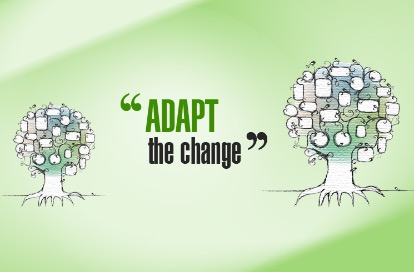
This question can be phrased as “How do you adjust to change?”
Ruminate on this question and think of your reaction to it in advance. It will assist you in preparing for your interview and make your response confident.
Recruiters want to note down your manner of adjusting to rapid and frequent changes in the office.
Because certain sectors are fast-paced, change can benefit both the company and workers.
This is to develop teams that can handle this while being adaptable when presented with specific difficulties.
How to Answer “How Adaptable are you to Change” Interview Question
Use the STAR technique to assist you in answering correctly. This implies you’ll need to
- describe a circumstance,
- what you will do in that instance,
- a description of the action you performed, and
- the outcomes of that act.
Consider a scenario in which you have to exhibit the abilities the recruiter is searching for.
Ensure your example is a single incident that succinctly relates your past experiences to the skills needed for the job.
Do not be in a rush. Instead, take a few moments to consider the best way to communicate your response.
Utilizing a few minutes to pause and collect your thoughts will most likely not upset your interviewer.
Also, you will offer him a better answer because of this rather than rushing your response and jeopardizing your chances.
Include every detail that illustrates your capacity to adjust and be positive about change rather than hiding and crying in the bathroom.
Relate precise facts to the successful results you accomplished and how they reflect on you as an individual and an employee of the company.
Explain how you believe the abilities you exhibited in this narrative will assist you in achieving the position you seek.
Best Answer:
“Because of the quick speed of the hospitality industry, it is critical for a server in a restaurant to adapt to change continually.” I notice that I adjust quickly to changes—for example, I was working a busy evening shift when a huge group came suddenly. Although our dining room looked full, I quickly rearranged the dining tables to accommodate the additional visitors. Consequently, we had our best sales night of the year. I’m excited to put these abilities to use as a part of your team as I adjust to change by thinking swiftly when unexpected events emerge.”
89. Do You Intend to Have Children?
Common interview Questions are considered illegal. They include questions regarding your:
- family dynamic,
- ethnicity,
- sexual orientation or
- questions like “How will you manage leading an all-male team?”
- your nationality or race, like “In which country were you born?”,
- your religion, faith, age, number of children you have, gender, etc
Interview Questions like this should not be asked in a job interview. However, they are nonetheless often asked by Hiring Managers.
Even while it’s not always done with malice, the employer can just be trying to start a conversation and not realize it’s against the law to ask job applicants those kinds of inquiries.
Legally, recruiters are not allowed to ask if you intend to have children.
The major reason some recruiters ask is that they don’t want to hire someone who will be required by law to take some time off for maternity leave every year, two years, or during the first six months of employment.
Employers are prohibited from discriminating based on individual circumstances. However, as we previously indicated, they are free to legitimately pose this inquiry without knowing that doing so is not permitted.
How to Answer the “Do You Intend to Have Children” Interview Question
Once an interviewer wants to ask you an unlawful job application question, you must first determine if it is worth stating to your interviewer that such a question is unacceptable.
If so, how to develop a response that will put you in a position to obtain the job without accepting employment whose terms you will regret?
You may still wish to respond to it and then decide whether or not to do so later.
When asked such a question, you can always connect inquiries about your private life to job-relevant interview answers.
You can respond by saying
“Well, I have not reached that level yet.” However, I am extremely excited about the new opportunities at your firm. “Could you please elaborate on that?”
Further, Do not say,
“Yes, my husband and I are attempting conception.” I appreciate you for inquiring!”
Don’t reveal anything about your private life. It has no link to your career.
Instead, state:
“To be honest, my private life is the last issue in my thoughts now.” At this stage, I want to concentrate on my profession and obtain a place in a huge corporation.”
The best option is to respond with a “no” because the company has no business asking that.
However, you can provide an ambiguous answer demonstrating that your aim is your profession.
This should improve your interview prospects or chances of landing the jobs.
90. How Many Jobs Did You Apply To?

This should not be a difficult question for applicants to answer because the interviewer wants to know how many jobs you applied to before being asked for an interview.
Don’t be alarmed by the inquiry; they want to know whether you have or have had other choices than them and the outcome of past jobs.
You don’t have to necessarily say where you’re applying unless you have another offer. But they might want to know where you are with other companies in hiring.
You can also mention that you’re actively seeking offers if your interviewer asks.
How to Answer “How many jobs did you apply to” interview Question
How much information does the HR manager need to know in this situation?
If you acknowledge having interviews with other businesses, it can give the impression that you aren’t really committed to this one.
On the other hand, if you state that you are not exploring other employment, it may give the impression that you have no other possibilities (and that the employer will be in a stronger position to negotiate your salary).
In this case, finding a middle ground between the two responses is the appropriate course of action.
Most likely, the interviewer is trying to find out if they can hire you without competition. However, they also want to know if you are sincere about the business and genuinely interested in working in this line of employment.
Express that you are keeping your choices open but prefer this job above the others if you have other interviews scheduled with other firms.
Having a few other options? Maintain the same strategy. Don’t give the impression that you are in a terrible situation or have no choice.
Do not just mention any number. Instead, let them know you’ve been applying for a few jobs.
Let your interviewers know that the particular job you are interviewing for is the 3rd job you have applied for in a month
Sample Answer:
“I have applied to at least three jobs in the last month, and this is my third application. This is my second interview invite, and I went for the first two days ago; however, I am more interested in working here; hence, I have not replied to the first interviewers. I truly believe I have what it takes to be the perfect employee, and I know that my skills will be more useful here than in any other organization.
91. If you Could Work in Any Organization, Where Would It Be?
The hiring manager might ask you this. Well, it may seem tricky to the applicant. But the hiring manager will ask this question to gain an insight into your true aspiration.
No employer will want you to use working in their company as a gateway to better opportunities, even if that is the case.
Your response lets the hiring manager see how the position you have applied for matches your future plans that they know nothing about.
Secondly, it gives the interviewer an insight into your wants professionally.
If you applied to the manufacturing industry, is that really your plan? Maybe, your interest is in the food or finance industry.
So this question comes so the hiring manager will know if this is where you want to be.
How to Answer the “If You Could Work in any Organization, Where Would It Be” Interview Question
Your response should show that you are a focused job seeker and not one that runs from industry to industry in confusion, not knowing the right place they should be.
Make your answer concise and focus on the position to show them that you have thought deeply with an eye to the future. Tell them about your career goals and try to be honest with them.
Showing your desire to fulfill similar responsibilities makes it an appropriate response.
Avoid mentioning competitors, and keep your preference for certain companies out of your response. Instead, you must focus mainly on the position in question while discussing your job with the interviewer.
Sample Answer:
“I truly want to work for the FCMG industry, and this particular organization is one I intend to be with because, from my research, I love the company culture, their dedication to growth, Nand the interest they invest in their employees. It is on my list of the best companies in the FCMG industry. This place is where I would rather be, which is why I’m here.”
Another Answer:
“I want to work for your company. I can already tell the kind of environment I would thrive in as I keep getting positive feedback about the internal training programs organized by your company which has also been helpful to me. I am searching for career opportunities where I can assume full work responsibilities and excise more autonomy.”
92. You Have Changed Jobs Frequently in The Few Years. Why?

Hiring managers want to know why you are changing jobs.
Hence, they can have an idea about what is important to them in a job and how to take control of unexpected matters that may arise.
There are a lot of ways you should answer this question. So, take ad deep breath and prepare a thoughtful answer to convince the hiring manager, who might be considering hiring you.
There are lots of reasons that made you change careers.
The issue with frequent switching of jobs is as follows: Many people look for a comparable position with a major company.
This implies they won’t get promoted in either business. A recruiter will see this as a red sign.
It might indicate dissatisfaction with whatever role you occupy. For this reason, regardless of your reasons for changing jobs in the past, ensure you base your reaction on circumstances over which you have zero power.
No one is advising you to falsify information. However, various things outside of your control might have an impact on your work position.
Concentrate your reaction on these factors that prompted your frequent job changes. Your job change should be nothing less than 6 months or more.
If the change of employment more regularly than that, that may render you ineligible.
How to Answer “You Have Changed Jobs Frequently in the Few Years, Why” Interview Question
Job hopping is described as changing employment more frequently than every 1 or 2 years. People no longer frown at it as it was a decade ago.
So, when you reply to this interview question, even if you have been job-hopping.
Don’t be discouraged. Answering this question will need some preparation on your part, even if you are not job-hopping.
So you won’t give your interviewer the inclination that you intend job-hopping.
Job-hopping is increasing now, and millennial job seekers believe that shifting professions may help them advance in their careers.
Nevertheless, this does not simply make it easy to respond in an interview.
Though you haven’t found your ideal career or workplace as a “fit,” Companies value loyalty.
While answering this question, do not repeatedly inform the interviewer that you left the same job position. For instance, you left a software engineering job repeatedly.
Also, let the interviewer know that with each new job, you advance your skills and qualities, show the interviewer these skills and relate the skills to the job.
Do not lie about your reason for living. Instead, tell the interviewer in detail because he may research further.
Let the interviewer know that this particular role is what you have been looking for for a long time, and you don’t intend to jump for another job.
Tell the interviewer that you understand loyalty and commitment. Then, go ahead and tell them in your response that you were looking for something you found.
This will show you are mature and desire career growth.
Your reasons can be
- The company I worked for decided to shut down.
- I felt unwanted in my previous job.
- I decided to further my education.
- I got laid off.
- I am looking for better career opportunities.
- Starting your own business
- A better position in another company
93. Tell Us About Any Fun Job Experience You Had?
To better understand your job, an interviewer would most likely ask you to describe any fun experiences you had in your former place of employment.
Your response might reveal how much you respect your company’s time and work ethic and whether you prioritize work.
Although this inquiry is pretty safe and innocuous, it may reveal some unpleasant tendencies in the candidates.
This allows you to list your skills to achieve fulfillment in your career. Unfortunately, discussing past experiences contradicts the recruiting company’s goal and may raise a red signal for them.
Try to center your response on a fun work experience that benefited the company.
How to Answer the “Tell us About any Fun Job Experience” Interview Question
It’s essential to prepare yourself adequately when answering this type f interview question.
The question can be framed as “What beautiful and enjoyable experience you had at your former job?”
When discussing a wonderful time at work, never mention incidents in which you disregarded your obligations or acted improperly.
Work experiences contradicting a company’s objectives are a big red signal for recruiters. Your attitude demonstrates to a recruiter that you recognize professional boundaries.
It also shows that you are not seeking pleasure at the company’s expense. Therefore, ensure to phrase your answer positively.
We advise that you share a circumstance that was both pleasurable for you and useful to the organization. Always Strive to streamline your response to a single topic.
Example 1:
“The most fun job experience I ever had at work was a competition the managers arranged last summer. It was an exciting competition to see who was the KING OF SCRABBLE and checkers, and the winner was given an all-expense-paid trip to America. It was a great game-building exercise, and I had the opportunity to talk with co-workers I did not know well.”
Example 2:
“One of the fun job experiences I had at work was during a charity fundraising where my colleagues and notable leaders came together to raise funds for the less privileged. I enjoyed this because we rubbed minds and greatly impacted many people’s lives. We were also awarded the best company for the year because of our humanitarian work in saving lives. In addition, I felt tremendous joy because I was happy to put a smile on people’s faces and meet new people.”
94. If You Won an X Amount of Money, Would You Still Decide to Work?
This hypothetical inquiry aims to learn about your priorities and personal beliefs.
The recruiting manager wants to determine if you are a good match for the position. They are interested in your priorities and personal beliefs.
They seek personnel who share the company’s cultural values. The recruiting managers want to know whether you will leave their firm if a better offer comes knocking.
How to Answer the “If You Won an x Amount of Money, Would You Still Decide to Work” Interview question
Best Answer:
“Honestly, the idea of working could appeal to me since I would be smiling in my sleep every night. But, that being said, if I had $90 million (a lot of money), I’d think of a million ways to invest it to generate more money. Even the world’s wealthiest men and women strive to make more money; they have significantly contributed to humanity’s advancement and made huge gifts to charities and organizations to improve the world”.
Best Answer 2:
“I will still work because I like what I do, and I think I would love to be involved in my chosen career. I feel comfortable whenever I am working, and it helps in my self-development. Even Bill Gates, one the richest man in the world, still work to make more money.
95. Who Do You Think Are Our Competitors?

Recruiters ask this common interview question about how well you know the company you are applying for.
If you aren’t aware of the company’s competitors, it may be difficult for you to contribute to its competitiveness.
This shows that if you are prepared for the interview and have a bit of knowledge of the market. This requires advanced preparation.
As an applicant, you should be expecting this question and be ready for it, giving an answer that will convince the hiring manager for him to take you seriously.
Companies frequently inquire about candidates’ knowledge of competitors for these reasons:
- It informs them of how much research the candidate conducted.
- It tells them of the applicant’s level of expertise with that particular product.
- It indicates whether or not they comprehend the product by comparing it to rivals.
Here are some pointers to get you started:
- Research the firm and its main competitors
- Interpret the question rather than reporting on it
- Discuss the industry and market trends.
- Discuss what distinguishes the company from the competition.
This question can be daunting to candidates at times.
Nevertheless, it should not be difficult to answer if you demonstrate that you are prepared for it.
How to Answer “Who Do You Think Are Our Competitors” Interview Questions
You will find it hard to add to this company’s competitiveness if you are unfamiliar with its competitors.
Your response to this question demonstrates that you’ve sufficiently prepared for the interview and have a general grasp of the business.
You should endeavor to list all the key organizations in that industry and conduct a competitive analysis.
This will give you a deep insight into them and show your interviewer you know about the industry.
While responding, analyze the data you’ve acquired instead of merely stating it in your response.
As you answer, bring the emphasis home to yourself at the least point during your response.
Be ready to discuss trends, industry, market developments, and what distinguishes this company from its competitors.
Example 1:
“I conducted research, and it appears that rival A is outselling your product owing to their superior line functionality. Given the upgrades for the next generation that will be published later this year, I believe you can reclaim a significant amount of the market share. This update will put you ahead in terms of functionality and save you money. I have a strategy to assist your firm in maintaining low costs and competitiveness; I wish to utilize my skills with enhanced efficiency.”
Don’t ever belittle the company in any manner, especially while addressing possible areas for expansion.
Never indicate that your competitors are the same thing or superior to you.
Do not only recite facts about the firm; show you know what you’re talking about.
Never attempt to improvise. If you accidentally provide even one piece of inaccurate information, you risk losing confidence in your recruiter.
This question can be scary. However, it won’t be a big obstacle if you’re prepared for it.
If you plan to work with the organization, you should know those facts.
Example 2:
“Before applying for this position, I researched and discovered certain areas where your firm falls short. Your firm should investigate and strive to grow into regions where your products are required and desired. As a brand strategist, I think I have the talents and ability to help take your firm ahead in collaboration with other creative minds in this organization. According to the report, your company’s online presence is becoming more important, and there are several chances to go worldwide. There are several areas where I feel your rivals fall short, and I want our firm to seize control and strive toward them.”
96. Have You Been Forced to Resign from Any of Your Previous Roles?

Applicants should always expect this question in interviews. It is normal for the hiring manager to ask this question about your previous role.
They will use your answer to know the issues arising should the company hire you. Therefore, be careful and calm your nerves when answering this question.
Be honest; the interviewer might want to run a background check on you to confirm your story, and they will likely contact your former employer for confirmation.
How to Answer “Have you Been Forced to Resign From Any of Your Previous Roles” Interview Question
Understand that recruiters do not ask specific questions for asking sake.
They expect you to describe your job experience and why you reasonably left your previous employment.
Understand how your previous workplace handles job references and verifying employment for staff who terminated their job rather than being fired.
Research the prospective firm’s reactions to potential employees and recruiters who call previous workplaces for confirmation.
Hiring managers are sometimes not interested in why your previous workplace forced you to quit.
But they will want to know if you are eligible for hire or if your previous recruiter feels you can be rehired.
Respond to the interviewer’s inquiries regarding your former work without sounding defensive or hanging up.
Write down your responses and extensively review them until you can explain them smoothly. Emphasize highlighting your work performance history in your answers.
Discuss your successes and achievements, however. Also, don’t avoid direct inquiries about why your employer asked you to quit.
Do not hide a job dismissal, which is the same thing as neglecting to provide facts that may result in your dismissal. Instead, ensure you describe your previous boss in a positive light.
Example 1:
“Due to unforeseen circumstances, I was forced to leave my previous job since I could not reach monthly sales targets as an affiliate marketer. Marketing was not my strong suit, but the company’s boss was impressed with my abilities and customer service. As a result, I had to refocus my efforts on client relationship management. This employment has aided in the development of my communication abilities.”
Example 2:
“I had to quit my previous position due to health issues and needed medical treatment. My previous boss hesitated to let me quit, but he had little option because I needed to be replaced. I am now free of the disease and fully recovered. I can promise you that this will not happen while I am working for you.”
97. Riddle or Puzzle Interview Question?
Riddle or puzzle interview Questions are one technique for a recruiter to assess your problem-solving abilities and lateral thinking capacities.
These interview questions are frequently asked in programming job roles, software engineers, analysts, designing, and coder positions.
As an applicant, you should expect this type of question because it may appear surprising in the interview.
Endeavor to practice analyzing and solving these questions as you practice your interview answers because the hiring manager wants to know your ability to solve real-world problems and mental competency.
How to Answer Riddle or Puzzle Interview Questions
To be fully prepared, always for an interview with a writing pad and pencil or paper.
Find and solve Brainteaser questions before the interview. Then, start your response by considering the riddle or puzzle your interviewer wants you to solve.
When you’ve determined the type of puzzle or riddle you’re seeking to tackle, you may employ problem-solving techniques to assist you in locating the answer.
If you notice any pieces of the jigsaw you believe you don’t understand, you can request from your questioner for an explanation.
There are interview problems that may get quite complex, and it might assist in elucidating some of the facts provided by the challenge from the interviewer.
Inquiring for an explanation might also demonstrate to your interviewer that you are looking for knowledge and the resources you need to assist you to ace your task.
It is possible that your employers get impressed with your commitment and initiative to grasp what is expected and your set of skills too.
Basic mathematical techniques are frequently used when solving a riddle requiring arithmetic or a quantitative idea.
Use existing data and techniques to assist you in tackling challenges that the brain teaser question may require. While responding,
Explain the method and reasons for your answer as you review your interviewing puzzle and riddle questions.
Describing your thinking while you solve an issue allows the recruiter to understand how effective your plan is, your reasoning method, and your process of fixing issues under pressure.
Letting your interviewer know how you came about your solution helps demonstrate your abilities and showcase your attitude to challenges.
Though your solution is erroneous, you have utilized analytical reasoning, logic, and critical thinking to solve the problem.
Example 1:
Destiny’s mother had four children. The first child was named January, and the second was named February, the third was named March. So what was the fourth child called?”
When answering this question, you should think it through before giving any answer and don’t rush to give out the answer.
Answer: “The fourth child is Destiny. Why?”
Example 2:
An equilateral triangle has three ants at its corners. Each moves in a random path along the triangle’s edges. What is the likelihood that no ants will collide with the triangle? Use probability to solve this problem.
Answer: “There is a 50% probability that the ants will never meet and a 50% chance that at least two will collide. As a result, the ants must all proceed in either a clockwise or counter-clockwise direction, which reduces the original 50 percent probability of the ants colliding to a 25 percent possibility because half of 50 equals 25.”
98. Do You Engage in Public Speaking Frequently?

This is one of the key competencies for most job roles. So the question can come as “Have you ever frozen when speaking in front of an audience?
- Tell me about your group presentation abilities.
- Is public speaking one of your phobias?
- If you’ve ever delivered a speech in front of people, how many were they?”
When you want to answer this question, choose one of your best public speaking moments, even in front of your peers or school debate.
Your main goal is to tell them about your presentation. Speak with confidence and let your intelligence wow the hiring manager.
If you have yet to do any public speaking, be truthful and honest about it because it could be a criterion for getting the job.
And if you are given the job, the hiring manager will instruct you to enroll in online public speaking courses, and with the help of your colleagues, you will be able to speak in public.
How to Answer the “Do You Speak in Public Frequently” Interview Question
This may depend on the work type, but one of the important abilities for such work function may be the capacity to make presentations in front of people.
Generally, the greater the degree of the job role, the more public speaking abilities and presentation skills are required.
Nevertheless, the company size is usually strongly proportional to this demand. Therefore, if the company is small, it is more probable that the interviewee will be asked to make a public presentation.
The speeches will be more relaxed and less professional, even in junior capacity roles.
Choose your finest instance of public speaking, though it may be simply in front of a tiny number of co-workers or club members, or classmates.
The goal is to discuss how you prepared for it, the presentation proper, and your audience’s feedback. Always give examples
“In my former work, I was one of the speakers in a seminar organized by the company in collaboration with other top companies. It was a large gathering of 120 people about our new project launch. I worked with my team members to create an approach by developing a 5- minute clip we put together. That was just the intro, and then we used PowerPoint and hands-on to reveal what was coming in the launch. It was widely accepted that we were applauded with a standing ovation at the meeting. In addition, we received positive feedback from the audience, and even the CEO told us he was looking forward to the product launch.”
Another example,
“Yes, in my former work, we organized a yearly competition in colleges to provide scholarships and prizes to students that came out top. I was one of the lead speakers in a gathering of over 1700 students, which proved to be a great experience. Students that came out top get to intern with our company. This helps to prepare them for their future.”
99. Tell Us What Was Your Favorite Class or Classes in College? And Why?
These are called “Top Culture fit” Questions. This college question is often asked of graduates or for Internship jobs and interviewees with no prior working experience.
This could be somehow related to the role you are applying for. This displays your willingness to continue learning throughout your career.
When internship candidates have little relevant experience, the question comes in handy for the hiring manager.
Pick a class that correlates with your chosen career when answering this question. For example, it could be a class you earned an A grade.
Or you could talk about a difficult class where no one got an A, but you managed to be one of the few to earn a B.
Talk about how you prepared for the class in the world of work.
How to Answer “Tell Us What Was Your Favorite Class or Classes in College? And Why” Interview Question
The interviewer intends to learn about your interests and see if your approach to academics is strategic.
Thoughtfully examine all the classes you’ve taken in school and let your focus be on the classes that influenced you the most before the interview. Talk about the professor.
What is it that the professor and course share in common? Did you acquire new skills from the class, or it caused you to reconsider your life prospects?
When you reduce the selection to a few classes, concentrate on the class that means the most to you.
For instance, if a class assisted you in overcoming a significant professional or personal challenge, make sure you let your interviewer know.
The only way to provide a meaningful response is to be as specific as possible.
Hence, in furtherance to measuring the impact the class had on you, also discuss the teacher’s approach to teaching and if they contributed to anything particular to make the learning process simpler and more enjoyable for you.
After you’ve explained why you chose this class, conclude your response by discussing how the learning experience has impacted you.
If feasible, measure its influence by demonstrating how it leads to larger learning.
“For example, the classes in my majors were my favorite in college, and they got progressively interesting each year. The head of the department taught it, and he brought it together with theory and practical application in my future work. I excelled in that class and passed the industry certification exam.”
Another example of one of my favorite classes in college was my b.sc days as I was very active and participated in Psychology classes.
It was an interesting and competitive class as my colleagues competed with one another to top the class. It was intriguing and educative. You compete and use that opportunity to learn from others.
I loved how the lecturer made the session enjoyable and devised exercises that pushed us to broaden our vocabulary and learn the class rapidly.
The learning experience taught me that when you dig in, you realize why people do what they do.
It made me start seeing human behaviors with a different eye, which I intend to consider when I begin my work career.”
100. What Impact Did You Make in College?

People who participated in extra-curricular school activities fare better in teamwork and can withstand work politics.
The Hiring Manager may ask you this Interview question during your interview session to assess your engagement and dedication to the academic institution when you were a student.
It would be best to tell the interviewee whether you participated in educational clubs, community service, sports, Student Government, hobbies, organizations, arts, or other extra-curricular activities.
Recent graduates always encounter this interview Question. This is being asked for four solid reasons.
- -They are interested in how you were able to assess the areas for improvement in your college
- -To know if you were positive and proactive for a change in your college.
- -They want to know if you were content with the status quo or if you were seeking to make changes.
- -The positive impact you have had in the lives of others.
Your interest as a student will also give the interviewer an insight into your future academic or secular prospects.
How to Answer “What Impact or Changes Did You Make in College” Interview Question
When you want to answer, think of an area with a great opportunity for change.
Let it be one you were actively involved in a way that will help bring positive change to your college.
Academic feats sometimes signal that the interviewee will achieve more work-related accomplishments too.
Another reason you may be asked this question is to determine how fully invested you will be in the company environment and culture.
Some employees can only streamline themselves to work and will not get actively involved in other company affairs for their or the company’s benefit.
The hiring manager can also ask this to examine your knowledge of your educational deficiencies.
Also, how do you intend to grow or enhance your different professional talents regarding your career and work productivity?
Ensure your response is honest, and add one or two major talents from schools related to the job you’d like to improve.
Instance 1:
“In my university days, I was an executive of the Student Union Government during my last two years. Some classes in my school lacked some basic social amenities. We did a student survey and discovered that the areas lacked such. So, we provided the students with various study areas to accommodate their needs. We also organized a digital skill webinar, and with the help of our head of department, we could invite successful alumni to come in to speak at the event.”
Instance 2:
“While I was still in school, as the course representative of my department. Other executives and I positively impacted students’ lives by providing loans to students to pay their fees, provision of exercise books and textbooks for the university library, and organizing a yearly talent competition where the winner and runner-up are awarded scholarships and other prizes.”
Do you have any questions for me? Interview Questions
Even if all your questions were answered during the interview, it’s always better to ask something than nothing.
It shows you were listening and engaged throughout the interview.
Example questions about the role include:
- What does success look like in this role?
- What would an average day involve?
- What does your ideal candidate look like?
- What would your candidate achieve in the first week/month/3 month?
Important questions about the company:
- What’s something you love about this company?
- What can you tell me about the company culture?
- What are the business goals the company wants to achieve this year?
- How would you describe the management style of the company?
Questions about you:
- Are there any hesitations or concerns you have about my candidacy?
- Are there any qualifications or experiences you think my application is missing?
- Have I answered all your questions?
Spending time preparing for these common interview questions is a good way to calm your nerves and allows you to develop thoughtful, comprehensive answers.
But don’t forget that this interview is your opportunity to get to know the company and the role.
Interview Tips
Interviews can be stressful, but with some work, you can polish your skills and walk confidently into your next interview.
Whether you are interviewing for a graduate school degree program or a job, MSU Online has five tips to help you prepare for the big day.
Tip #1. Do Your Research
Researching beforehand is a crucial part of interview preparation. You should feel confident and prepared after exploring the company and the interviewer or interviewers.
You and your preparation will impress the interviewers if you have done your homework in advance.
Start by reading the “About page” on the company’s website, looking for recent news stories, or finding interviewers on LinkedIn.
Then, you can utilize the information you gathered to inform your responses and inspire potential interview questions.
Tip #2. Practice Makes Perfect
Practice, practice, practice is another essential component of interview preparation! Your presentation during the interview process will improve by practicing your interview techniques.
Start by outlining some possible interview questions you anticipate being asked. There are many lists of typical questions online, such as this one for graduate school interviews.
Then, think about how you may respond to those inquiries. The most important thing is to run over your responses aloud, in front of a mirror, or with a partner.
You may even try recording yourself and listening to it afterward to see if there are any areas you would want to alter. You will feel more prepared for the interview as you practice more.
Tip #3. Prepare an Extra Set of Documents
When it comes to interview preparation for first-year students, you can never be too prepared. On the interview day, your interviewer and HR may each request a paper copy of your resume, so always have a few extra copies on hand.
Another reason to bring extra documents is if you find a mistake in the resume you submitted when applying for a job or if a significant development could improve your candidacy, like a new certification program.
One of the most crucial pieces of interview advice for freshers is to admit when you’ve made a mistake or to let the hiring manager know if your resume has been revised.
Doing so shows the hiring manager that you are honest and take your job seriously.
Tip #4. Don’t Memorize
While practicing your answers to various questions is crucial, you shouldn’t strive to memorize them word for word.
Too-forced responses may come off as robotic rather than organic. You risk being flustered or stuck if you make a mistake in a prepared speech.
To exhibit your best self, practice your responses until you feel comfortable speaking smoothly and naturally instead of memorizing them.
Tip #5. Maintain Positive Body Language
The following interview advice for freshmen is to recognize the significance of body language.
In addition to WHAT you say, how you act counts as well. We refer to this as nonverbal communication.
When seated for a job interview, how you hold yourself can reveal much about your personality.
For instance, if you cross your arms in front of you when sitting, it may come off as haughty, and if you slouch, it may suggest that you are uninterested.
Therefore, sit up straight and tall during the job interview, place your bag on the floor at the foot of the chair, a pen, and a notepad on the table (in case you wish to take some notes), and keep your hands in your lap. Also, don’t forget to smile!
Each applicant should remember this neutral yet empowering body language as they prepare for a job interview.
Tip #7. Select the Appropriate Attire
Your comfort level and how you show yourself in an interview are both impacted by what you wear. Therefore, ensure your attire fits properly and shows you in a respectable, professional manner.
Also, choose attire that makes you feel confident and at ease rather than requiring you to modify it frequently.
You can even wear something that expresses a little of your individual flair and personality if your attire complies with professional standards.
Tip #8. Follow-up After the Interview is Crucial.
Sending follow-up emails following the interview. Specifically, a Thank You email and a Follow-up email are beginners’ final interview advice.
You express your appreciation to the recruiter(s) for allowing you to participate in the job interview in a thank you email.
Send this email within 24 hours after your job interview to ensure the recruiter will remember you over the other applicants.
Tip #9. Be Confident
Remember that the organization has invited you for an interview because they have already found your unique potential.
So be confident in your personality, your skills, and your strengths! You certainly have something fantastic to give, so show them this.
Before attending your interview, take a few deep breaths, smile, and confidently stroll in. You’ve got this!
Tip #10. Communicate Politely and Clearly
Now another one of the crucial interview tips to consider when preparing for a job interview is to talk loud and clear.
Sure, you’ll be worried, and many times it can cause even the most seasoned candidates to blunder or speak too rapidly.
The greatest method to avoid this is by practicing responding to interview questions, one of the first key tasks during interview preparation for freshers.
Apart from this, you can take a minute to organize your thoughts and then answer the interview question. This will give you time to calm down and respond slowly rather than robotically.
Things to Always Say in any Interview
1. You know the company You are applying for Really well.
Talking about your understanding of the organization will demonstrate to the interviewer that you have done your homework.
View their website, social media accounts, recent publications, and anything else you can locate before the interview.
Understand the company’s scope and relevant current events. The interviewer will recognize your genuine interest in the firm if you weave this information throughout your answers.
2. You’re always trying to get better.
Employers want to know you’re willing to change and pick up new skills. Discuss your desire to keep learning more about your sector.
Inform them that you frequently read articles about business trends and consult mentors for guidance (do these things, don’t simply pretend you do them).
When mentioning publications or blogs you follow, be specific.
3. You’re inspired.
Using “motivated” to describe yourself tells your interviewer a few things.
First and foremost, you want the business to succeed. Second, you work efficiently. Both demonstrate to potential employers that you are dependable in your work.
Describe the concrete ways your drive has aided you in the past and how it will aid you in your new career.
4. You have the skills necessary for the job.
Your experience will be a topic of discussion with every interviewer. Therefore, use this question as an opportunity to demonstrate that you are qualified for the position.
Describe your relevant activities and the outcomes of your effort.
Describe how your accomplishment on a prior project will enable you to accomplish something else for this organization. Establish your worth.
5. You are a good team player.
One of the skills that companies value the most is the capacity to operate in a team.
An interviewer is interested in learning about your prior teamwork experiences and how well your teams performed.
Describe your position on the team and the ways in which you helped it succeed. Teams that can effectively manage themselves and generate quality work are what businesses aim to build.
6. You wish to advance your career within the organization.
Since it might not always be true going into an interview, this is sort of a bonus. However, if you are aware that you want to develop a career with the organization, mention it in your interview.
Your interviewer wants to know that you have a stake in the organization and that you don’t have any immediate intentions to leave.
Mention it in your interview if you’d like to work for the company for a long time.
Whether you are seeking an office assistant or engineer position, these requirements remain the same.
You’ll do better in all your job interviews if you keep these things in mind.
7. You’re eager to start this job.
A motivated applicant won’t take the position for granted. I genuinely want the job, and when I get it, I’ll give it my all, says “excited.”
The interviewer will sense your enthusiasm for the position and interpret that into a very favorable impression of you.
Employers seek upbeat employees. Your excitement shows that you are optimistic.
9. You’ve Got a Plan.
The most crucial goal of your interview is to show the firm how you will help them, not the other way around. So keep in mind this crucial distinction during your consultation.
Explain to employers how you would perform the position’s duties and why you would most effectively put your ideas into practice.
You won’t have all the intricacies figured out, but you should have a few broad concepts that you believe will work and understand why they would work.
How Do I Ace My Job Interview Questions?
The employment process is not complete without interviews. Nothing we say is intended to scare you. It should, instead, inspire and motivate you.
If you are well-prepared and have the correct attitude, you can reflect on the interview and see how it contributed to your ability to land your dream job.
The main types of questions you’ll be asked are general inquiries, behavioral inquiries, situational inquiries, competency-based inquiries, inquiries regarding business culture, and inquiries regarding available fit.
To ease the tension and begin a discourse, open-ended questions are employed.
The focus of behavioral questions is on your previous professional behavior and experience. Situational questions simulate different scenarios to see how you would react.
Technical or competency-based questions are used to gauge how well you understand platforms and the market (your hard skills).
The overall fit questions aim to find out more about your values and how well you would fit in with the team.
Before the interview, prepare and practice your questions. The most crucial component on interview day is this!
You can prepare pertinent answers and impress the interviewer by researching the company and reviewing the job posting.
A straightforward strategy to stand out is to send a post-interview thank-you message.
How To Handle Job Interview Rejections

Even though you felt that the interview went quite well and that you were well-prepared for it, the result was not what you had anticipated. Of course, this cannot be very pleasant.
It’s critical to remember that when it comes to landing a new job, your approach to rejection is just as crucial as the qualifications listed on your resume.
It may be detrimental to your performance in subsequent interviews if you let rejection undermine your self-assurance and cause you to question your skills.
It’s Impersonal
It is simple to take rejection personally and attribute your failure to acquire the job to your skills or interviewing style. Try not to take your rejection personally.
It’s rare for people to reject you based only on your performance. However, there wasn’t much more you could have done if you had completely prepared and tried your hardest.
You won’t always be informed of the factors considered when hiring. Even though you did a fantastic job, other factors can be at play.
For instance, one candidate with slightly more relevant experience than you or a strong internal candidate already familiar with the company may have been considered.
You cannot modify these things since you have no control over them.
Feedback is not rejection
Do not automatically assume that anything you do is incorrect because you were not hired.
It is acceptable to request further information regarding your interview from the company or recruiter to assist you in getting better.
But keep in mind that interview comments can occasionally be inoffensive and useless, so wherever feasible, look for an alternative, actually valuable input.
To rehearse and gain some helpful feedback, you may try performing a mock interview with the help of an HR specialist.
Take a New Approach
Never bring interview baggage with you. Instead, take on each new work opportunity with a positive outlook and a unique viewpoint.
Prepare thoroughly for a new interview and adjust your CV to suit a new opportunity.
If you felt unprepared or made mistakes in your previous interview, learn from them and move on. If you dwell on it, it will just make you anxious.
Every business and recruiting manager is unique and will have a unique vision of the “ideal candidate.”
Maintain a fresh perspective while staying faithful to your character and background.
Continue to Study and Grow
When you receive a rejection, your confidence may suffer, so it’s critical to put in significant effort to maintain your motivation and morale.
Maintaining your skills and expertise is a smart idea, particularly if you are currently unemployed.
This could be a volunteer position in a company of interest, mentoring, a charity project, or part-time training (if applicable).
Keeping professionally active in this way can help with continued development, improve confidence, and provide you with a focus outside of job hunting.
It will also provide a topic of conversation in your next interview, even though these activities may now be done remotely, given the contemporary work environment.
Good Read: Top 100 ITIL Interview Questions and Their Answers
Bottom Line
For your job application to succeed, responding to the interview questions is essential. We’ve looked at various tactics and strategies in this blog article that will help you nail your next interview.
Do your homework about the business and the position in advance, practice your answers to frequently asked questions, and highlight your special abilities and experiences. Additionally, pay attention to your body language, communication skills, and mood throughout the interview.
Start by responding to the majority of the questions provided above. Finally, it comes down to being honest and assured. Present your best self to the hiring manager, and demonstrate that you have done your study. You’ll simplify their choice, which will naturally be in your favor.
You’ll greatly improve your chances of making a good impression on the interviewer by practicing these ideas and playing to your strengths. Wishing you luck in your upcoming interviews
Frequently Asked Questions
Q: What are the 10 most common interview questions with answers?
10 most common interview questions and answers are:
- Tell me about yourself.
- What attracted you to our company?
- Tell me about your strengths.
- What are your weaknesses?
- Where do you see yourself in five years?
- Tell me about a time when you encountered a business challenge.
Q: Can I bring notes to an interview?
If the notes include your inquiries about your interviewer, you may bring them with you. You may also include questions about the business that your study left open-ended.
Q: What are the 3 C’s of interviewing?
Credibility, competency, and assurance
Confidence, competence, and trustworthiness are crucial interviewing skills that frequently evade even the most seasoned investigators.
Q: What interview question is asked most often?
The most frequent inquiries you’ll hear at every interview include “Tell me about yourself,” “Why should we hire you,” “What are your strengths,” and “Where do you see yourself in 5 years.”
Q: Which part of the interview is the most important?
The first minute of an interview is crucial since this is when interviewers frequently form their first and lasting impressions of you based on your appearance, confidence, how firmly you shake their hands, and many other factors.
Q: Is it OK to write down questions during an interview?
No, and yes. A list of questions you have prepared in advance to ask your interviewers should be included in any notes you bring to a job interview. Bringing this information to an interview shows the hiring manager that you are genuinely interested in the position.
Q: What is the key to a successful interview?
Make sure to describe your schooling, prior employment, and hobbies briefly. The interviewer is interested in learning about your whole character. Demonstrate self-assurance in your skills and abilities. Profit, challenge, responsibility, learning new abilities, team player, etc., are important terms to utilize.
Q: What are the 3 most popular questions asked at any interview?
- Tell me about yourself.
- Why are you interested in working for this company?
- Tell me about your education.
- Why have you chosen this particular field?
- Describe your best/worst boss.
- In a job, what interests you most/least?
- What is your major weakness?
Q: What is the best color to wear to an interview?
Neutral colors like black, navy, gray, and brown are the finest choices for an interview outfit. White is a suitable neutral hue for a blouse or shirt. Depending on your preferences, you can also inject a little personality into your interview attire by adding some color.
Q: What is the 80-20 rule in interviewing?
As a general guideline, it is advised that you devote only 20% of your preparation time to studying the company in question and 80% of your time to concentrating on yourself and your pertinent qualifications.
Q: What are the 50-50 rule interview questions?
Regarding the ratio of talking to listening throughout the interview process, I advise following The Rule of 50/50. If you speak during the interview more than 50% of the time, stop
Q: How do you give good interview answers?
To sound interested and eager, speak clearly and with various tones. Before responding, give each question some thought to provide a thoughtful response. Pay close attention to the interviewer’s questions and follow their lead throughout the conversation. Ask for clarification or a repeat if you don’t understand a question.
Q: How long does an interview last?
The usual interview lasts between 45 and 90 minutes, on average. While interviews for high-responsibility professions can go even longer, 30 minutes is a good amount of time for many roles.
Q: What body language is most important during an interview?
Having an erect posture demonstrates that you are focused and paying attention. A modest forward lean also suggests sincere curiosity. Finally, smile. Everyone benefits from a warm, sincere grin, especially at the start and finish of an interview.



